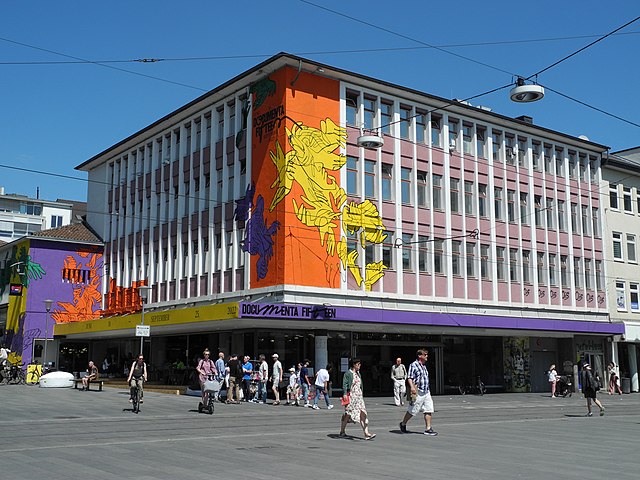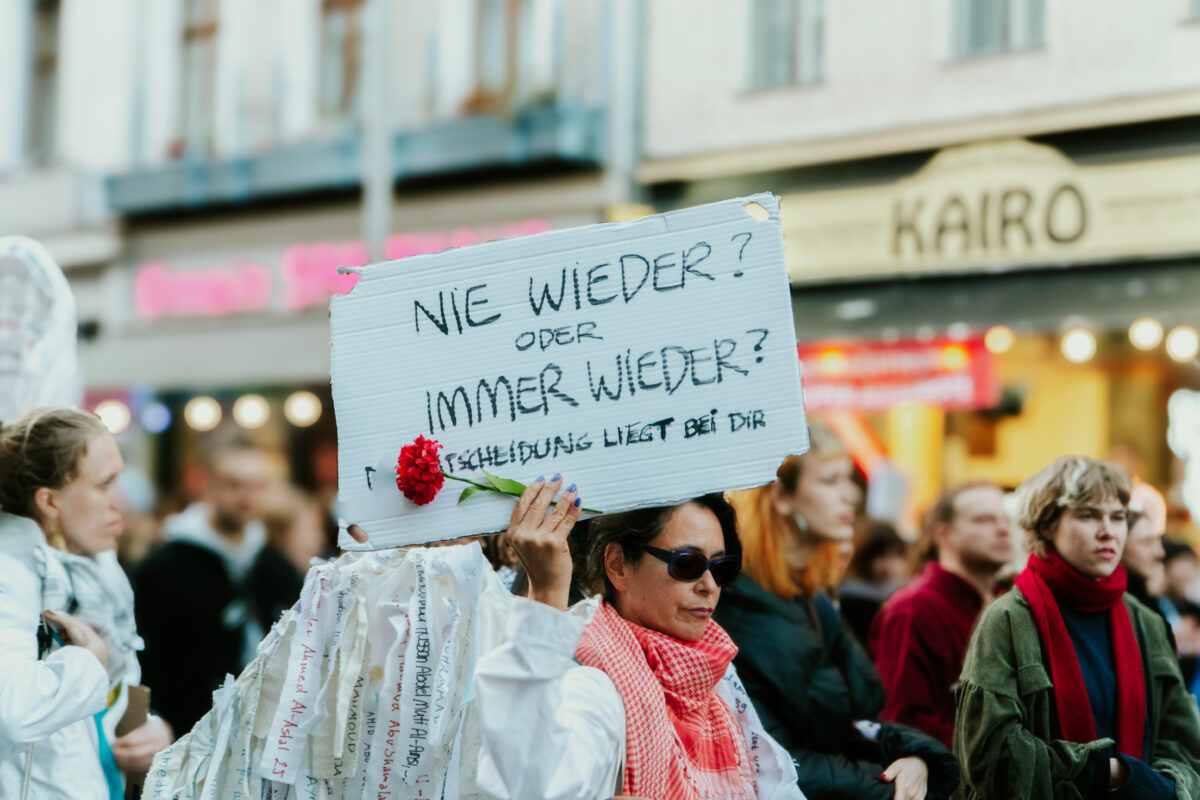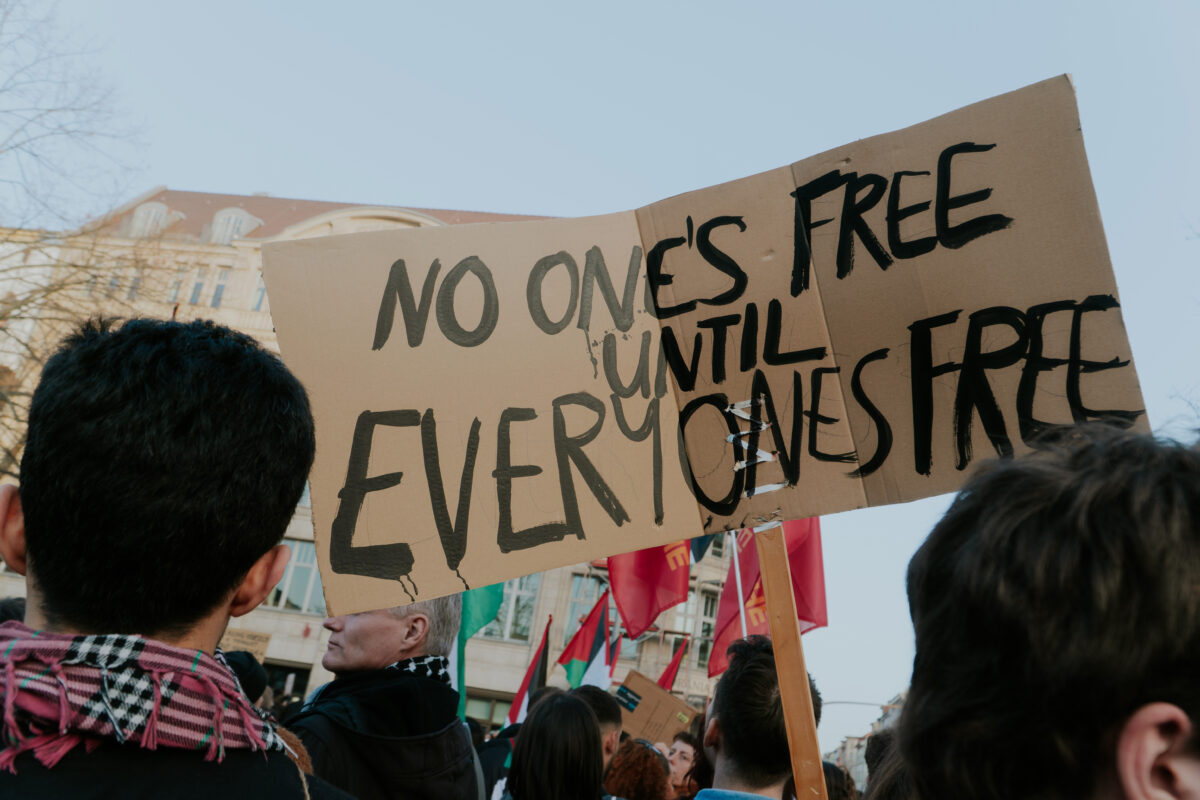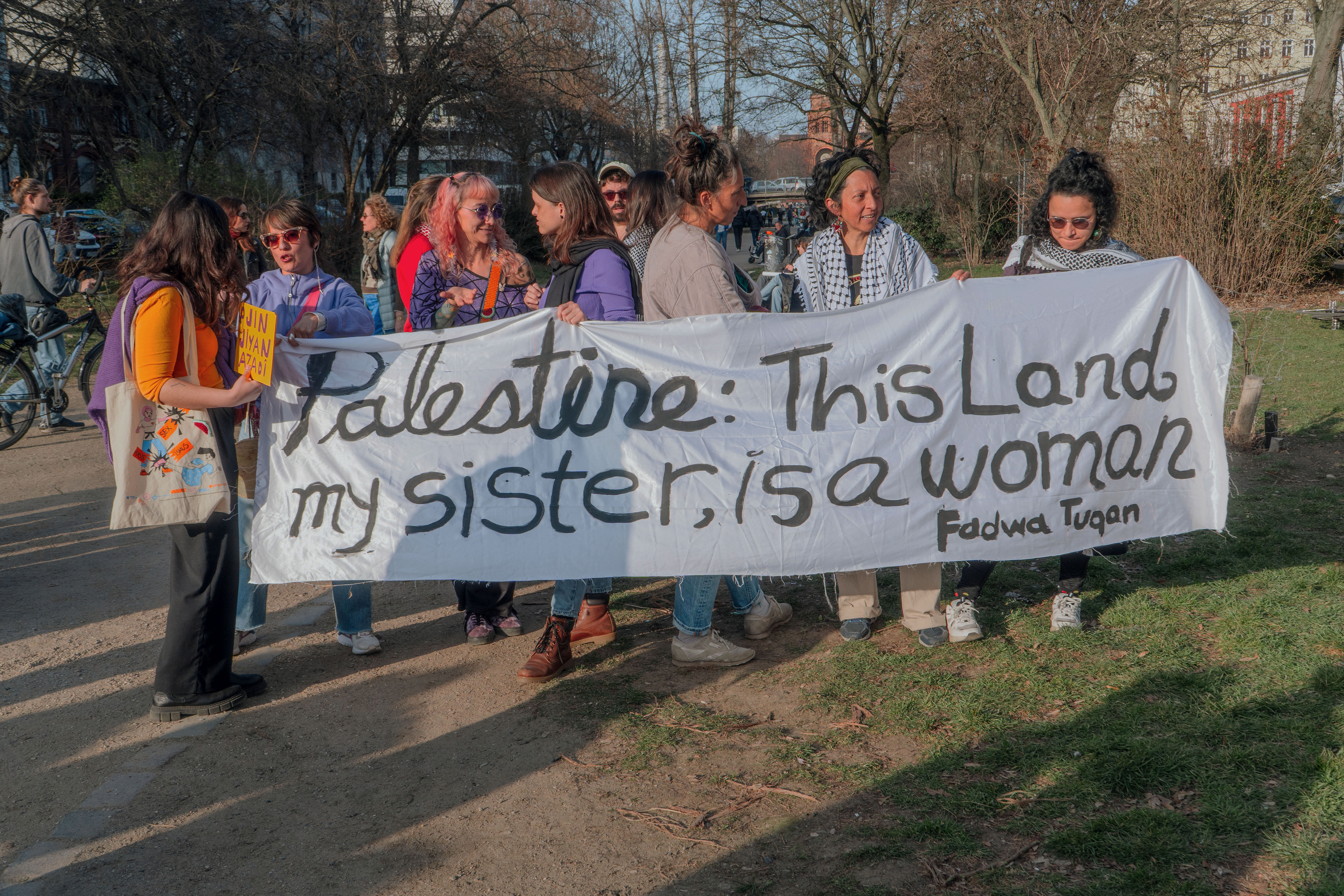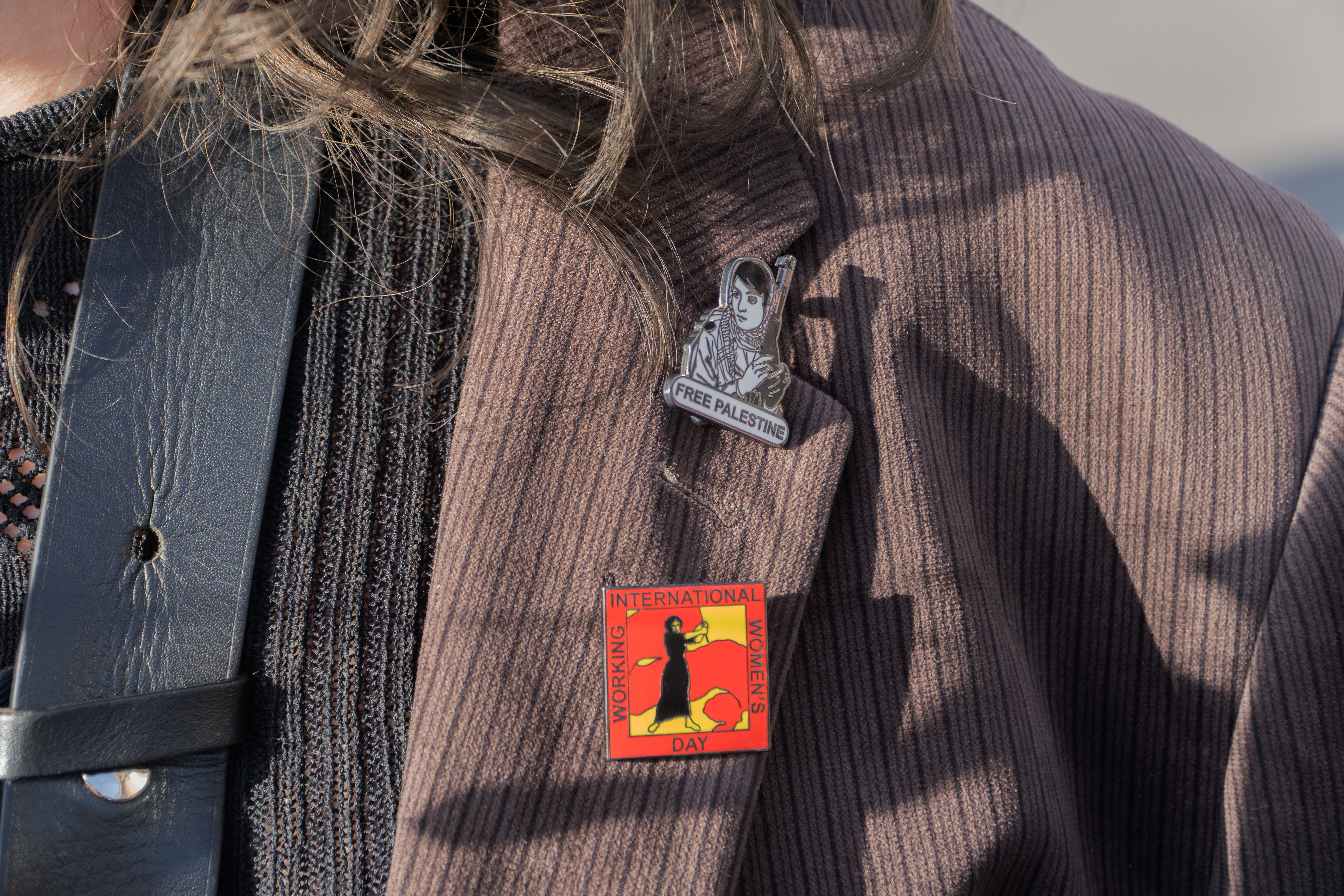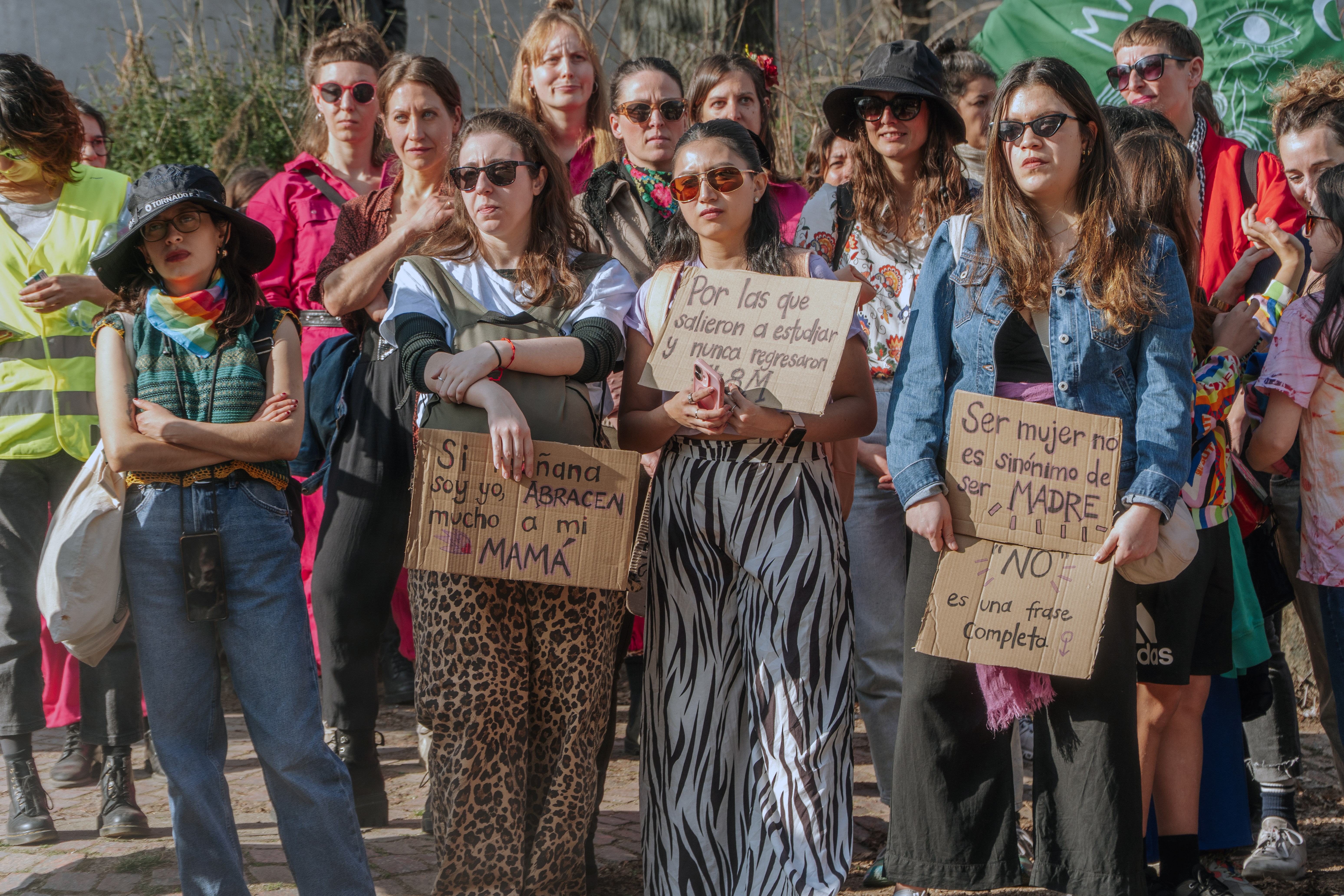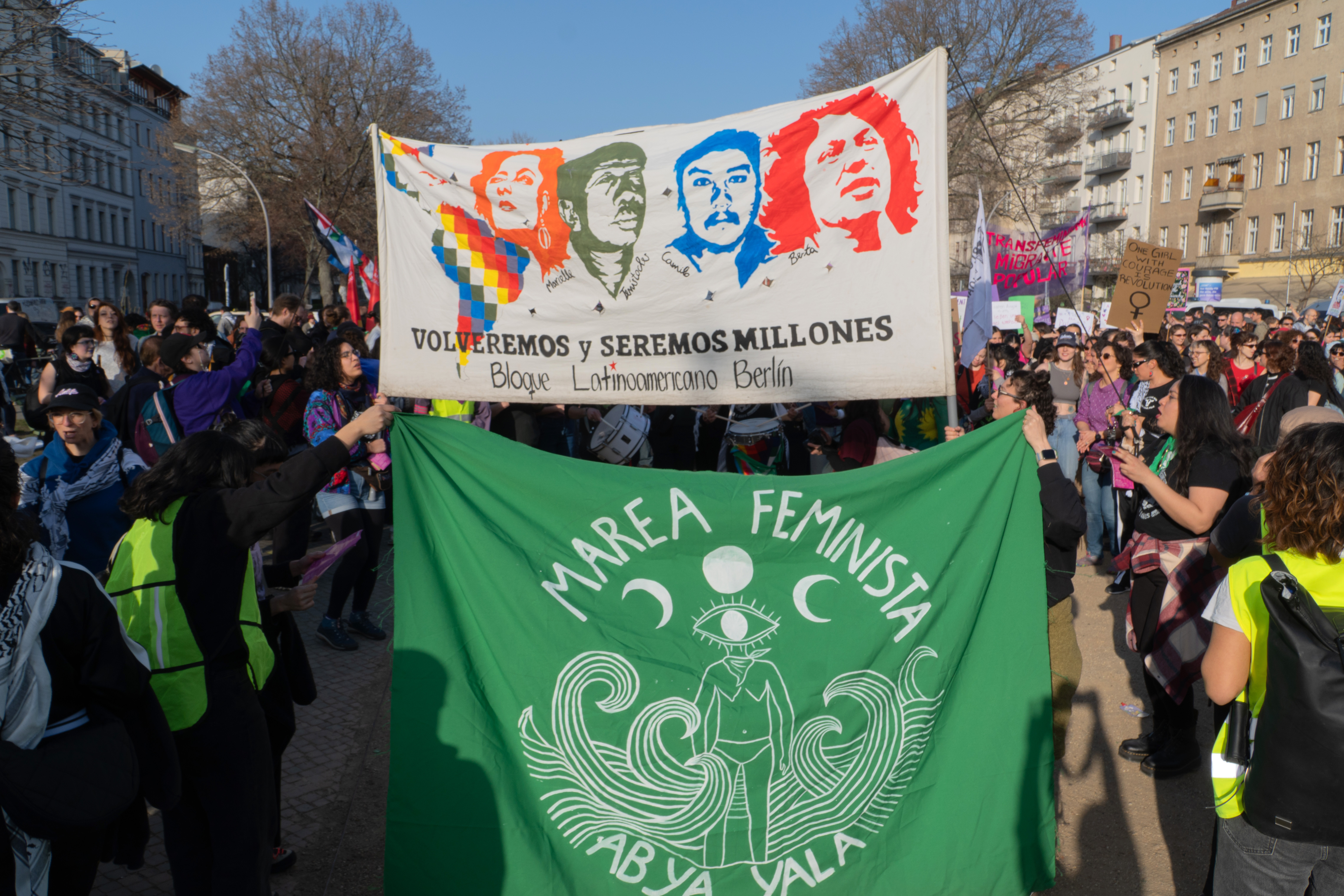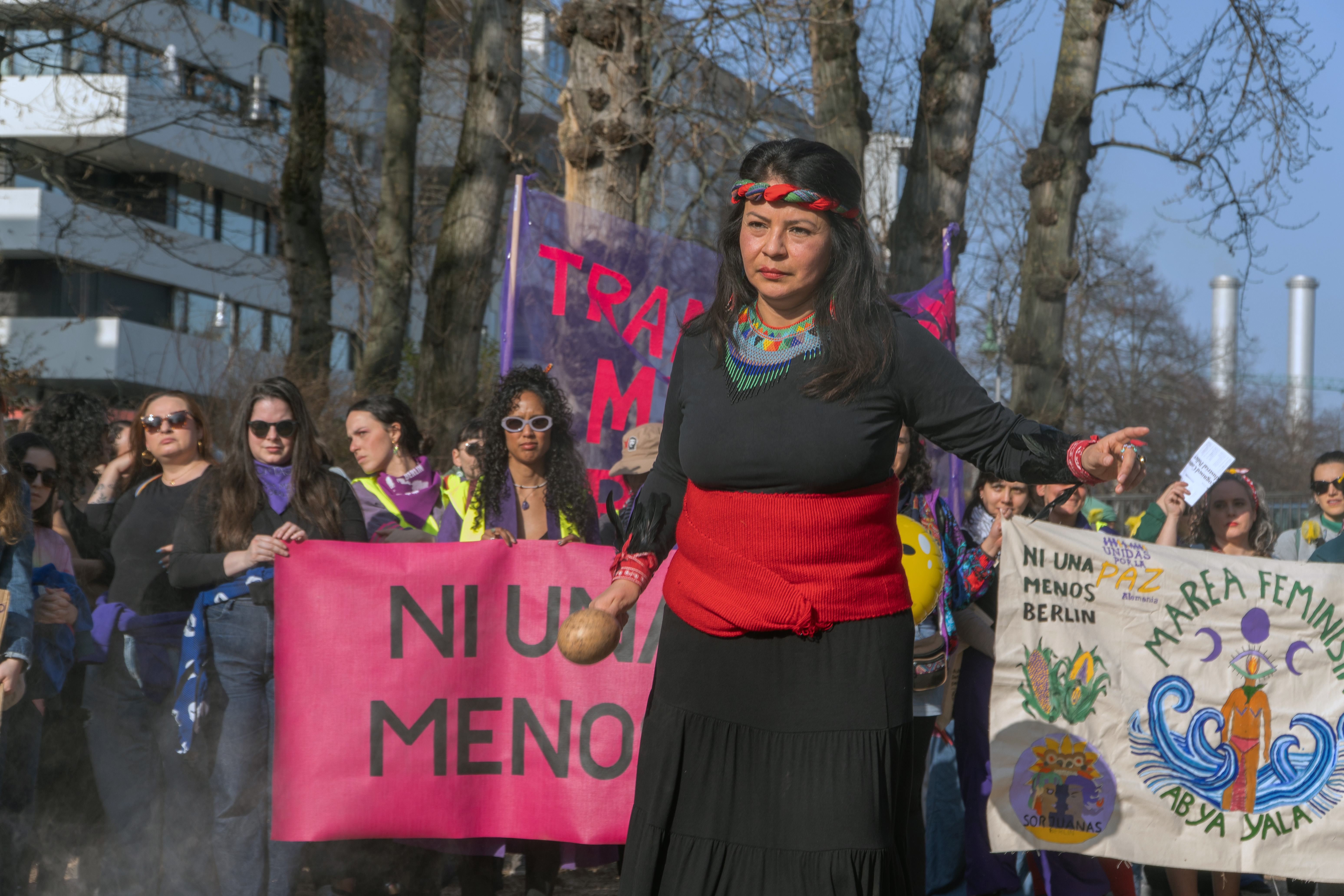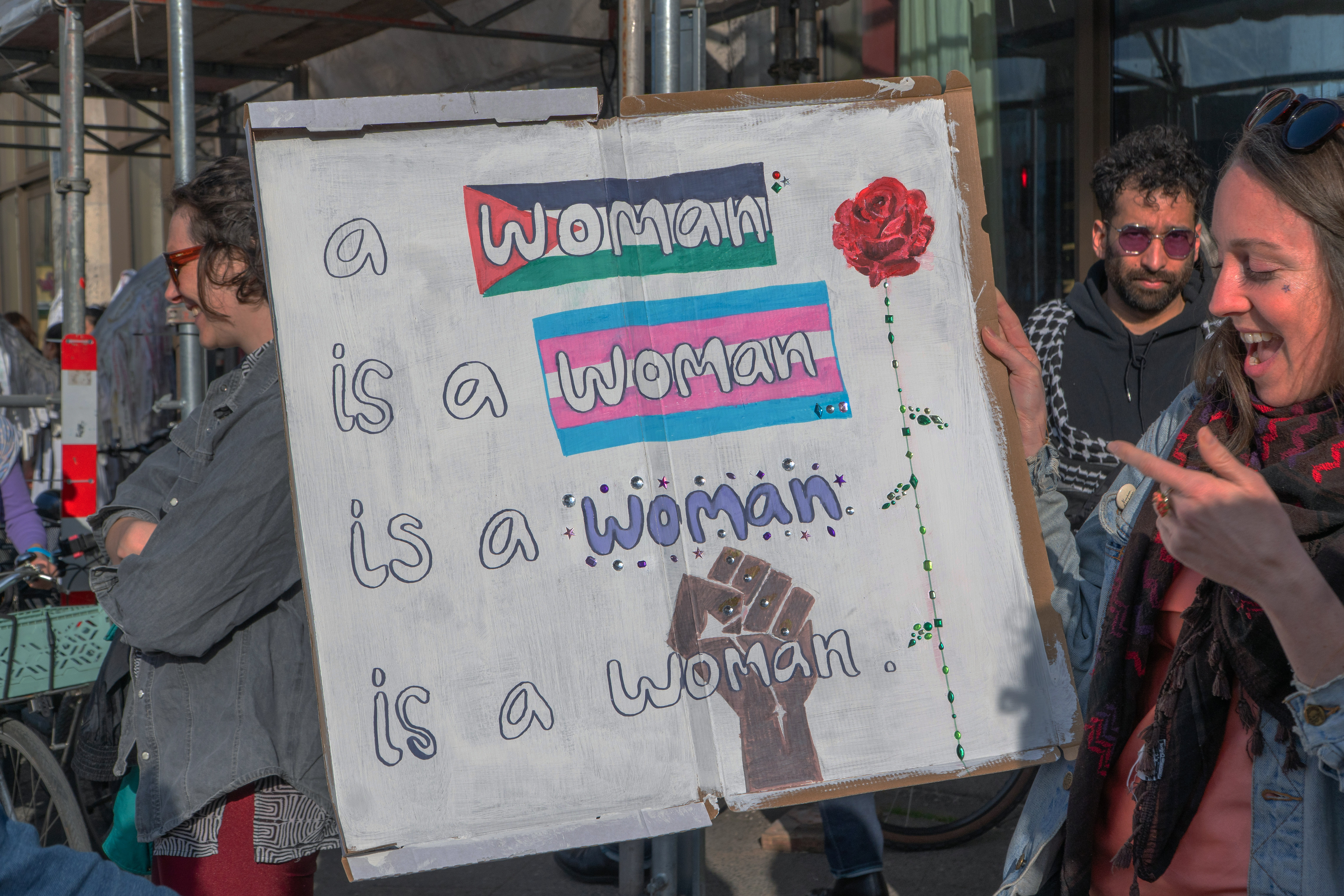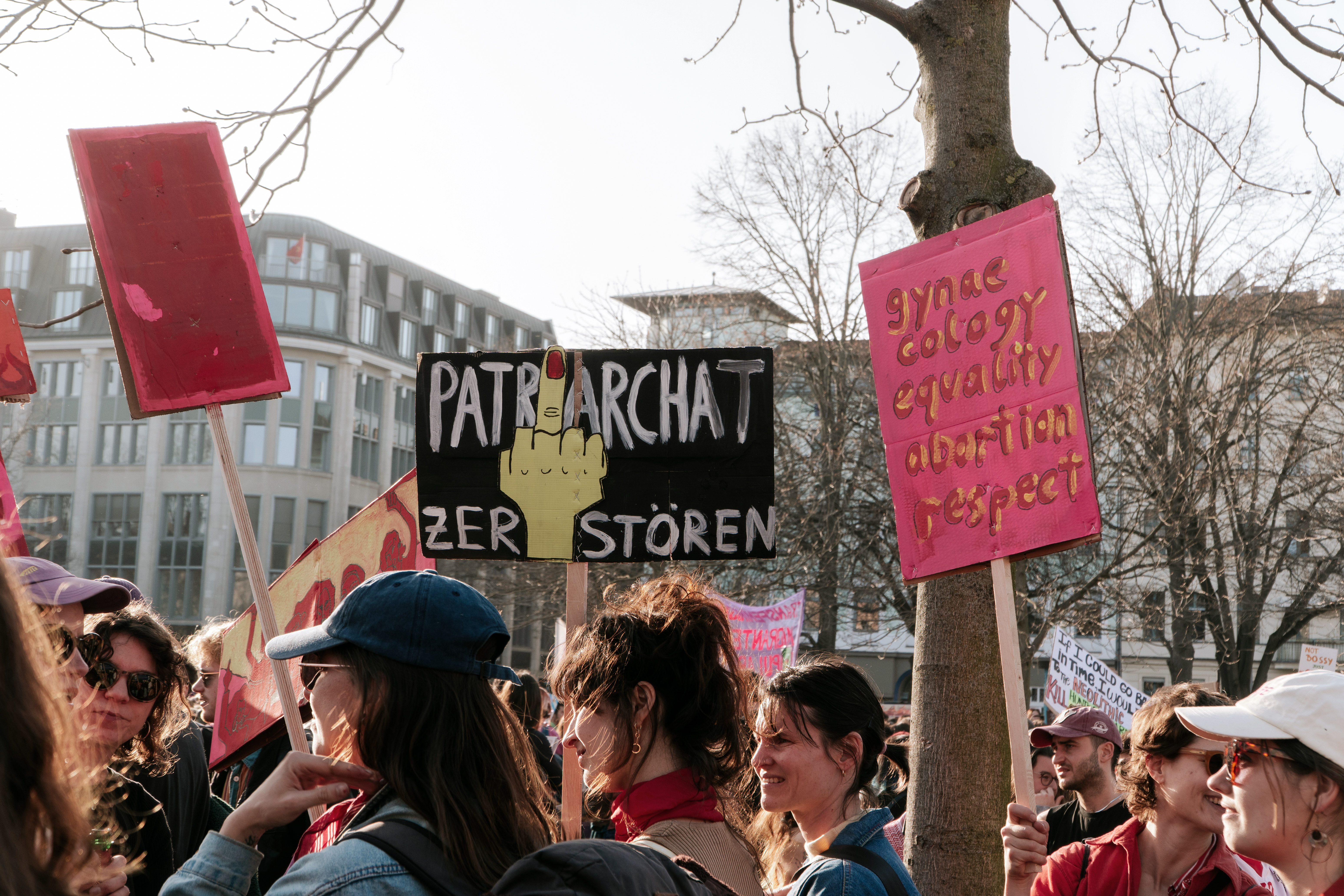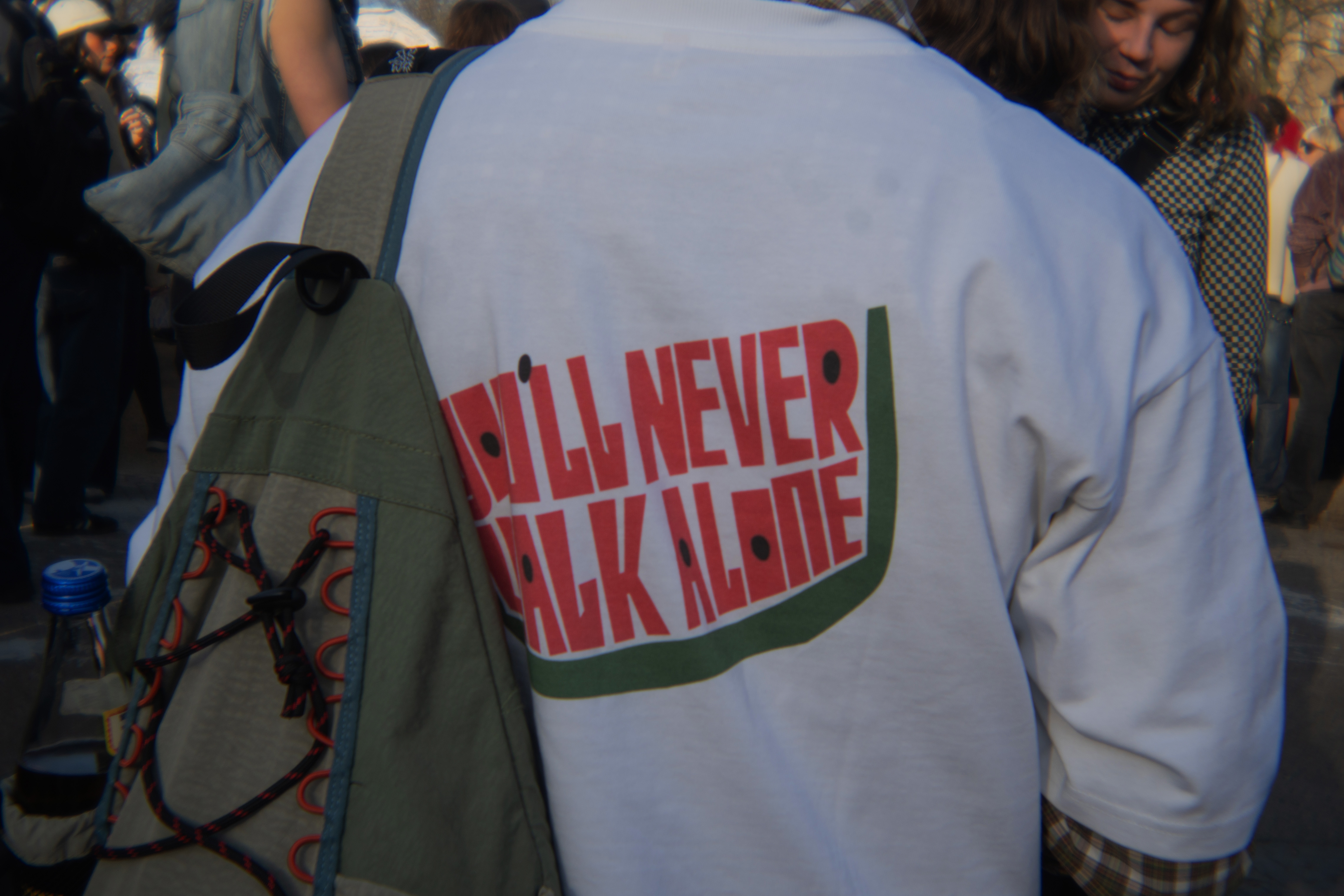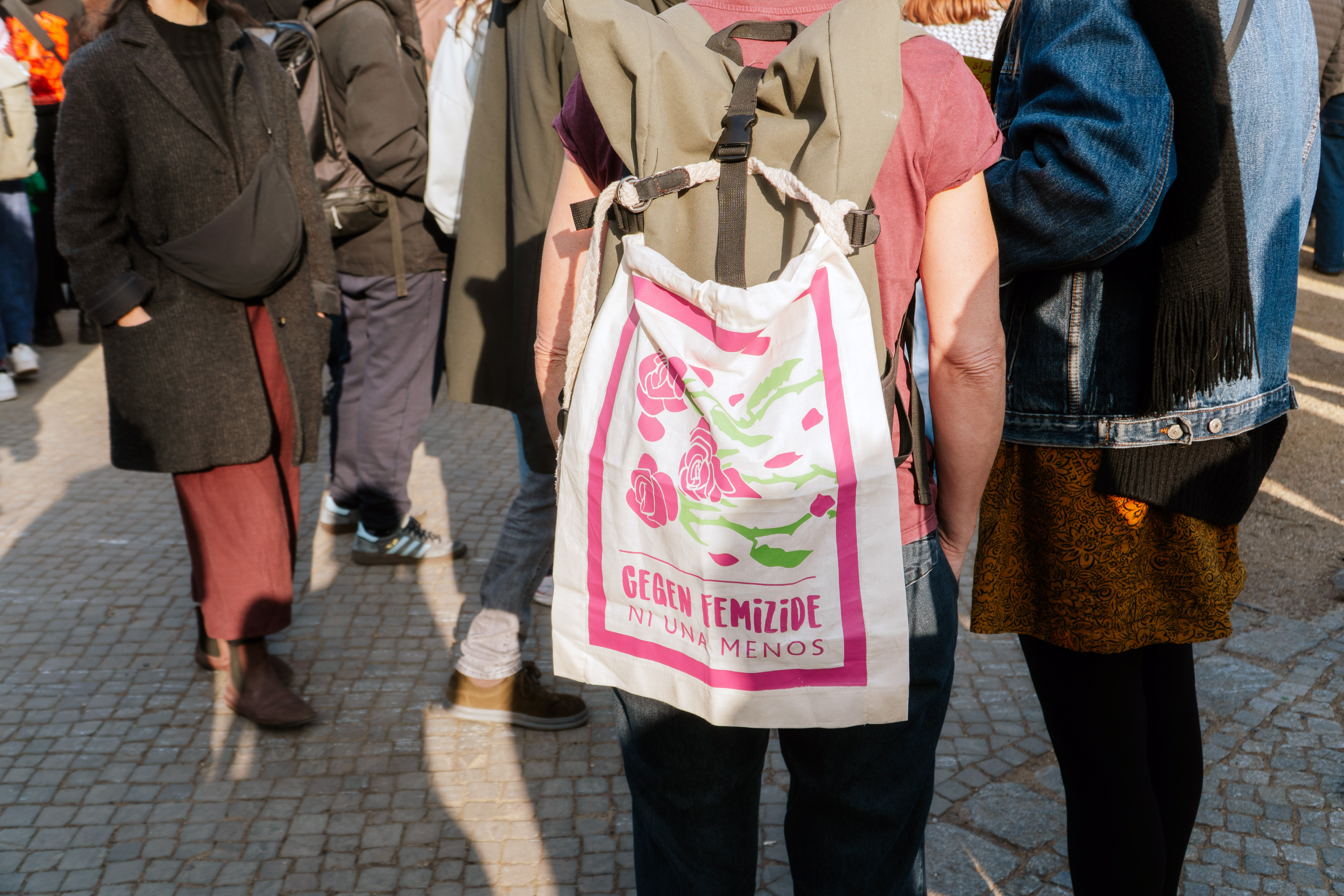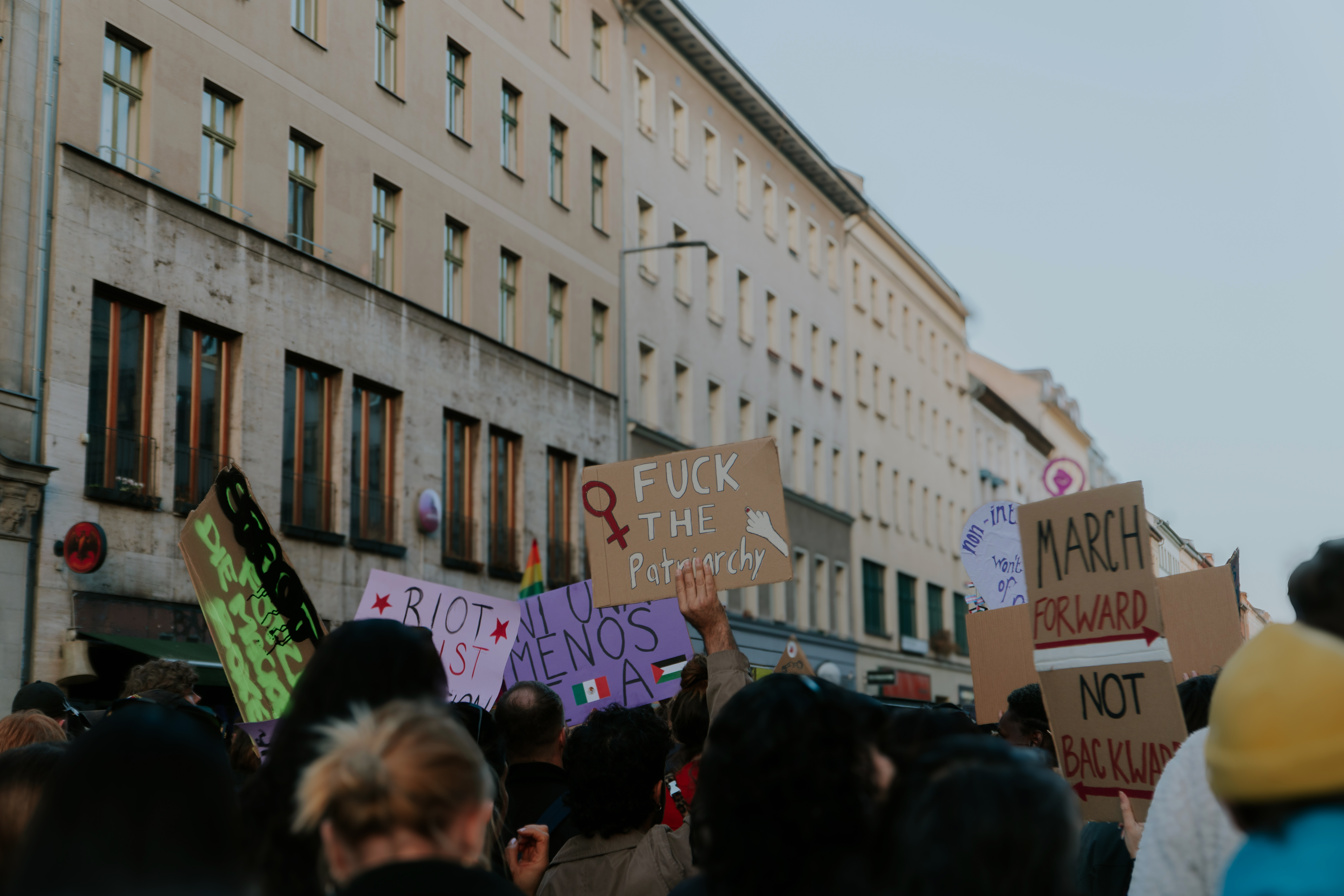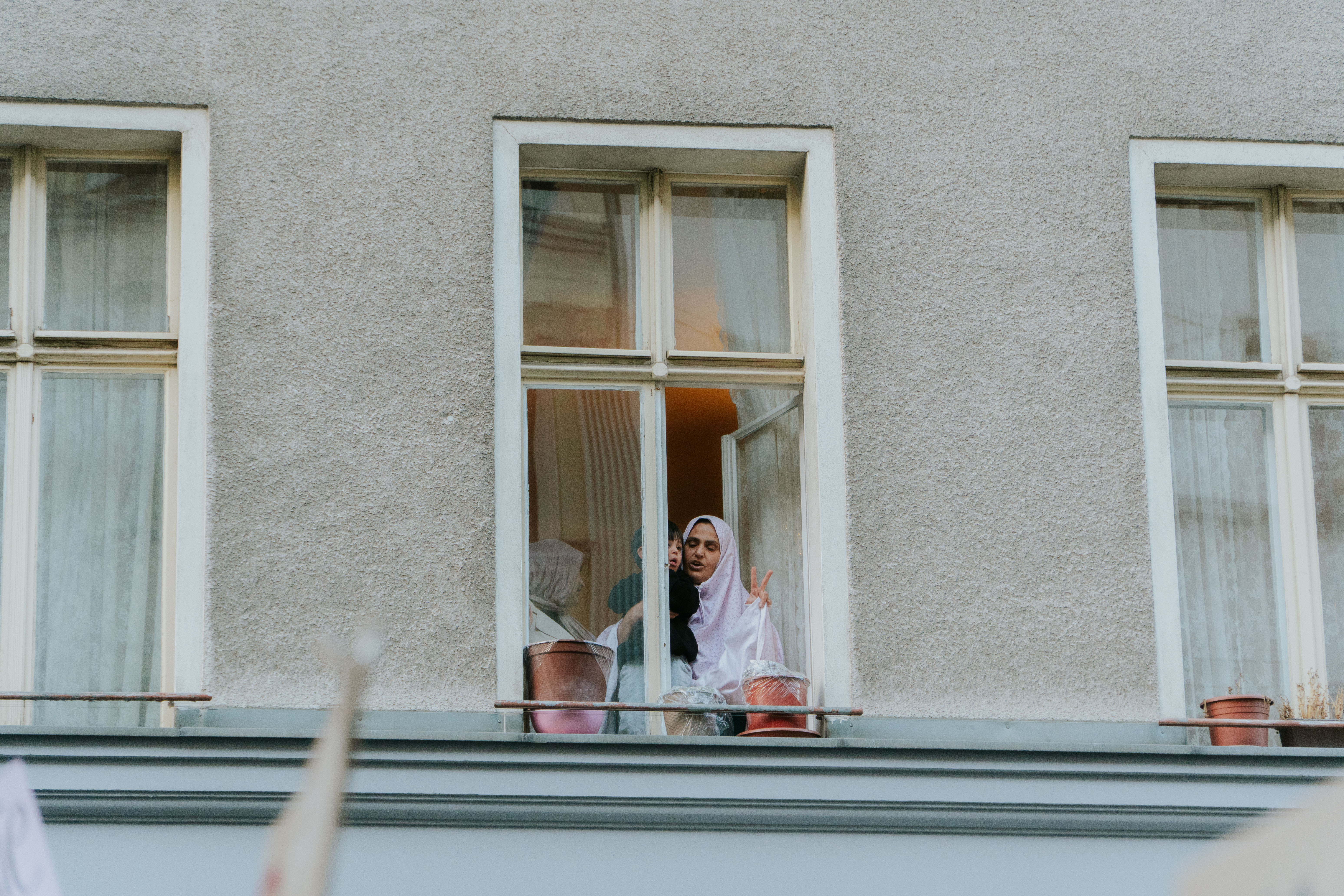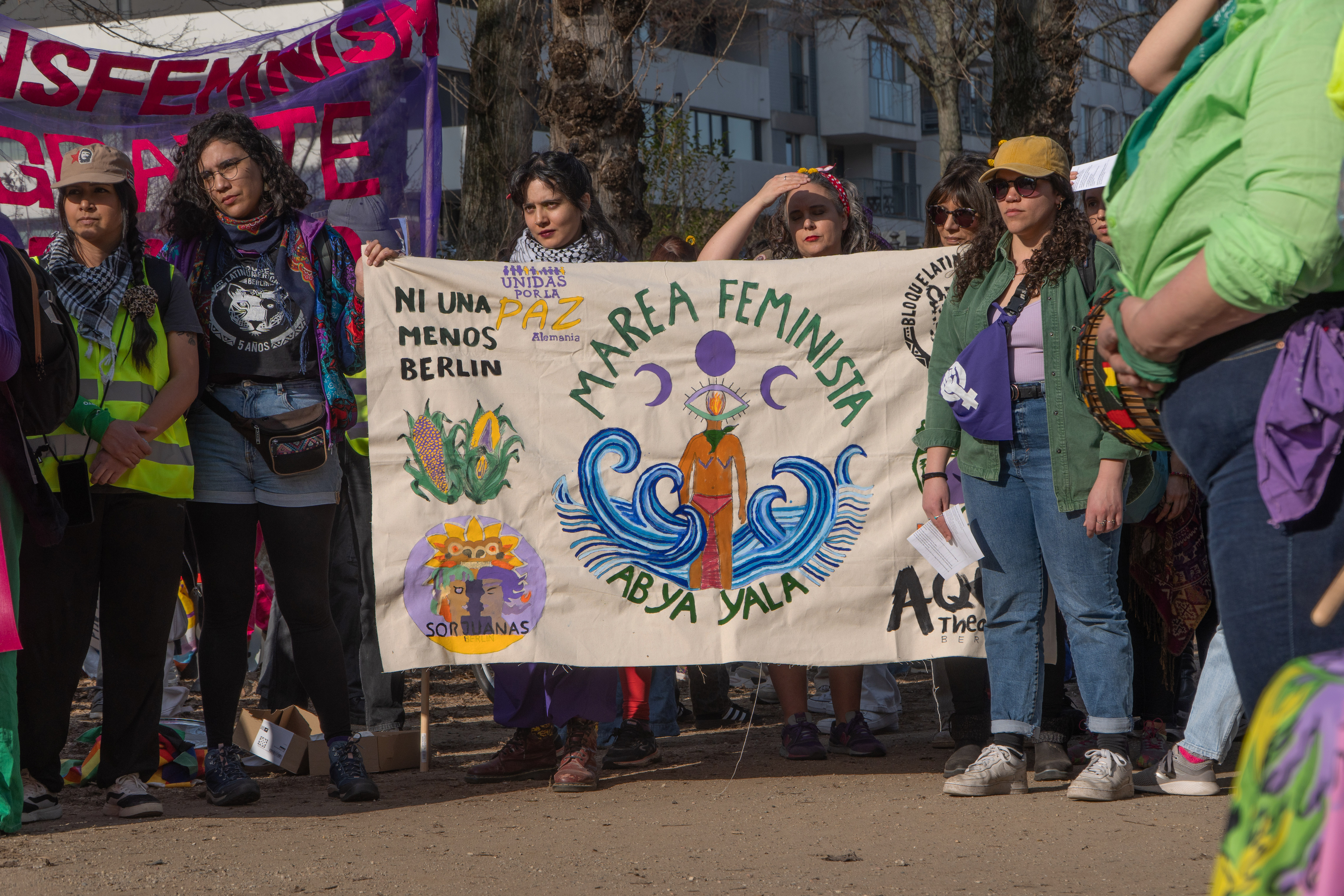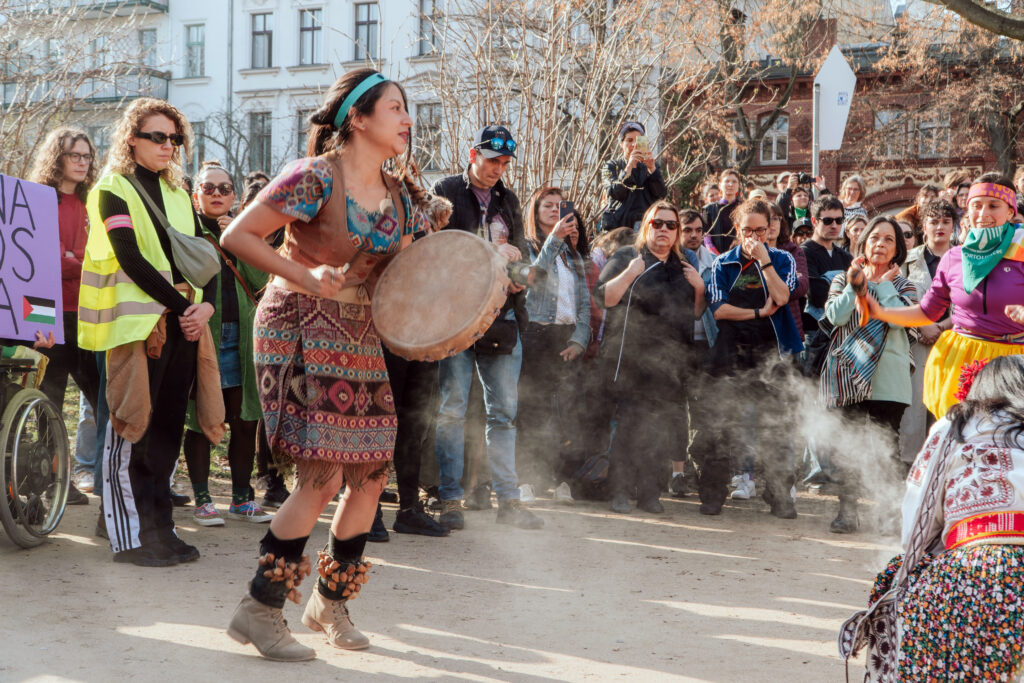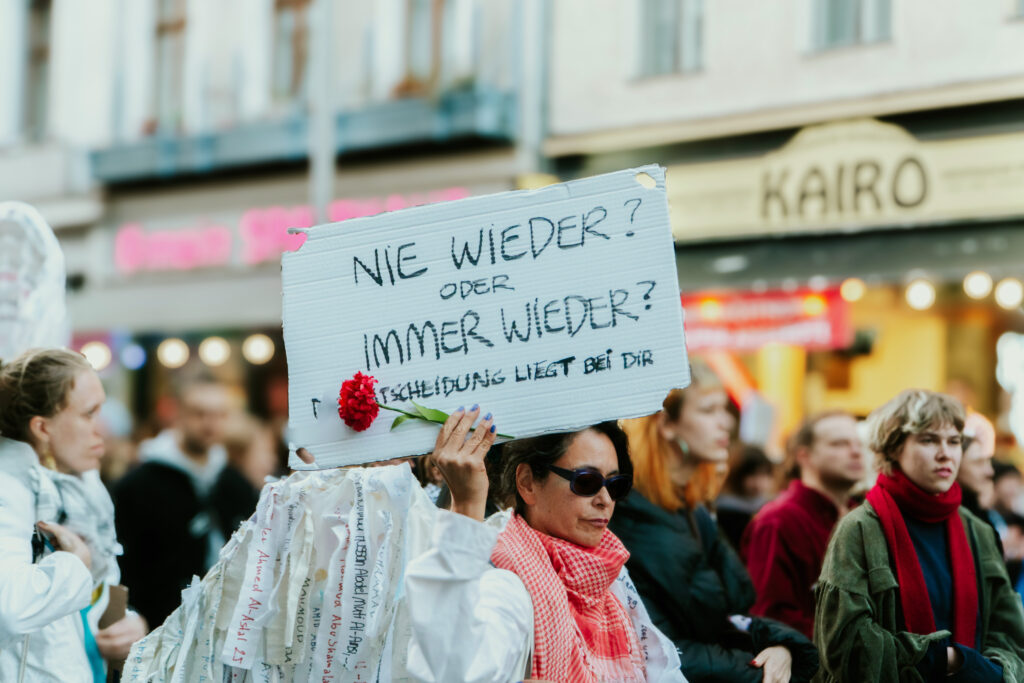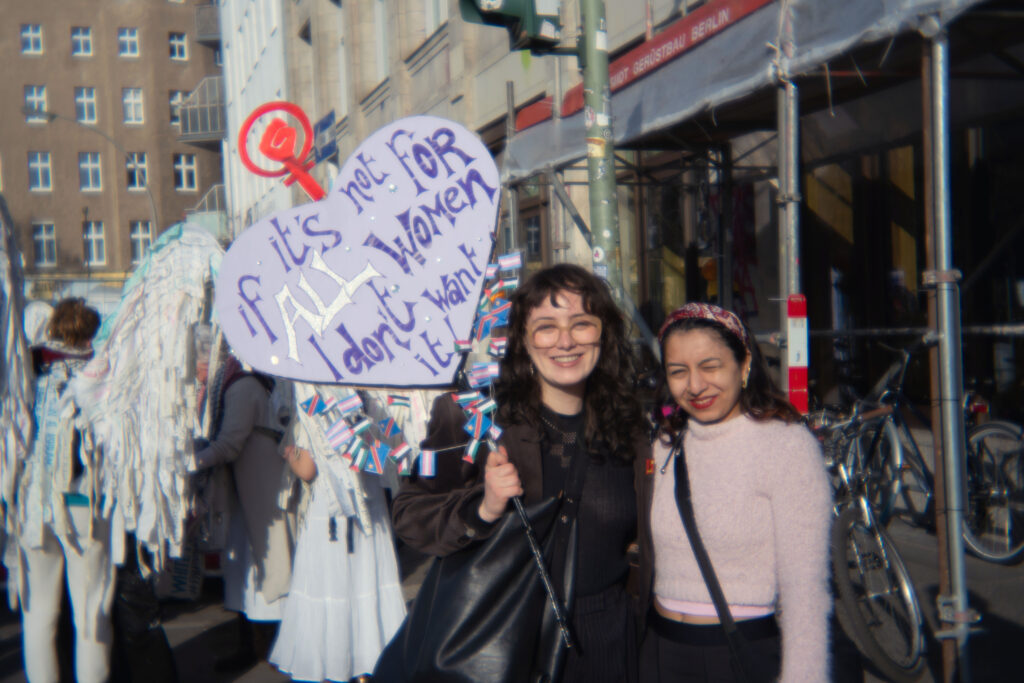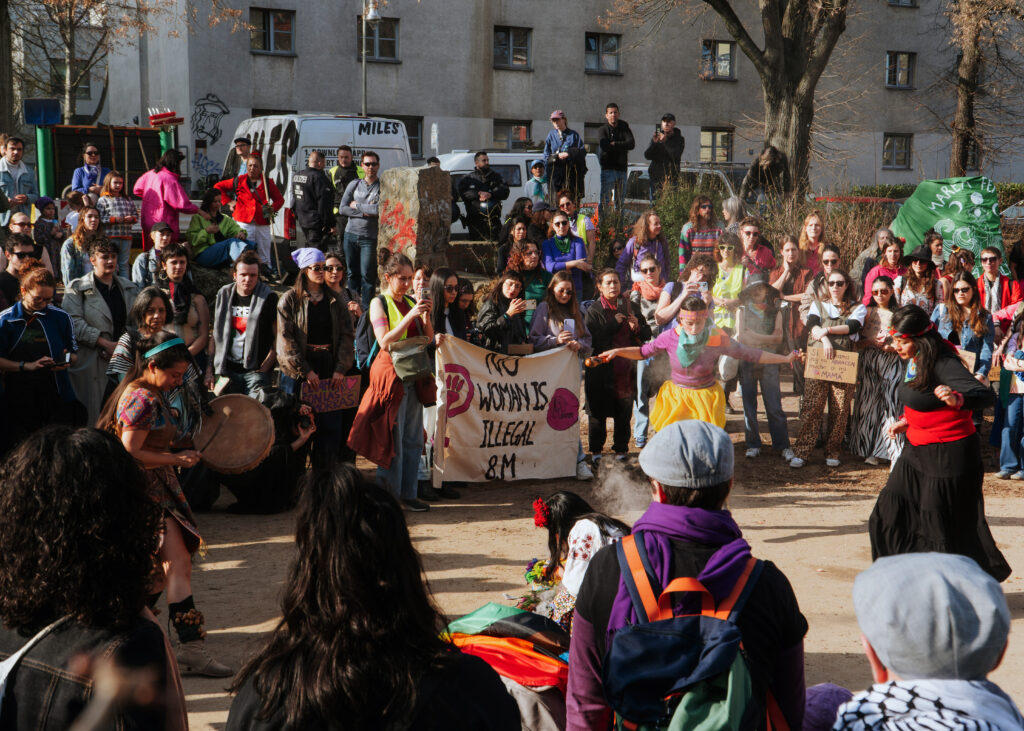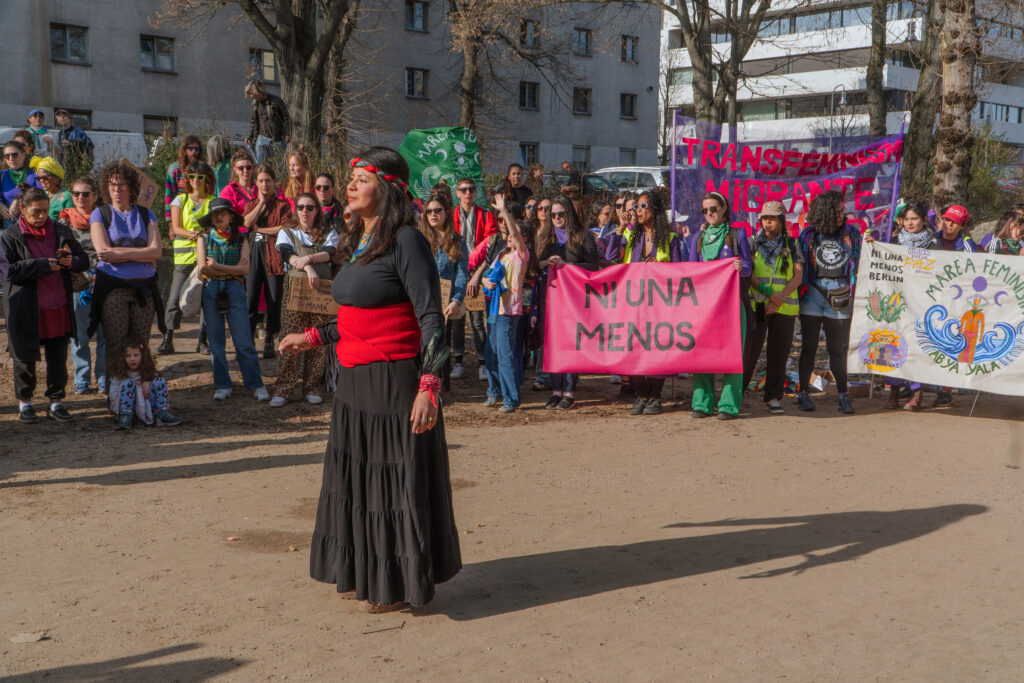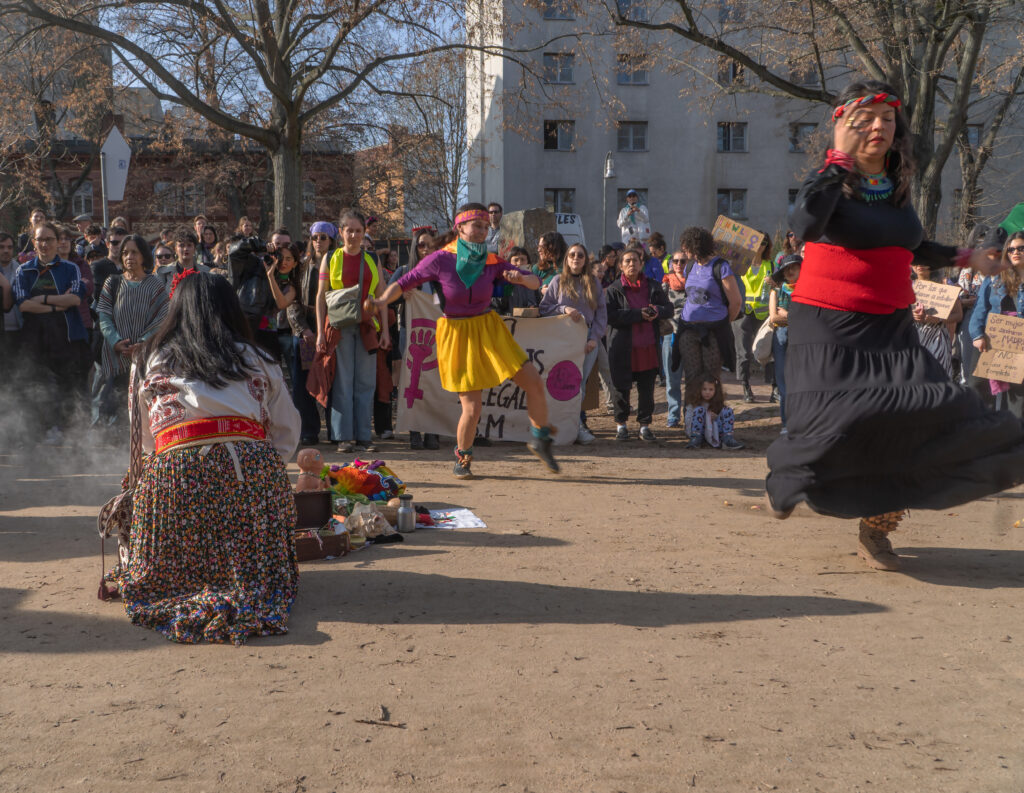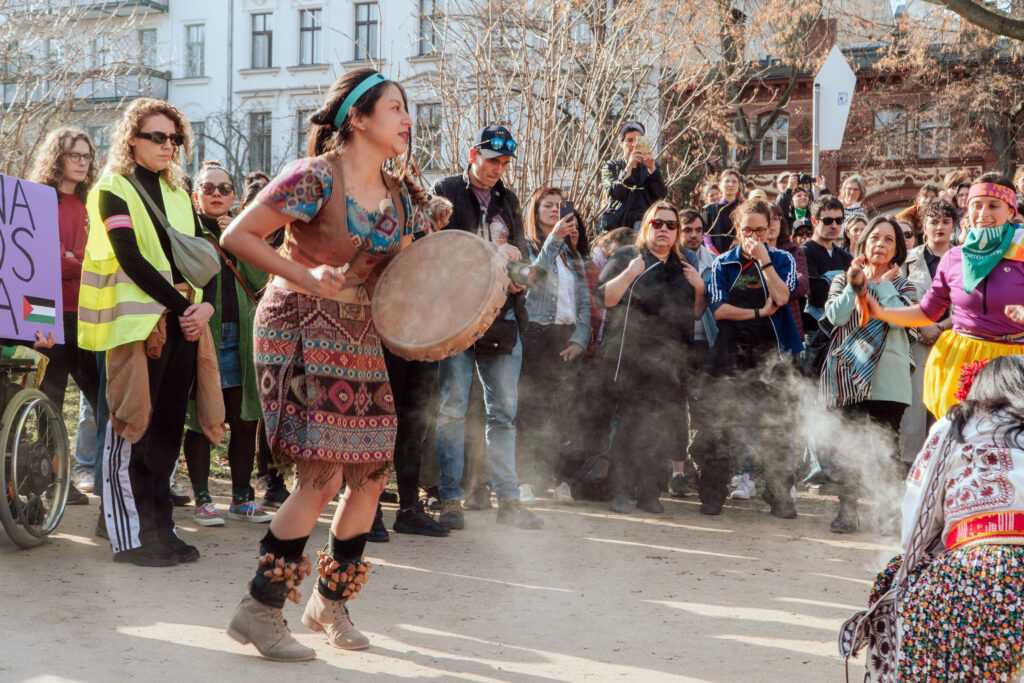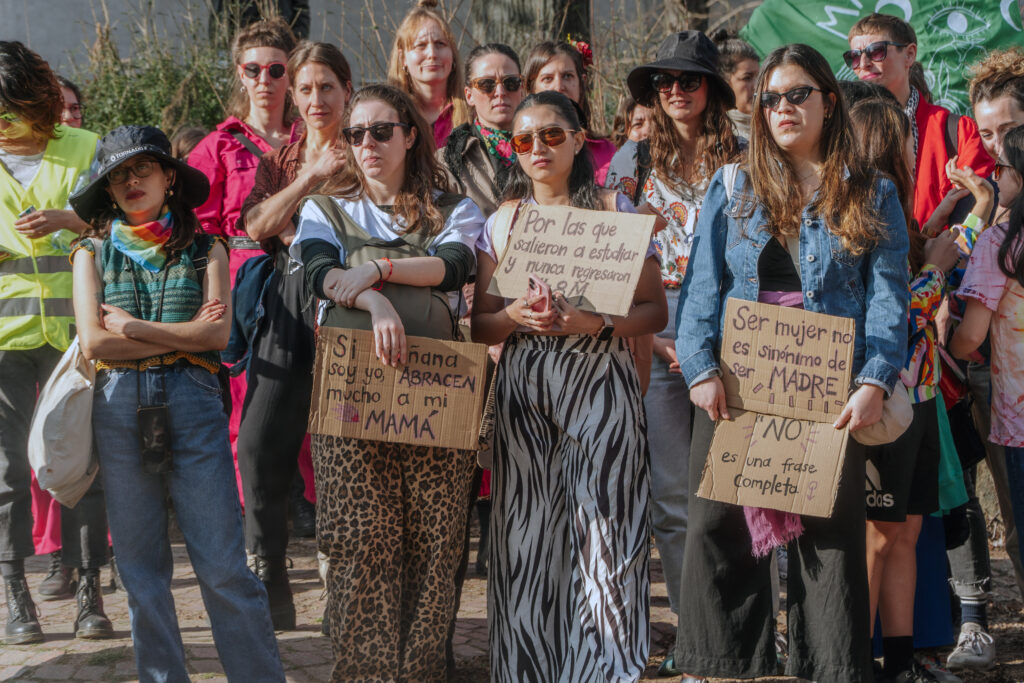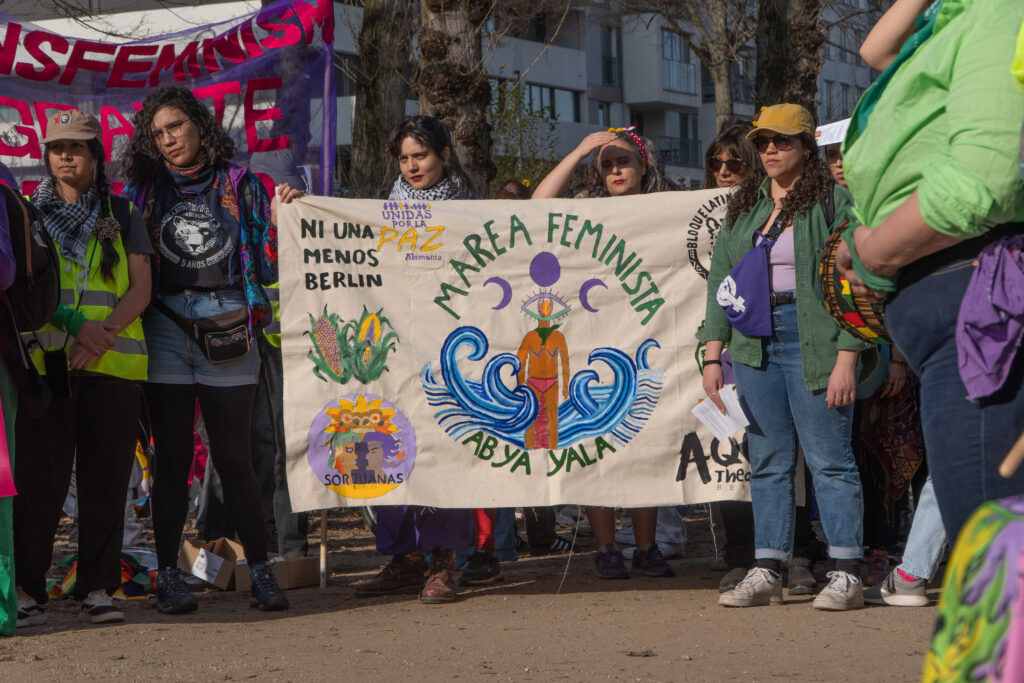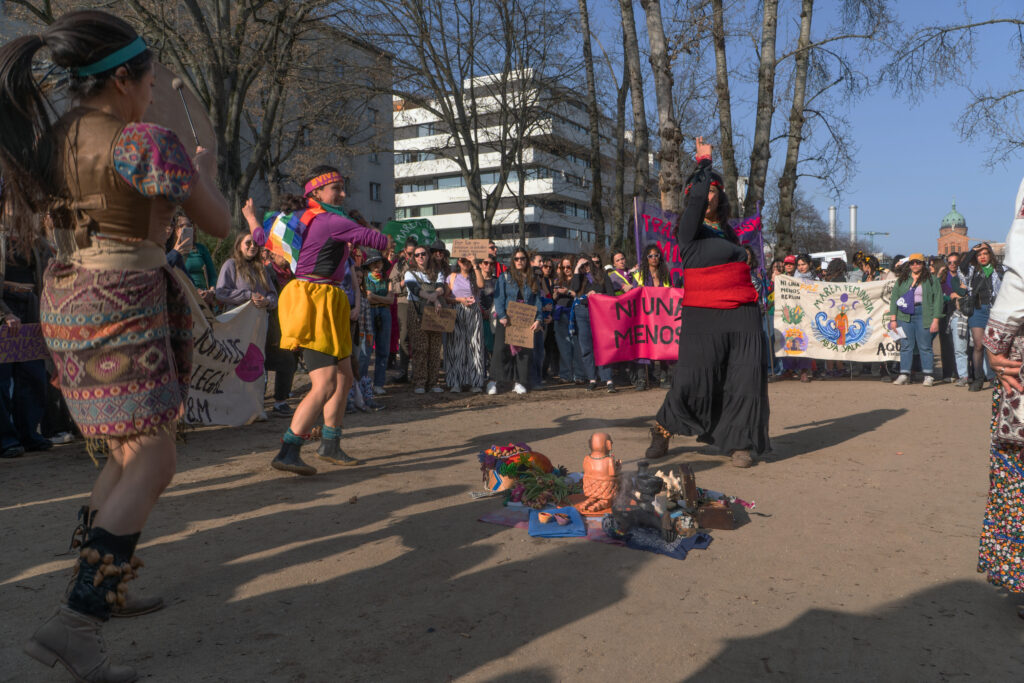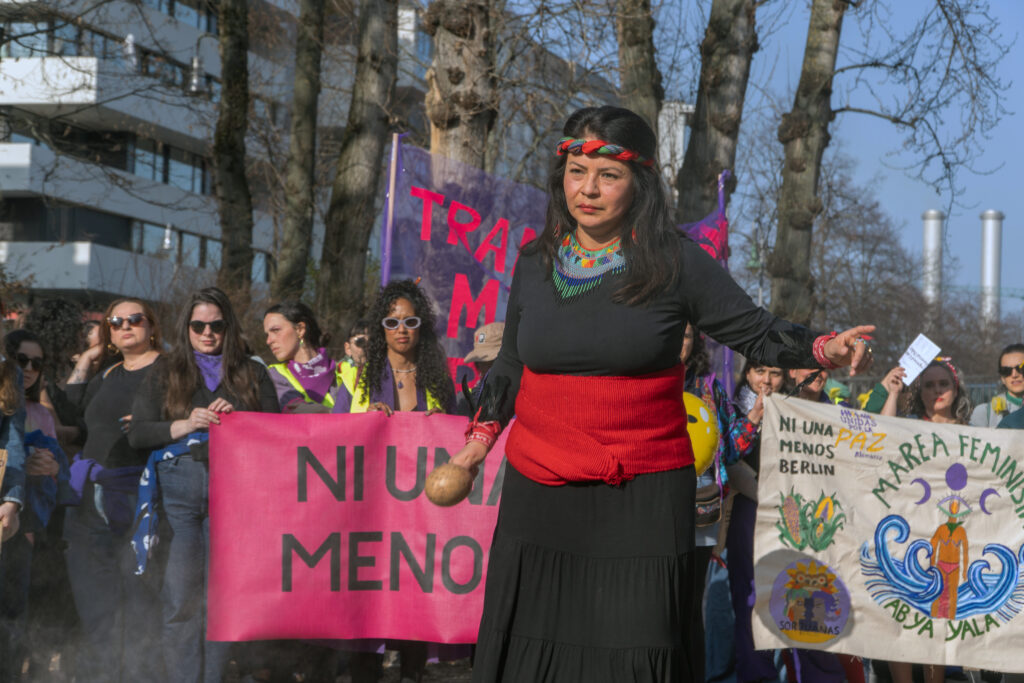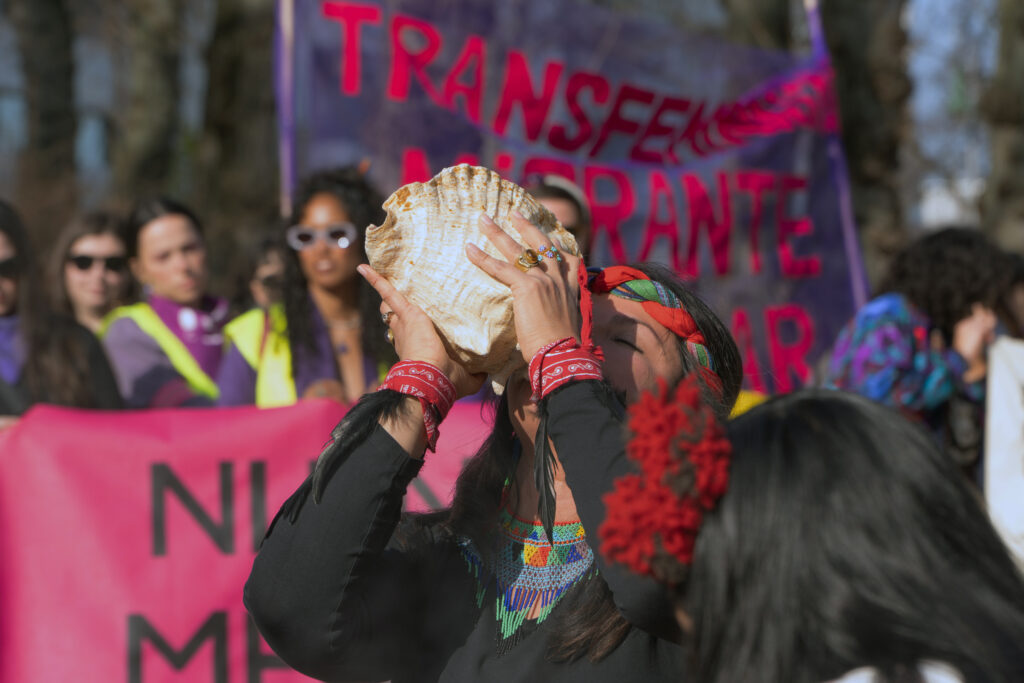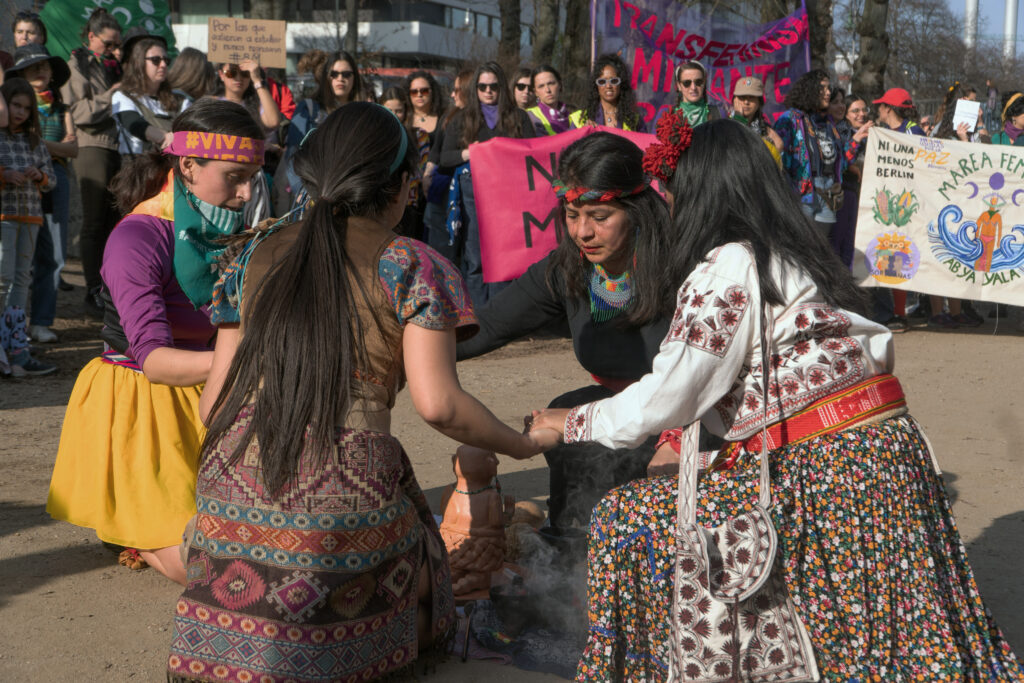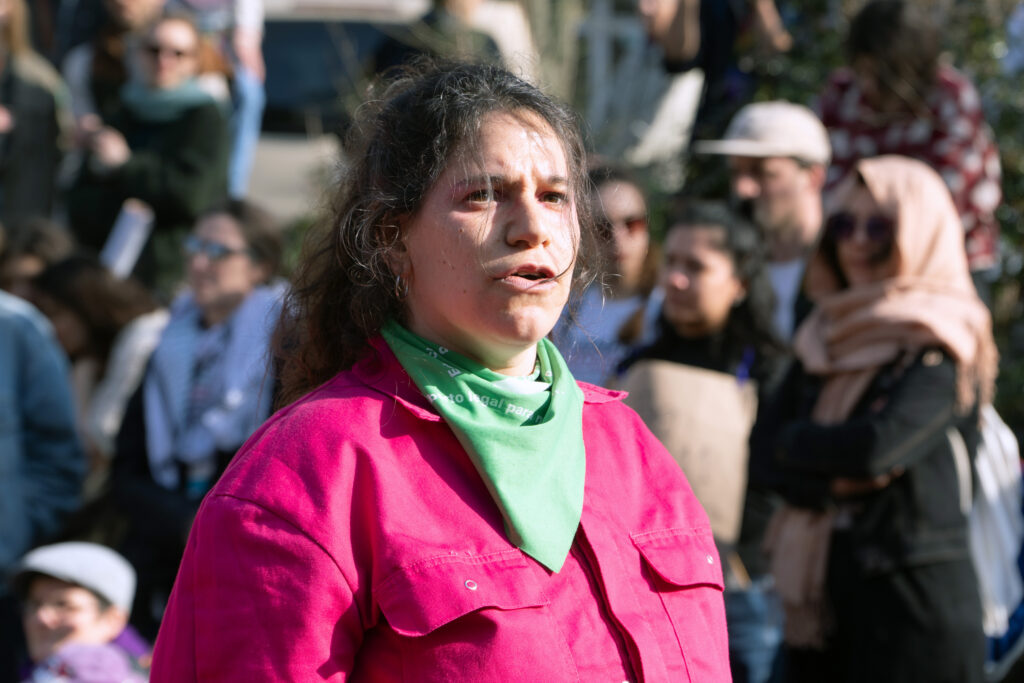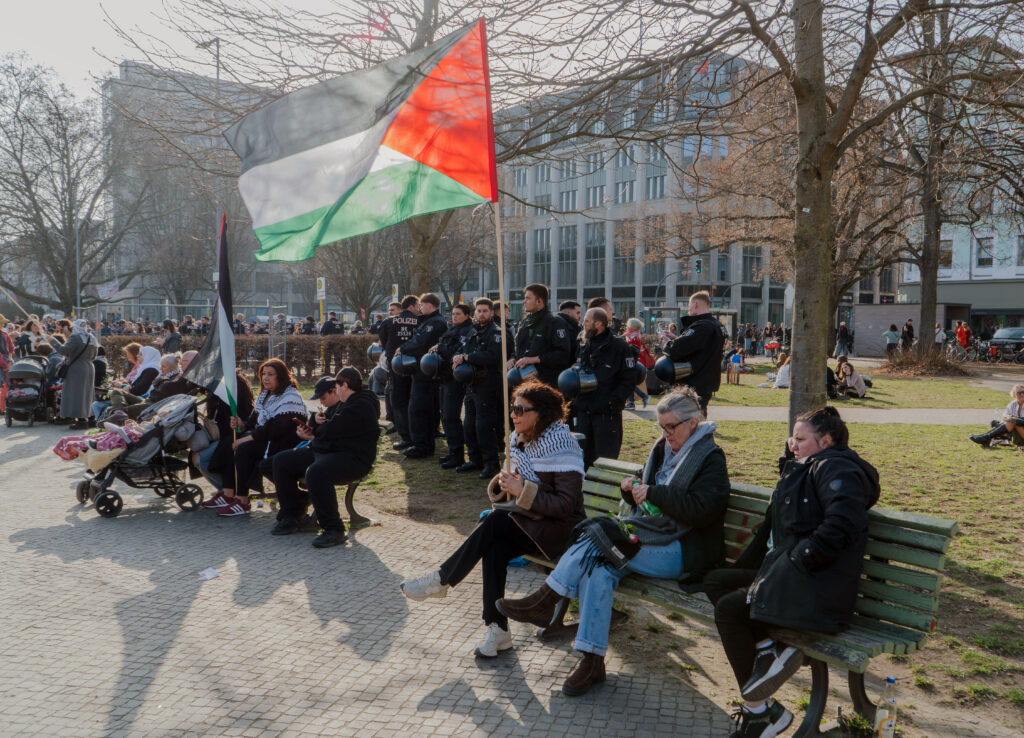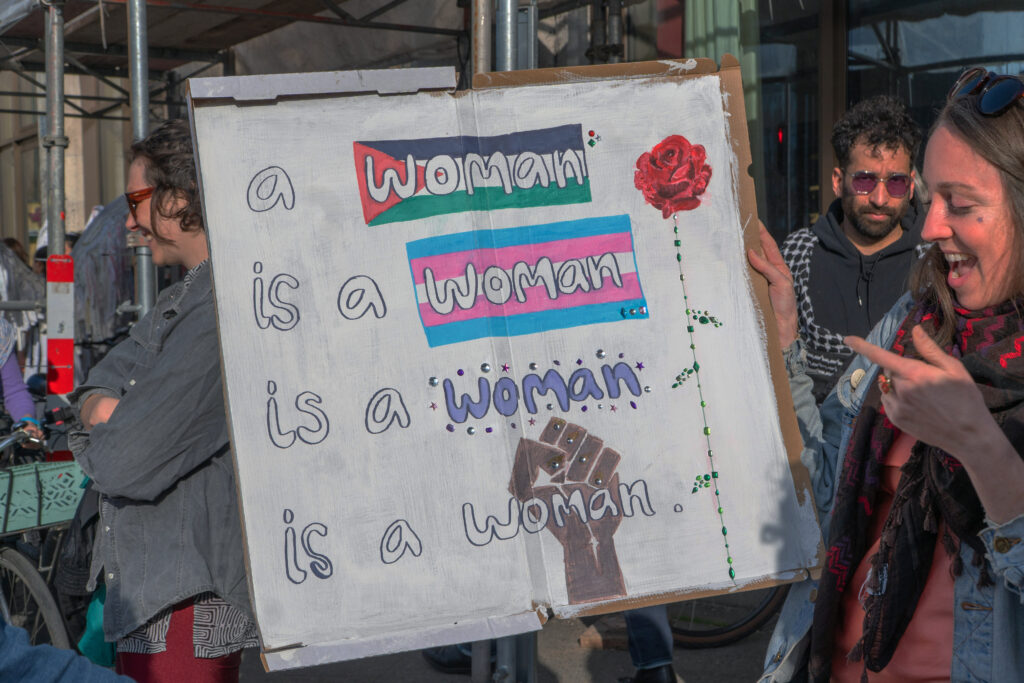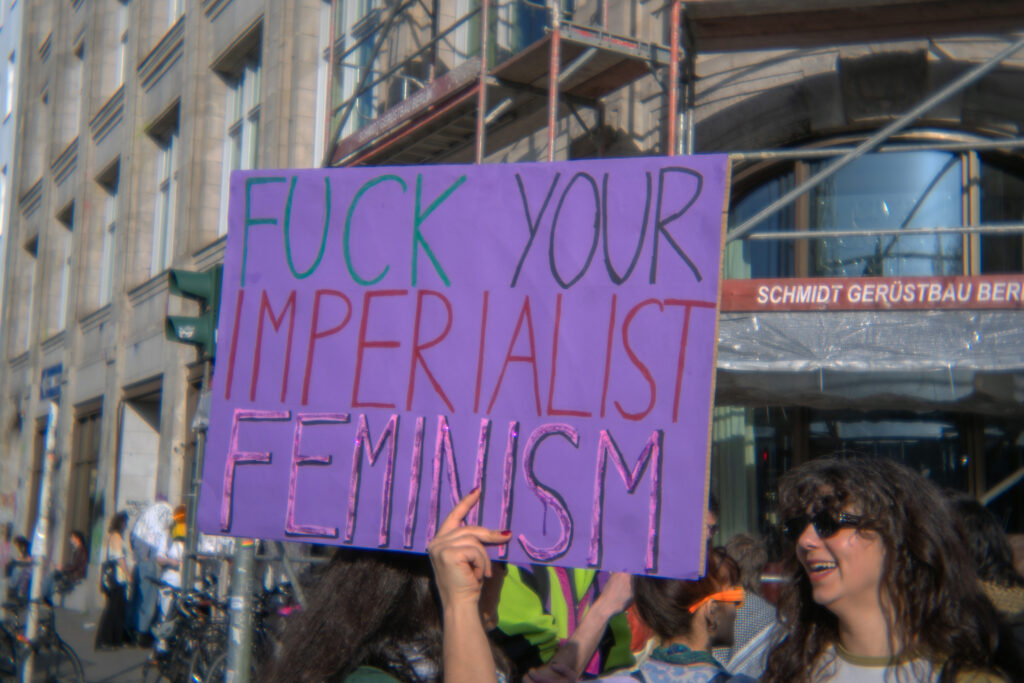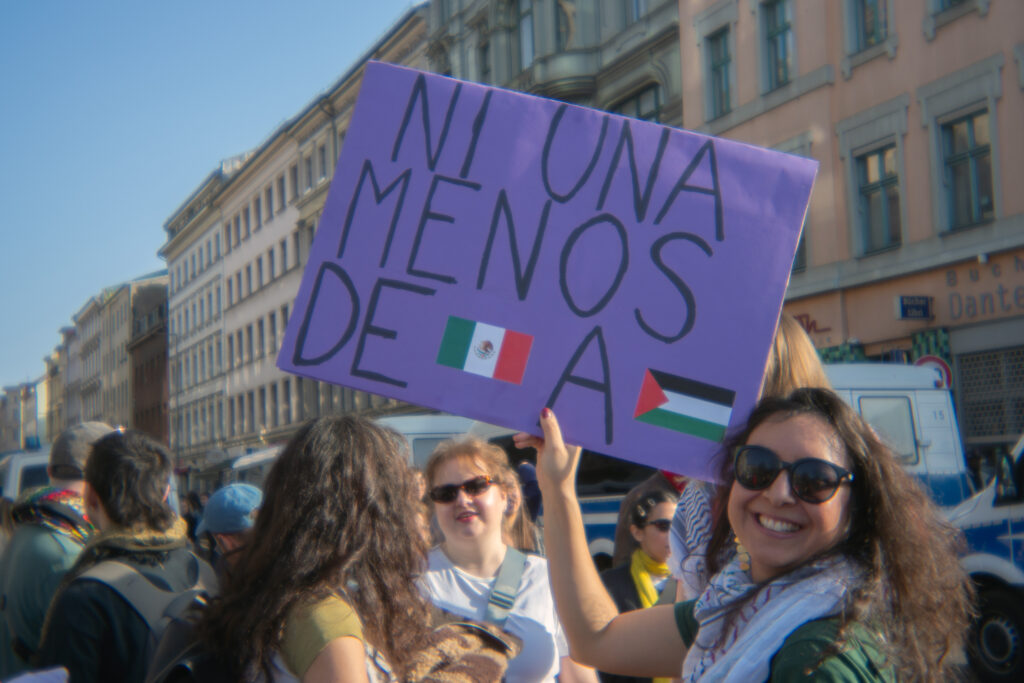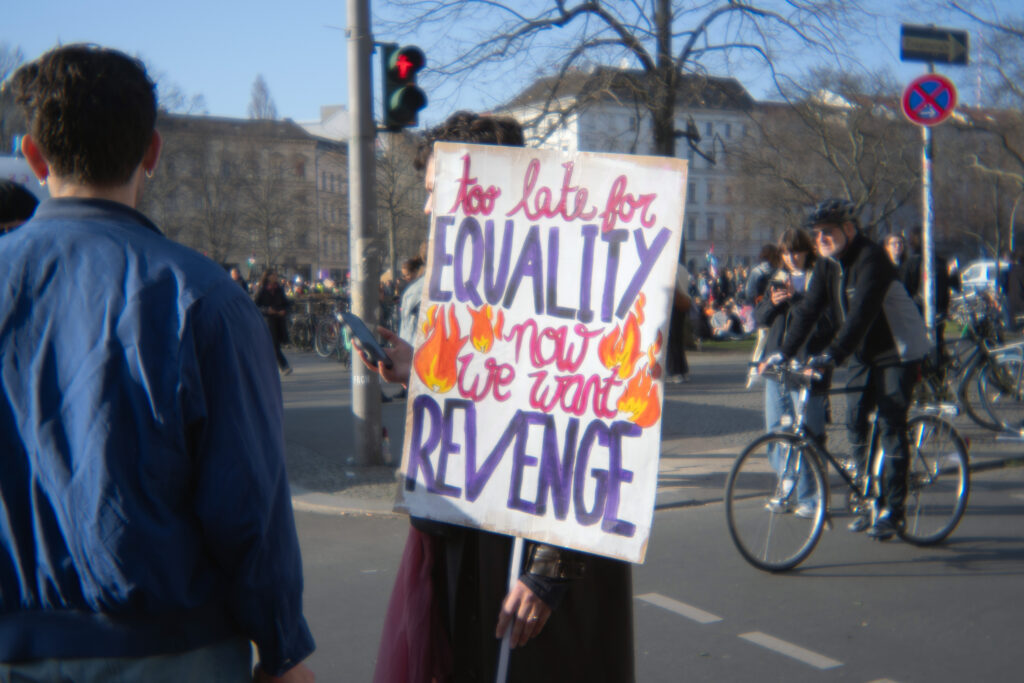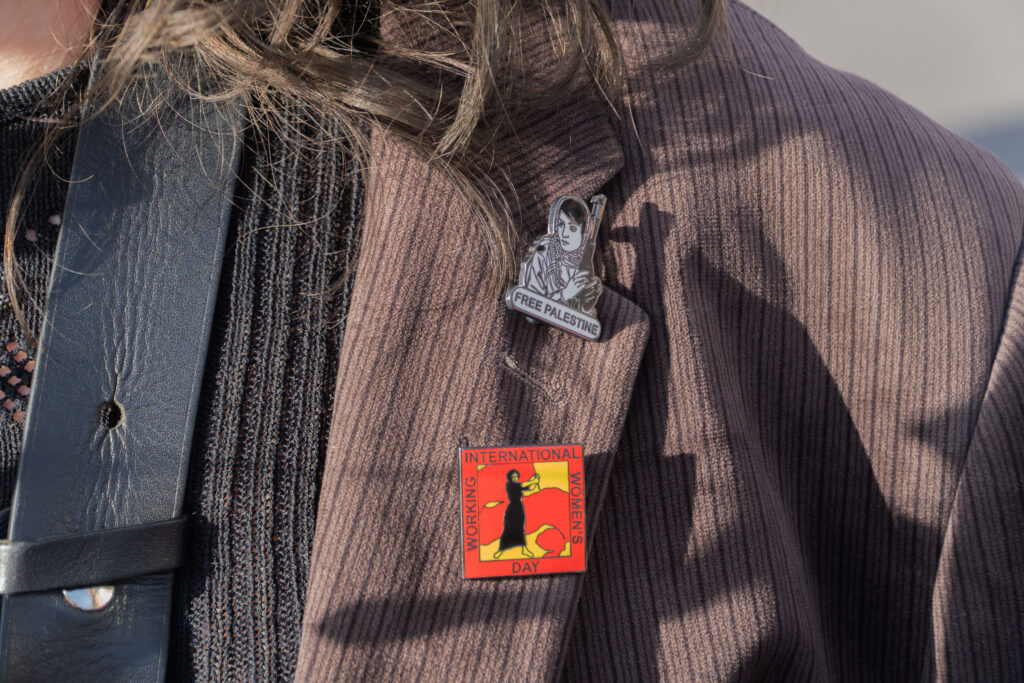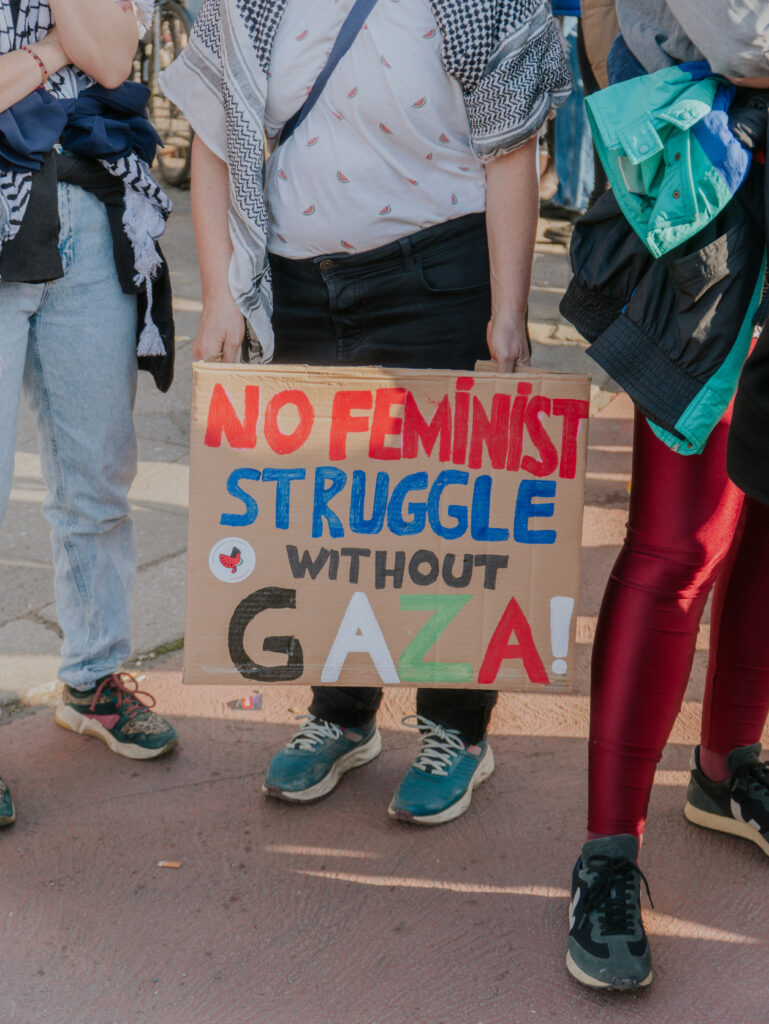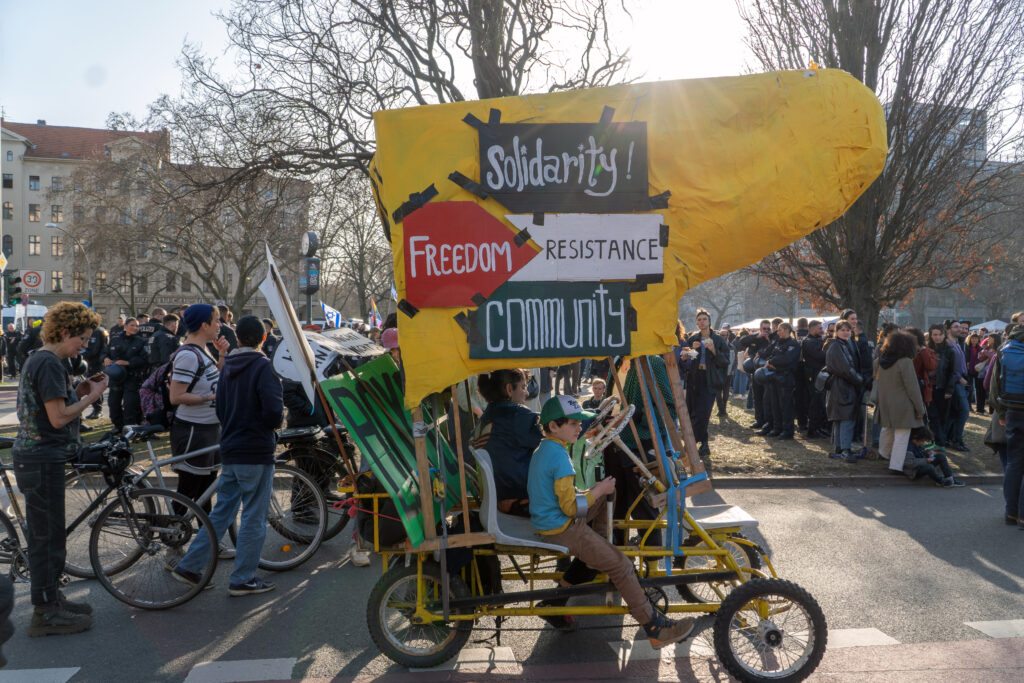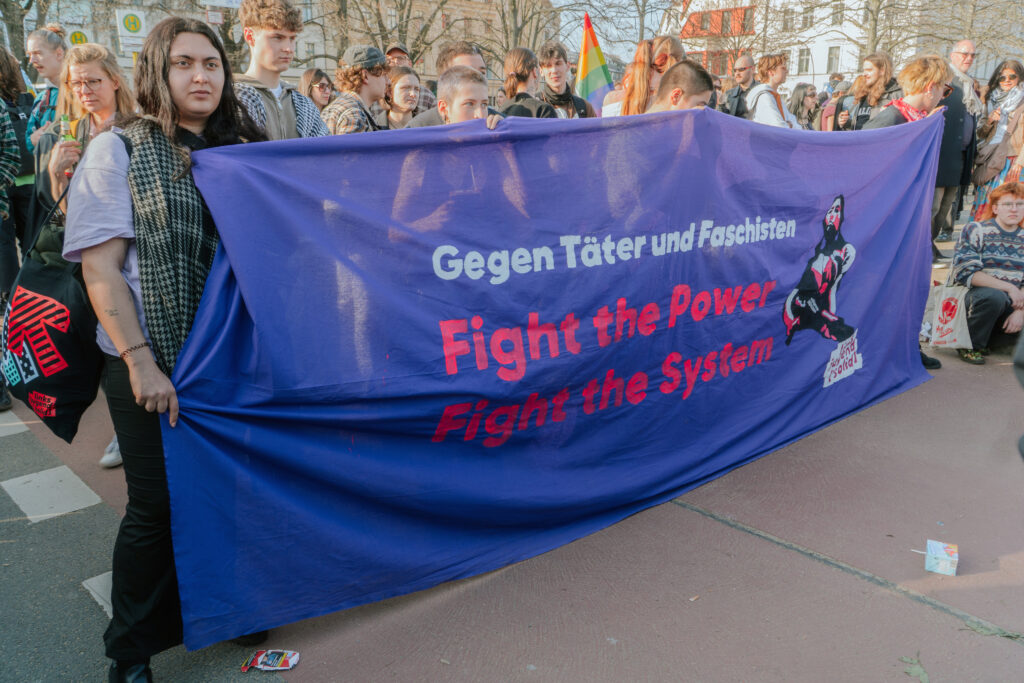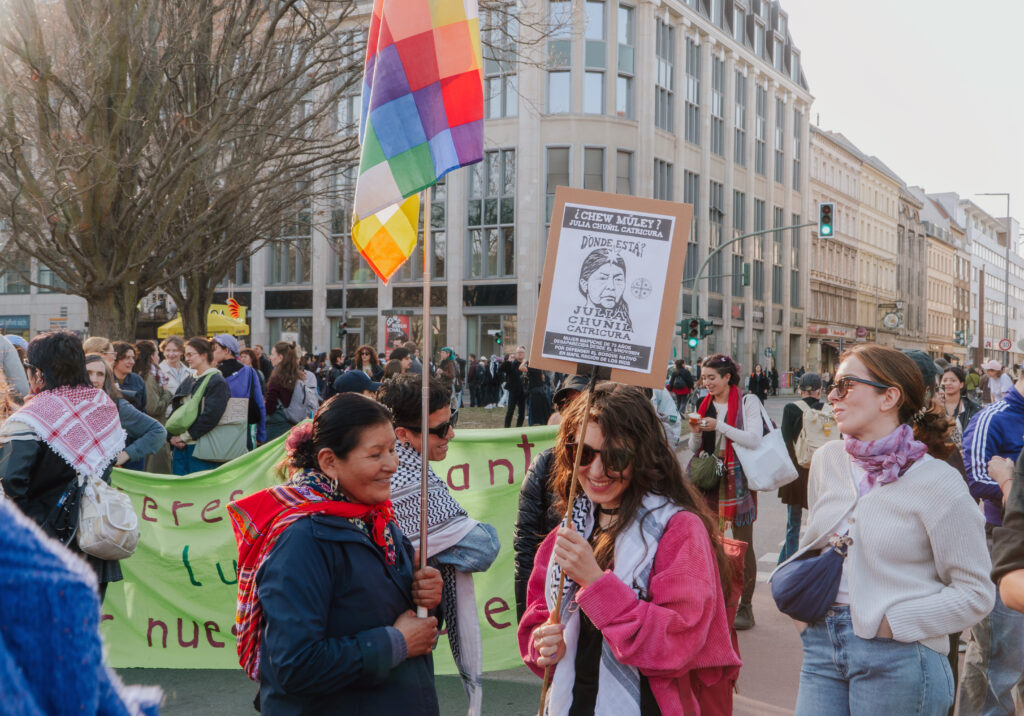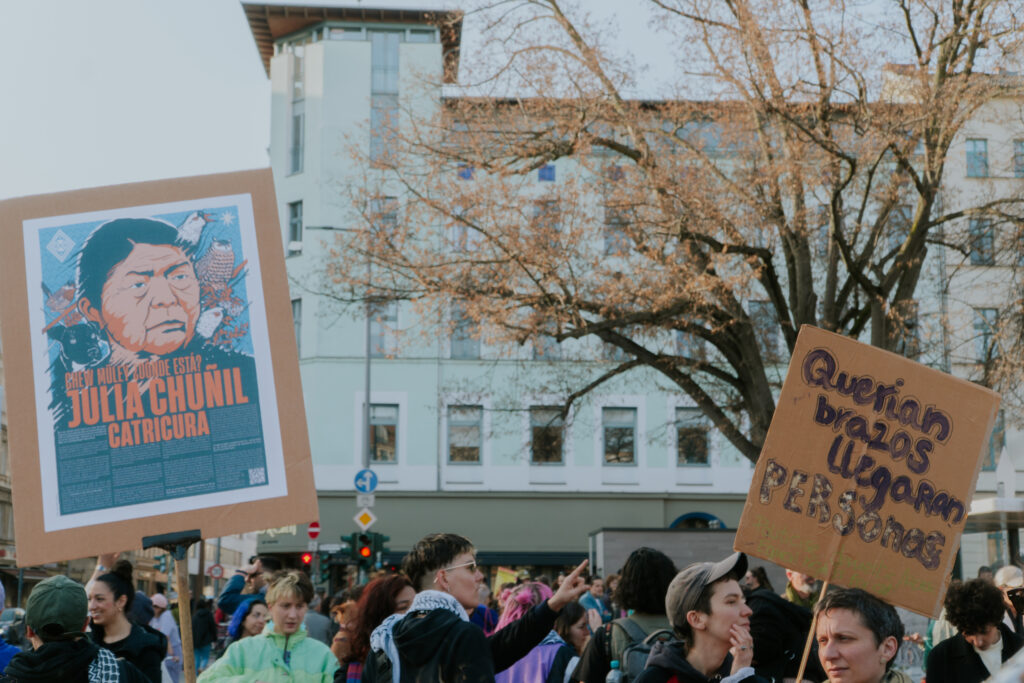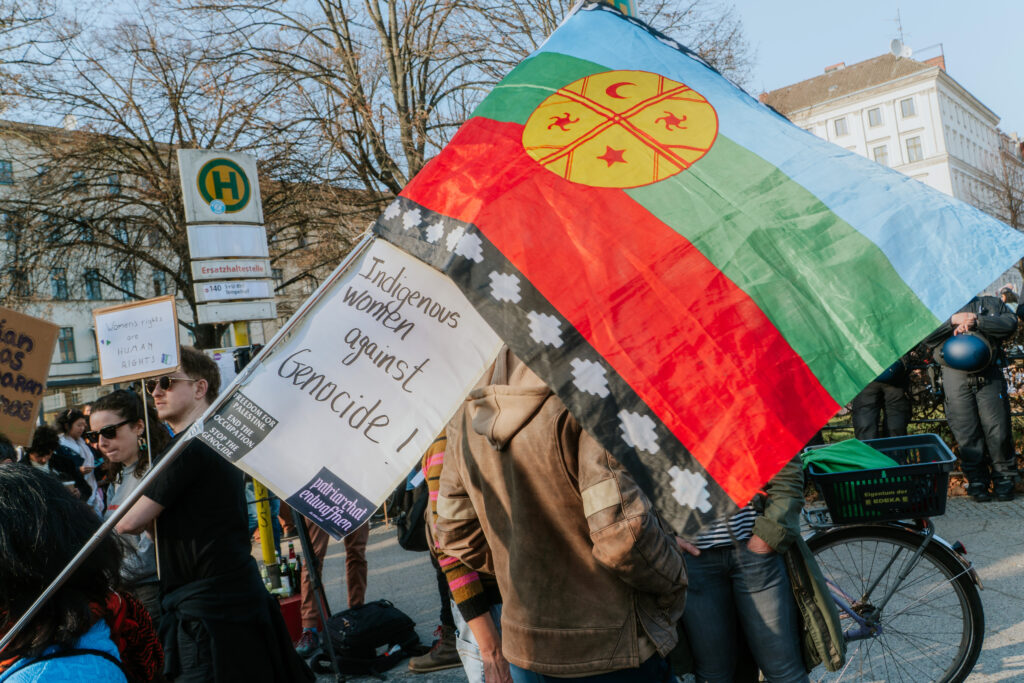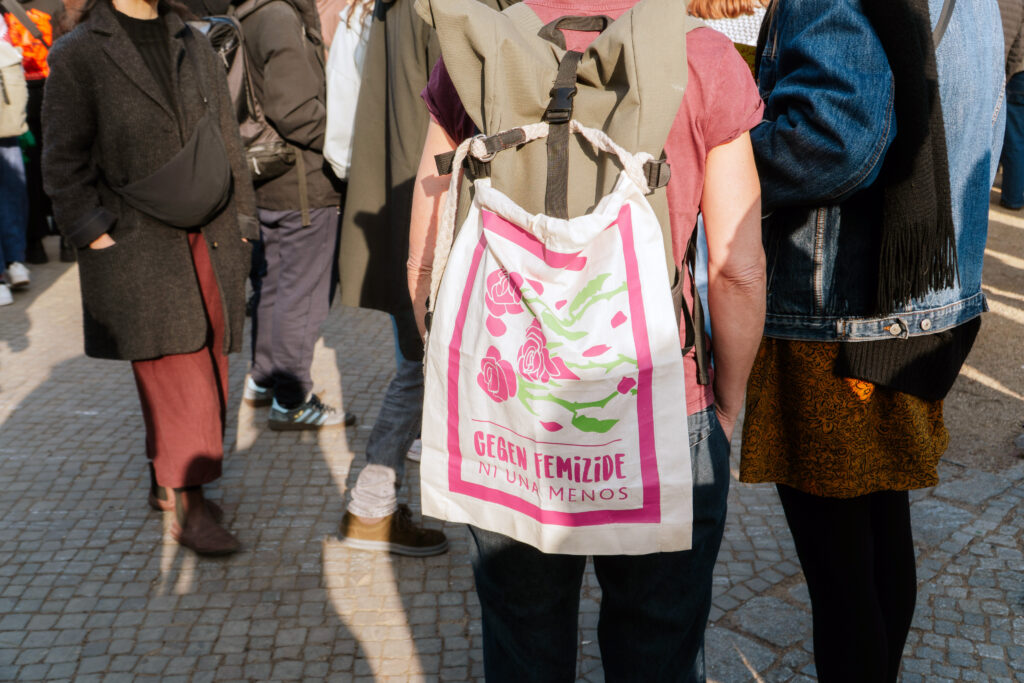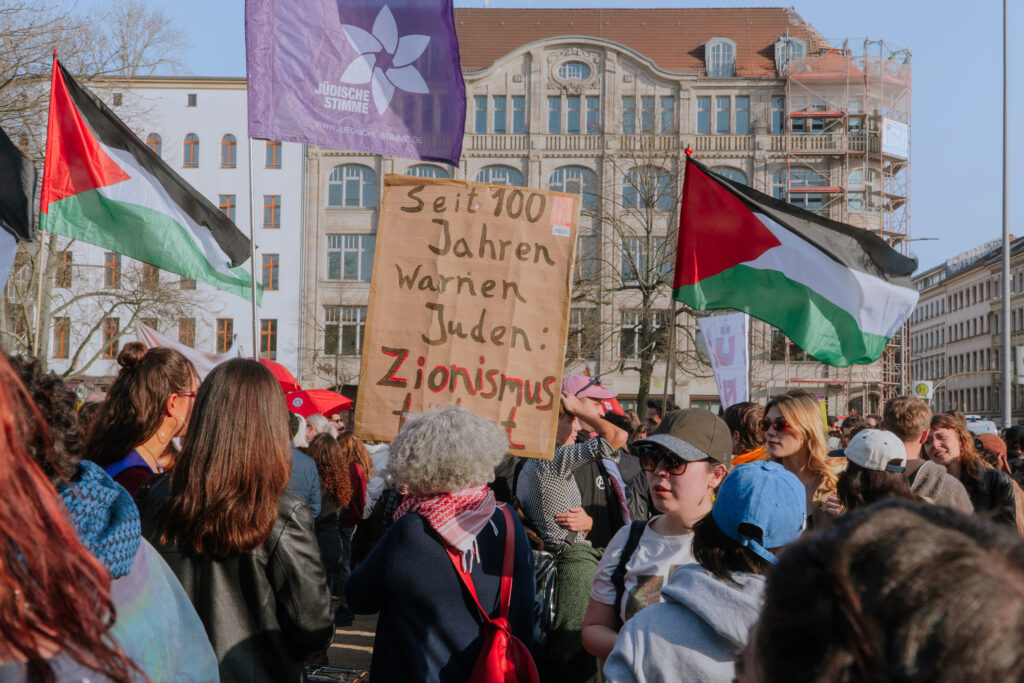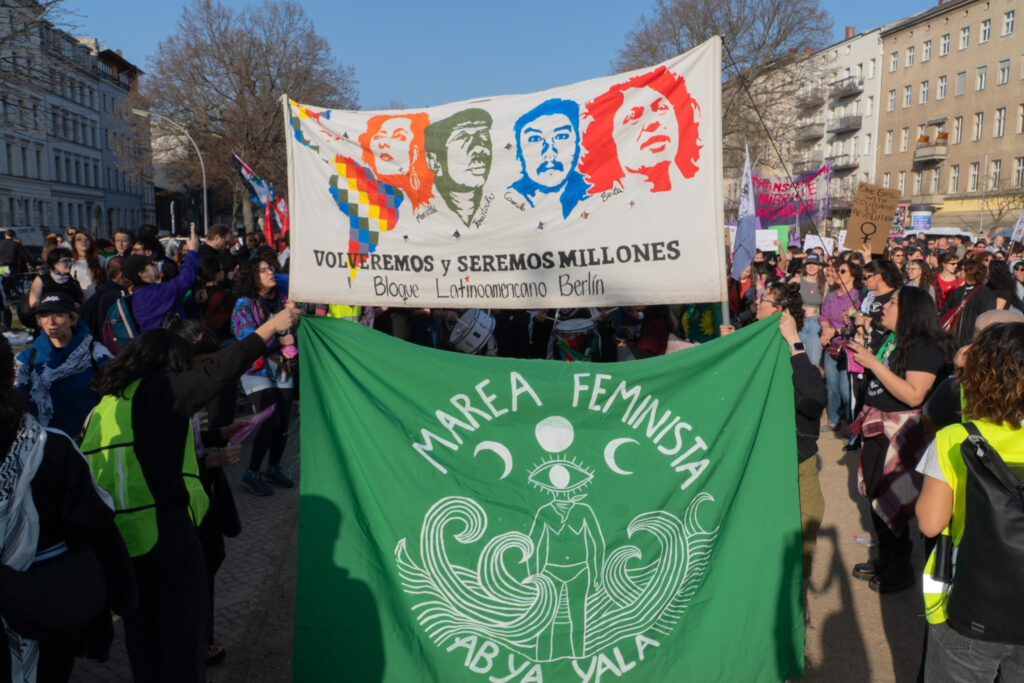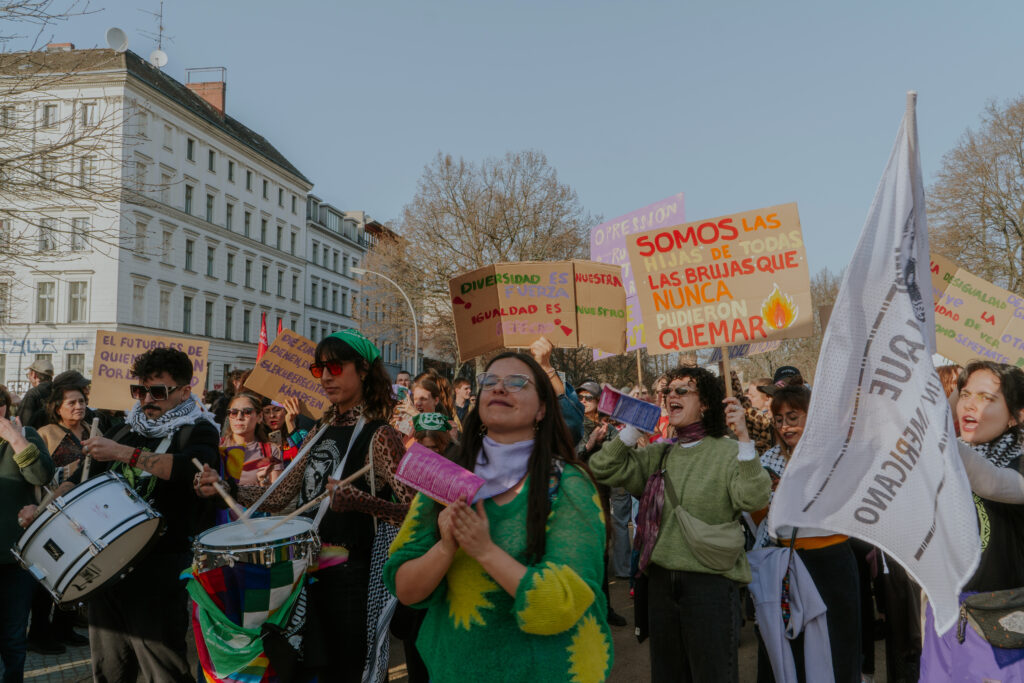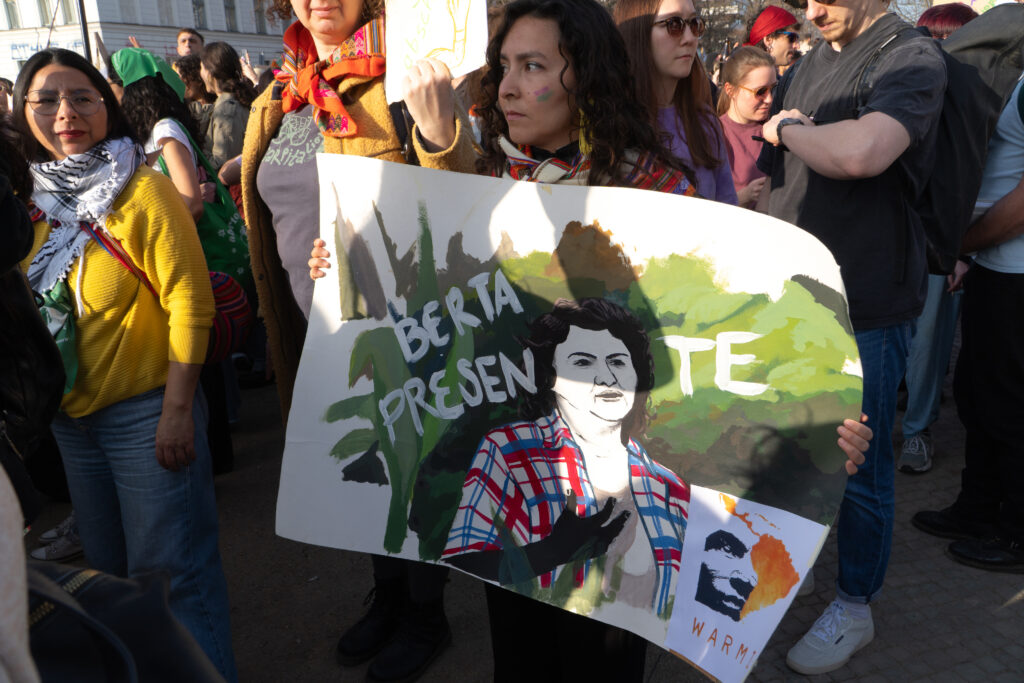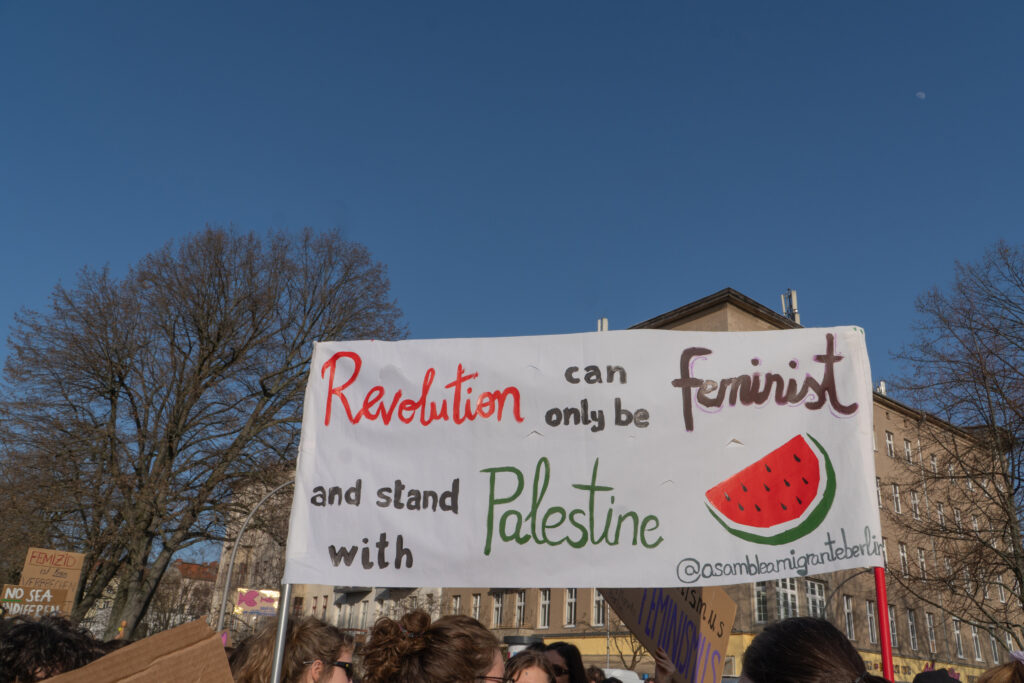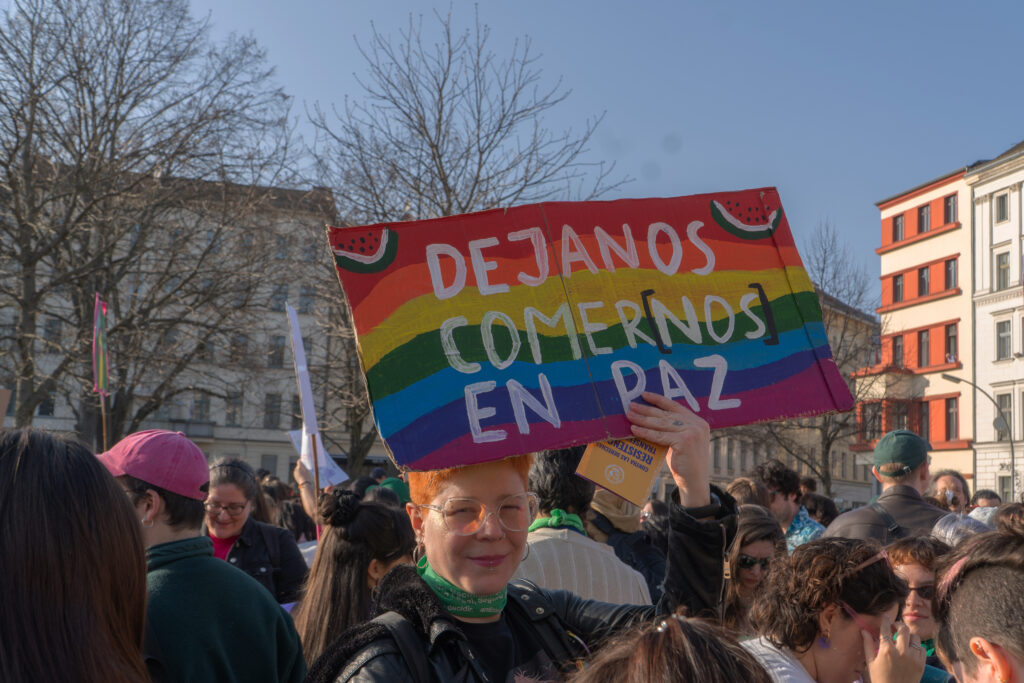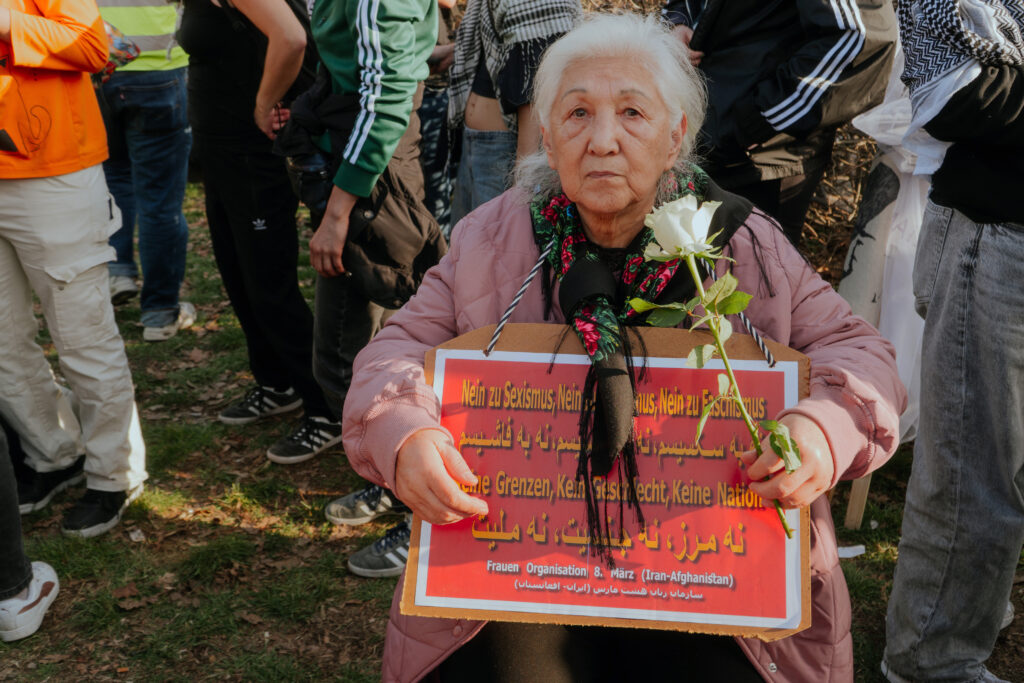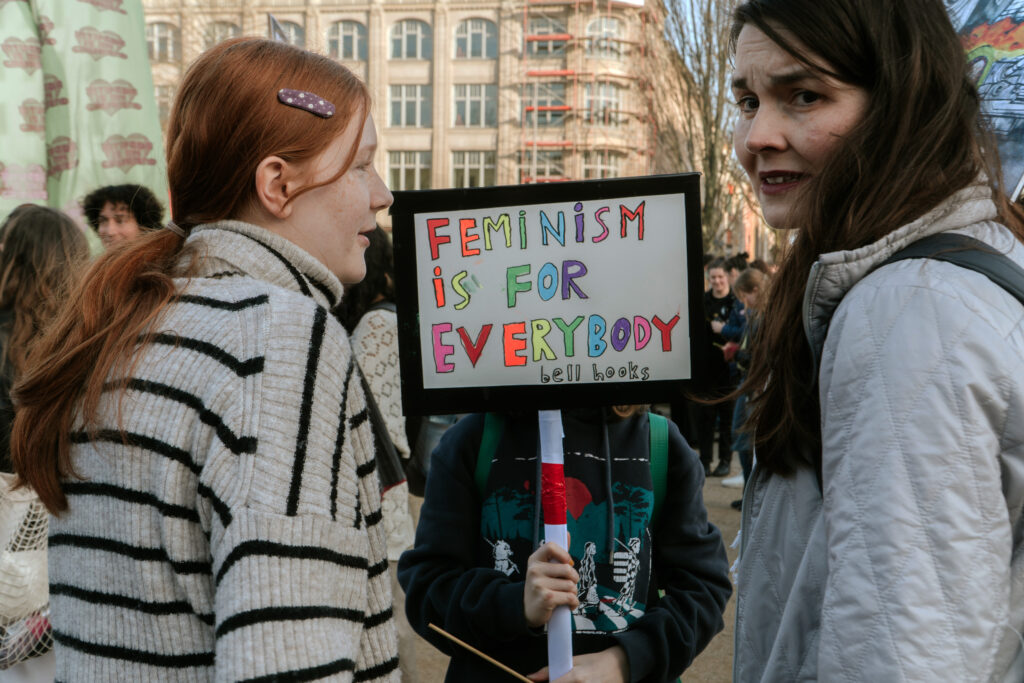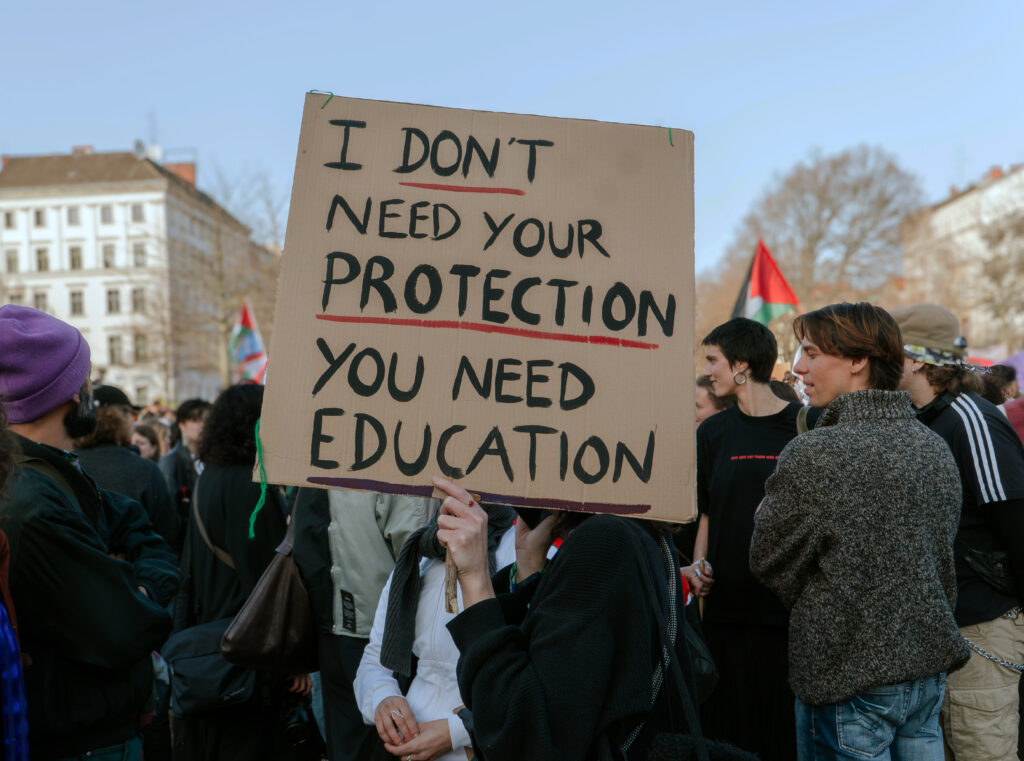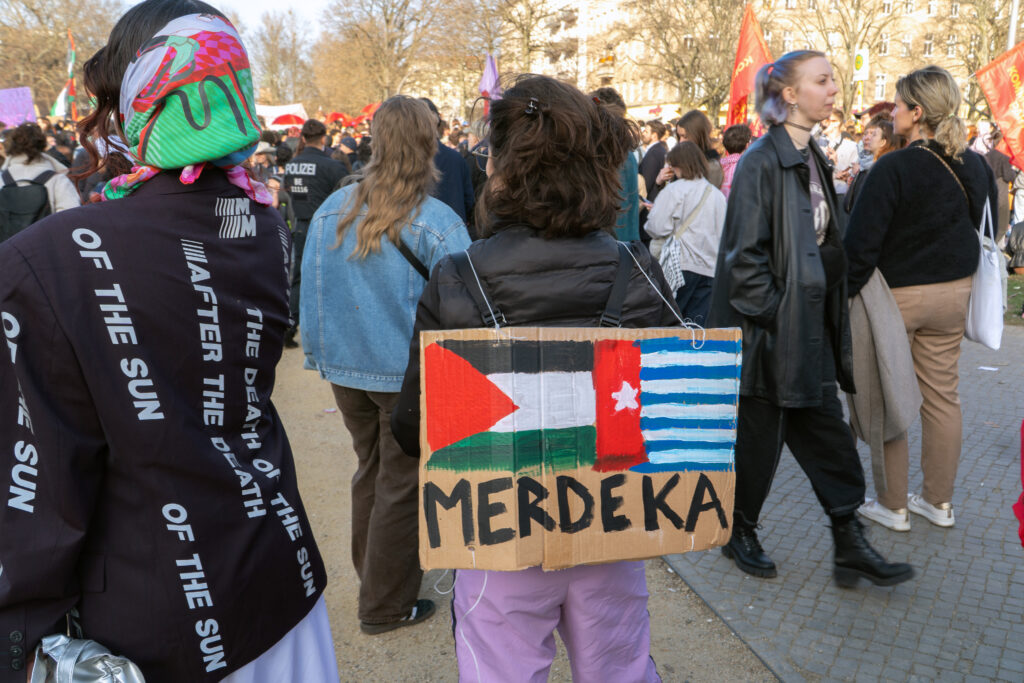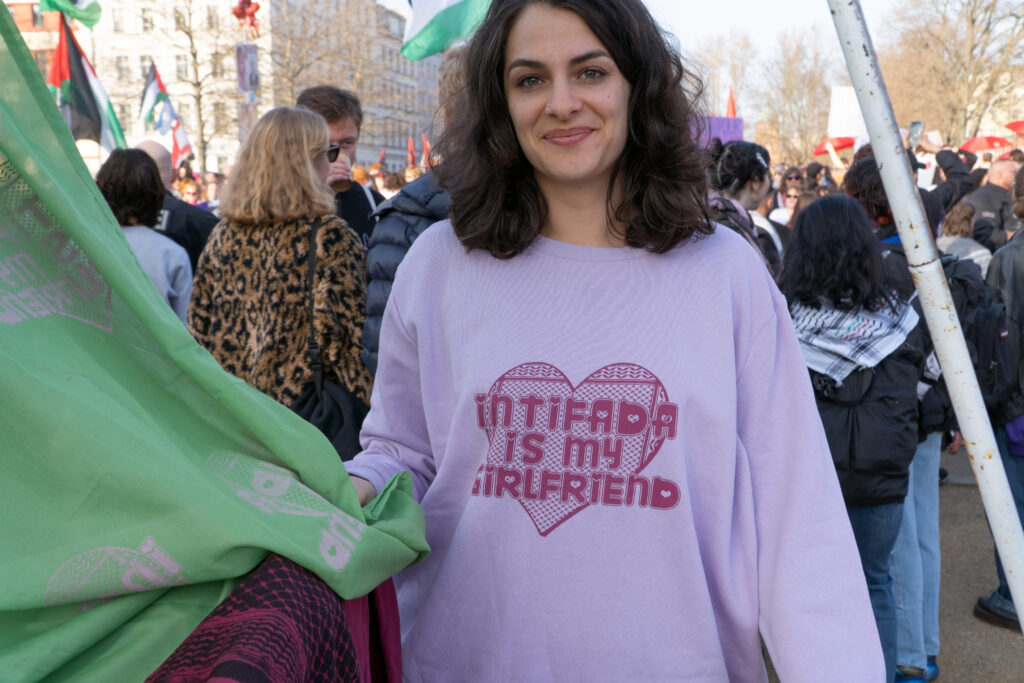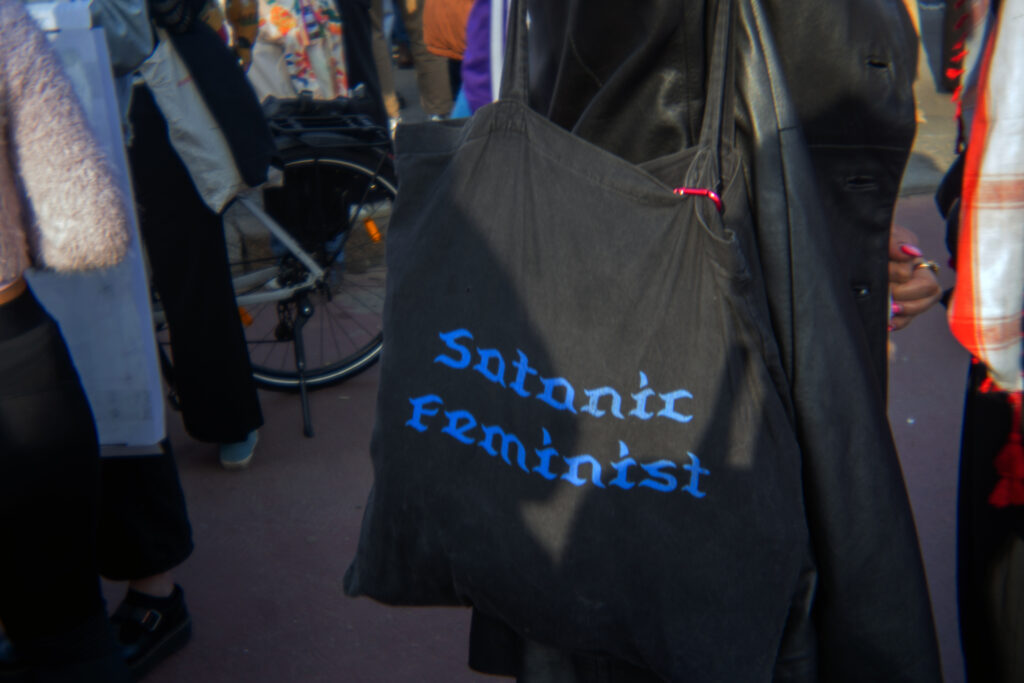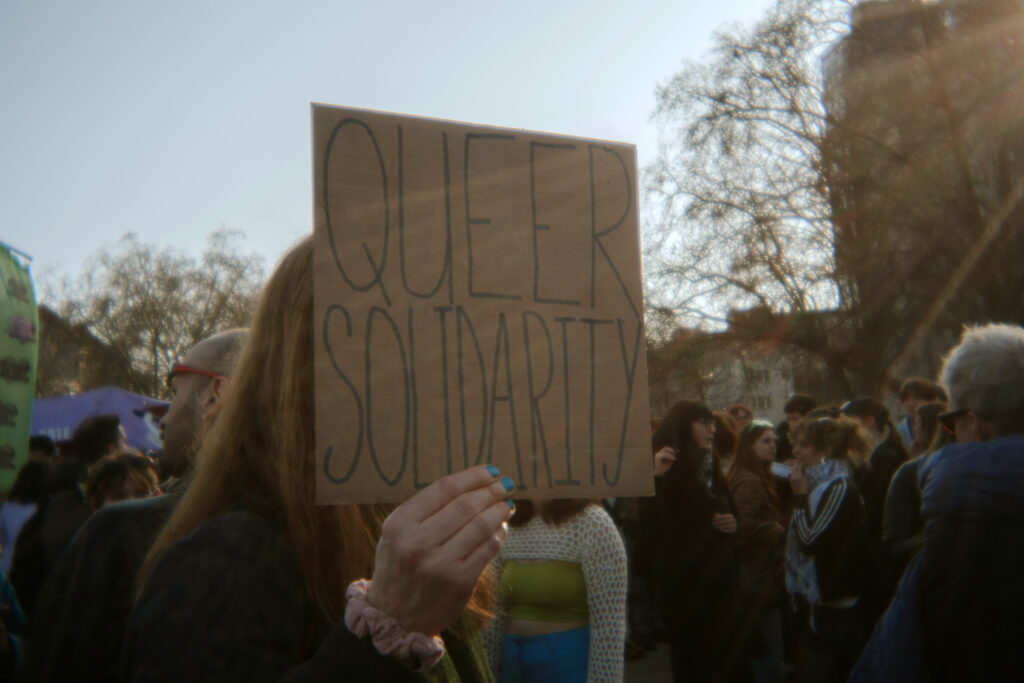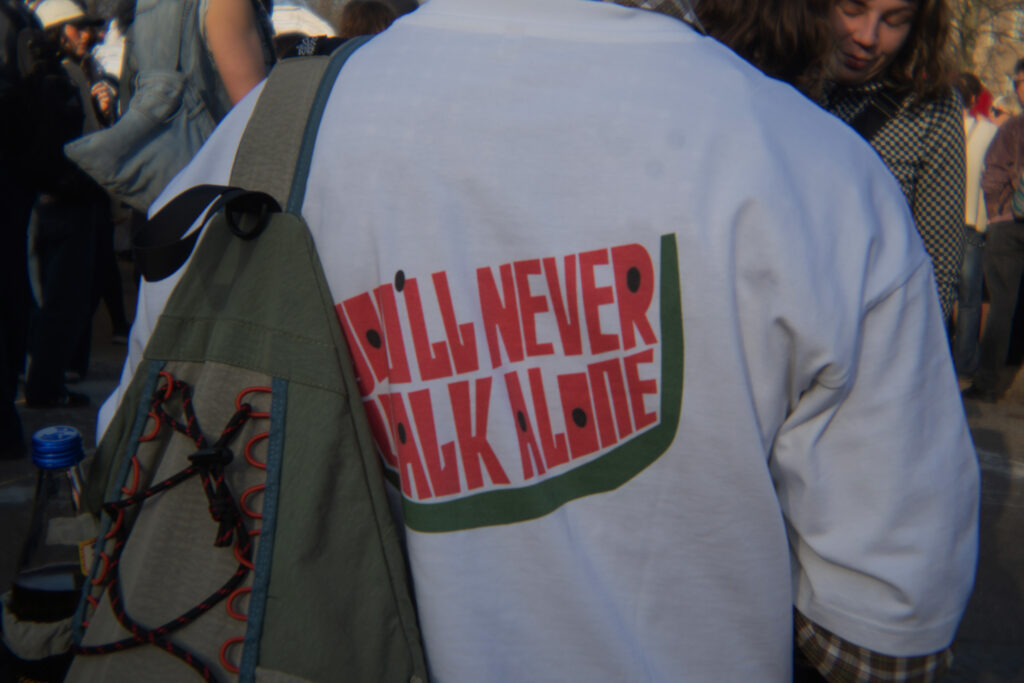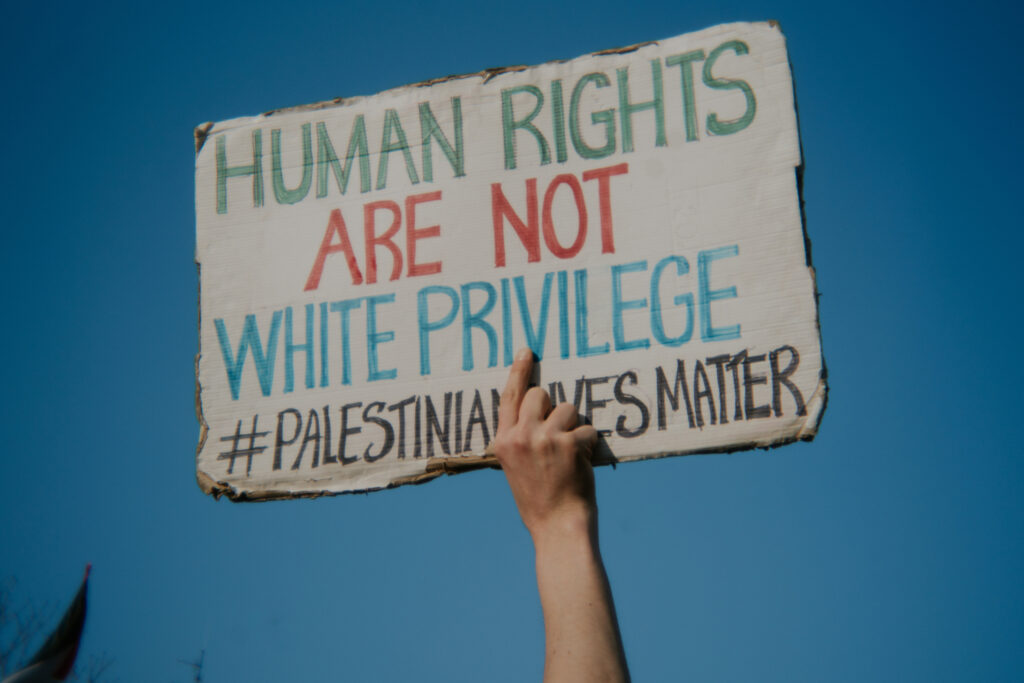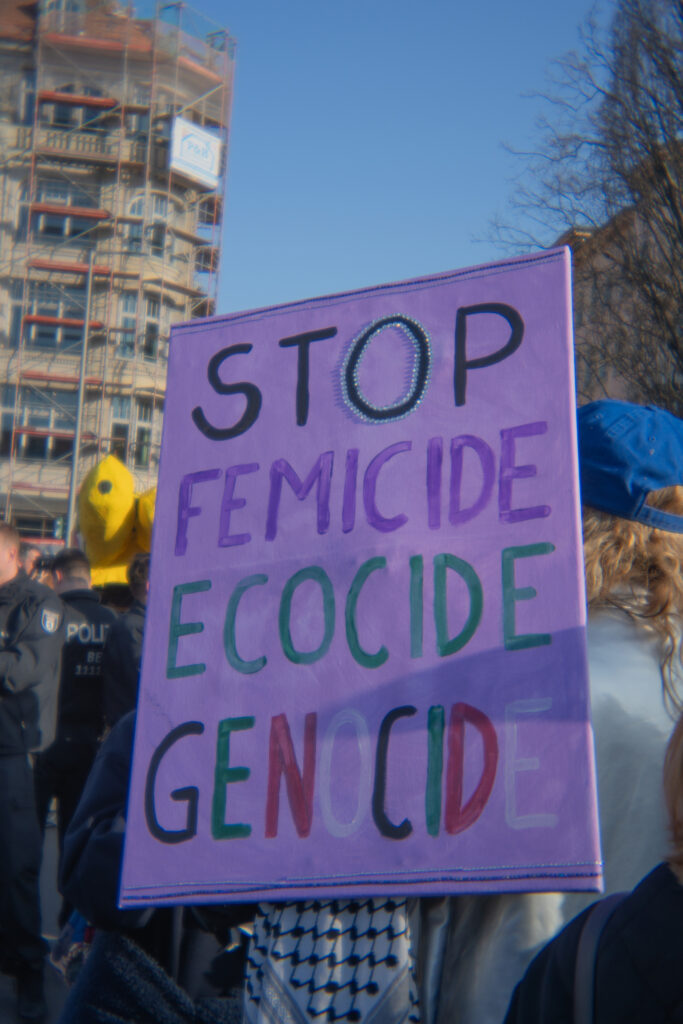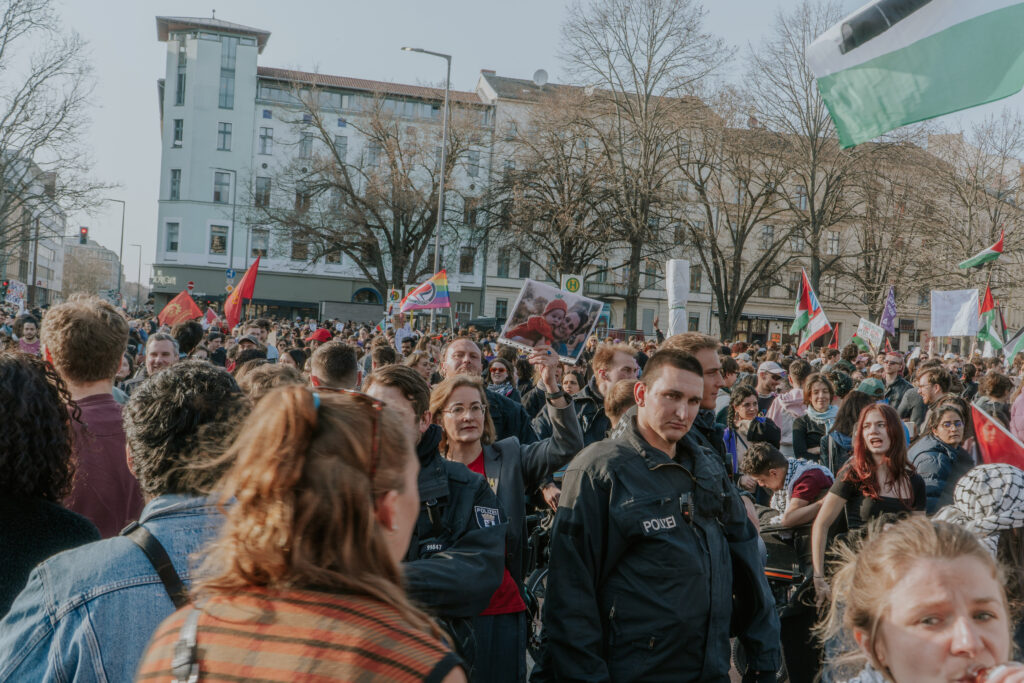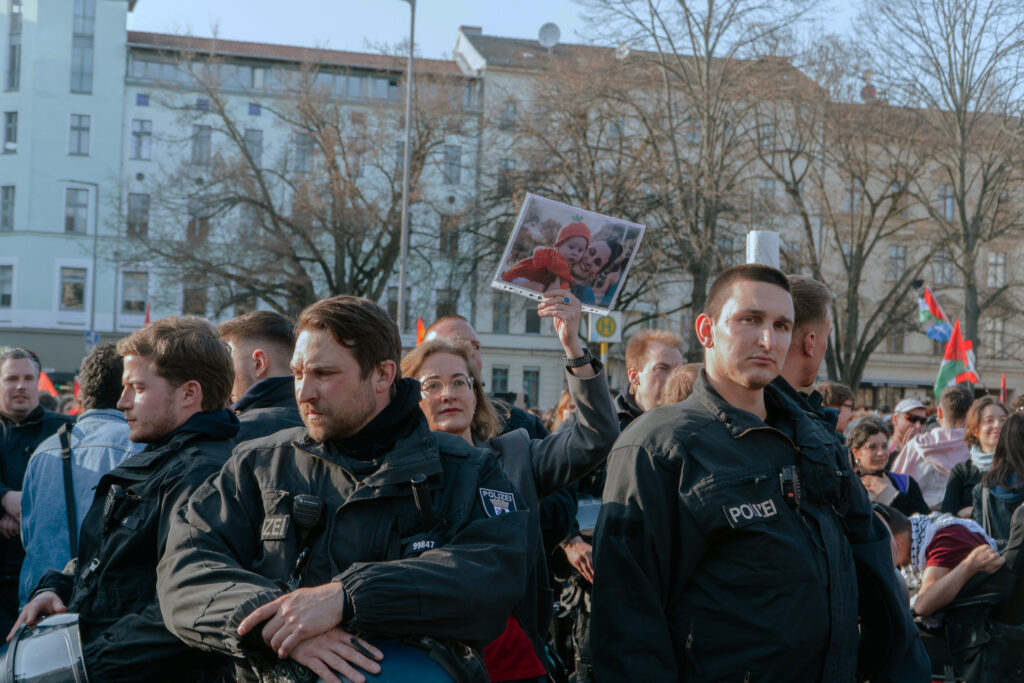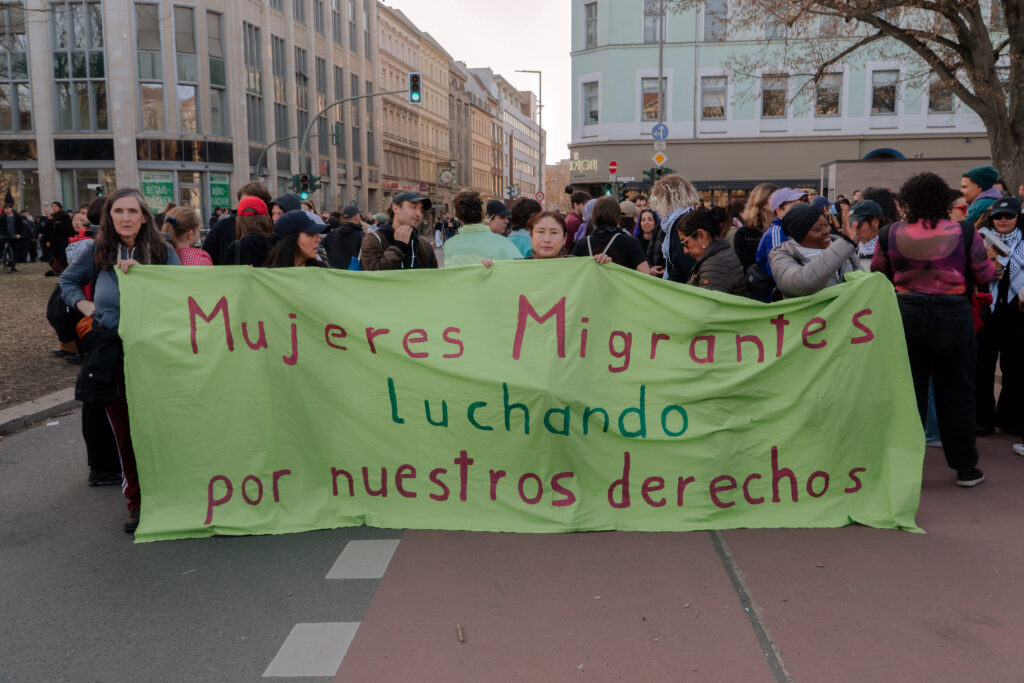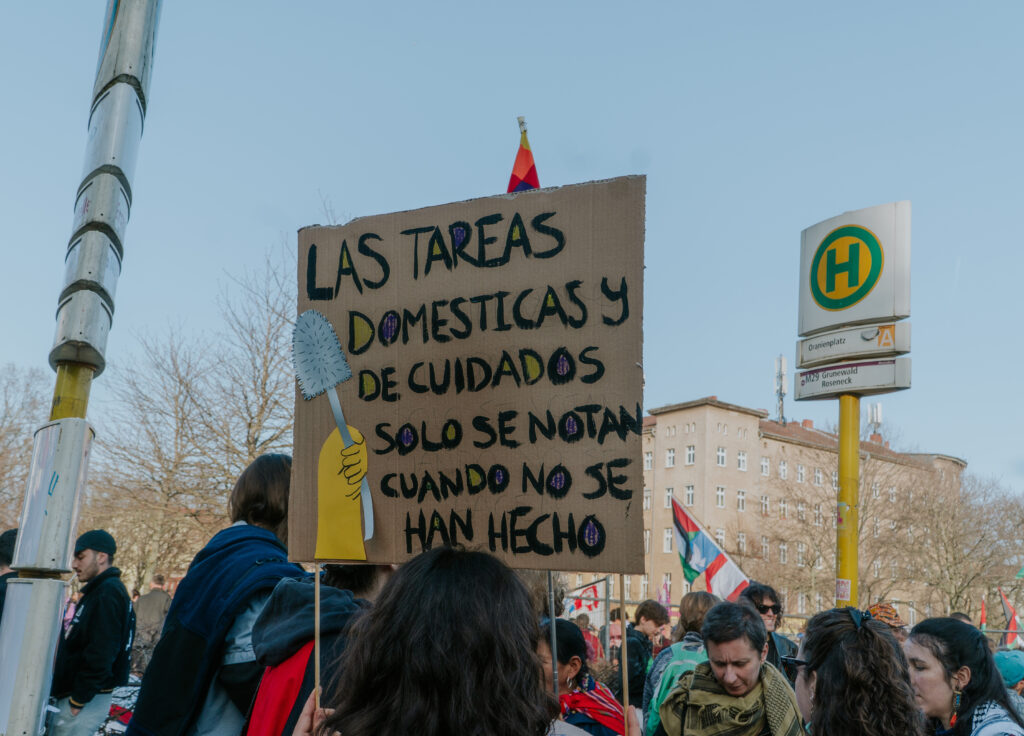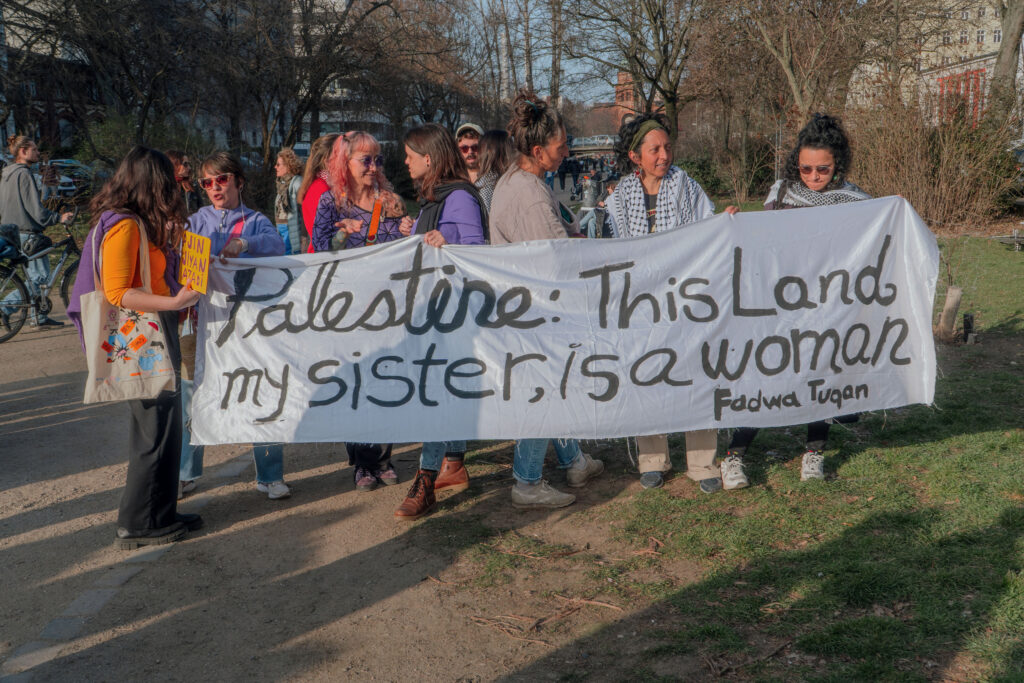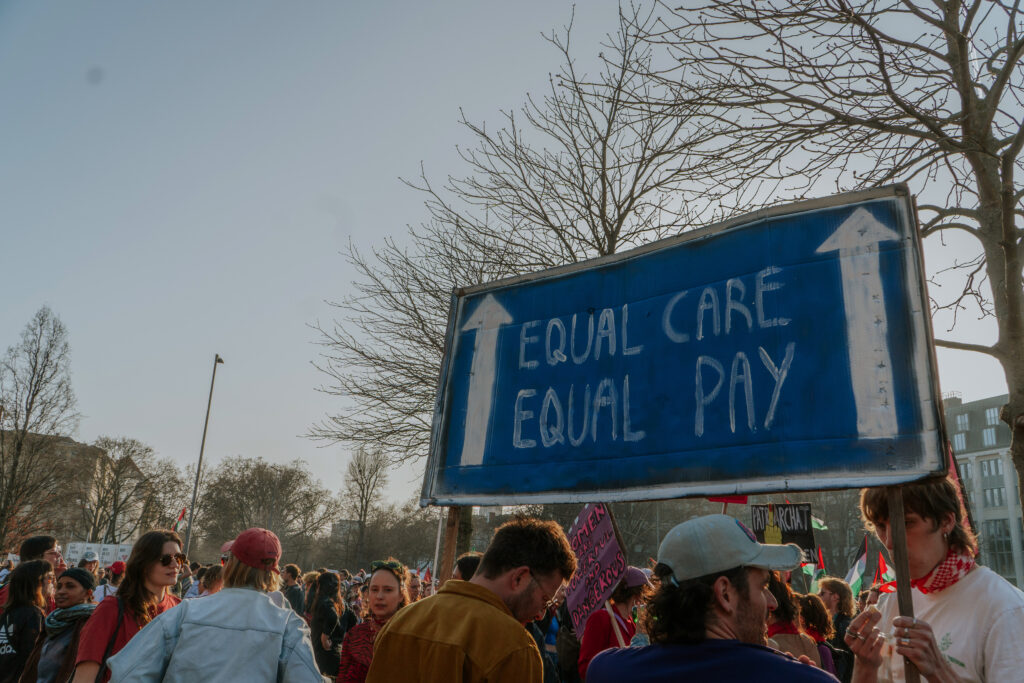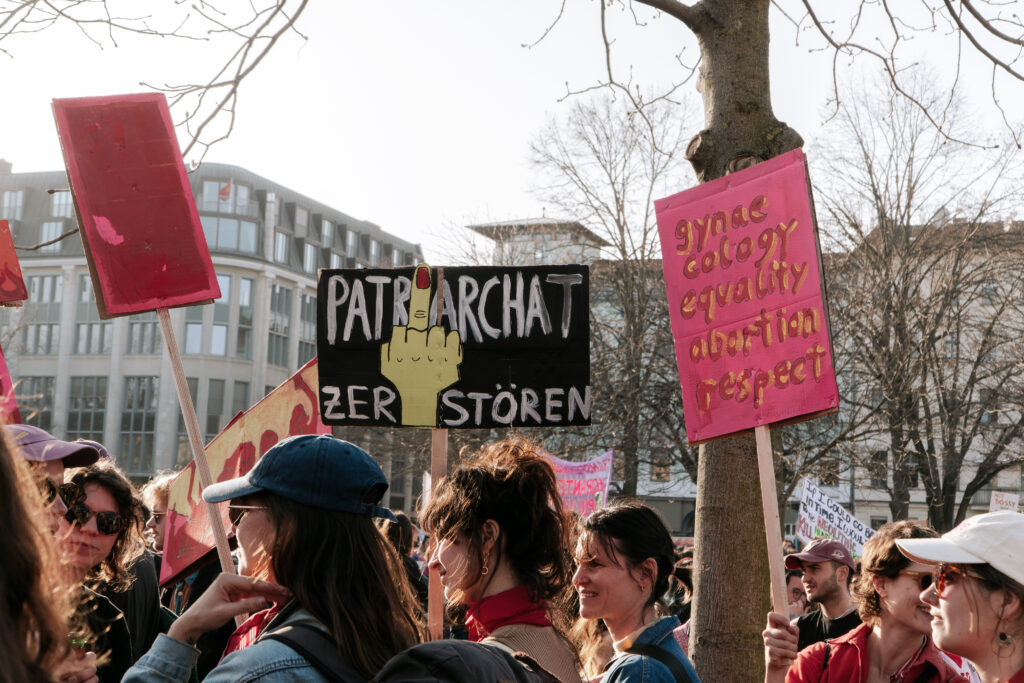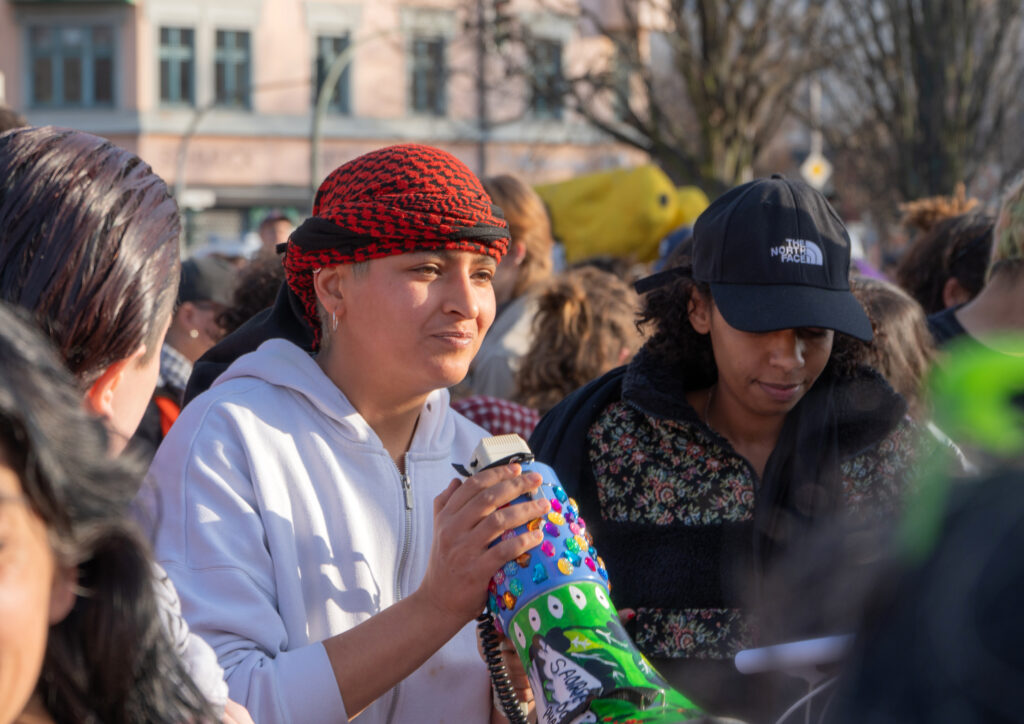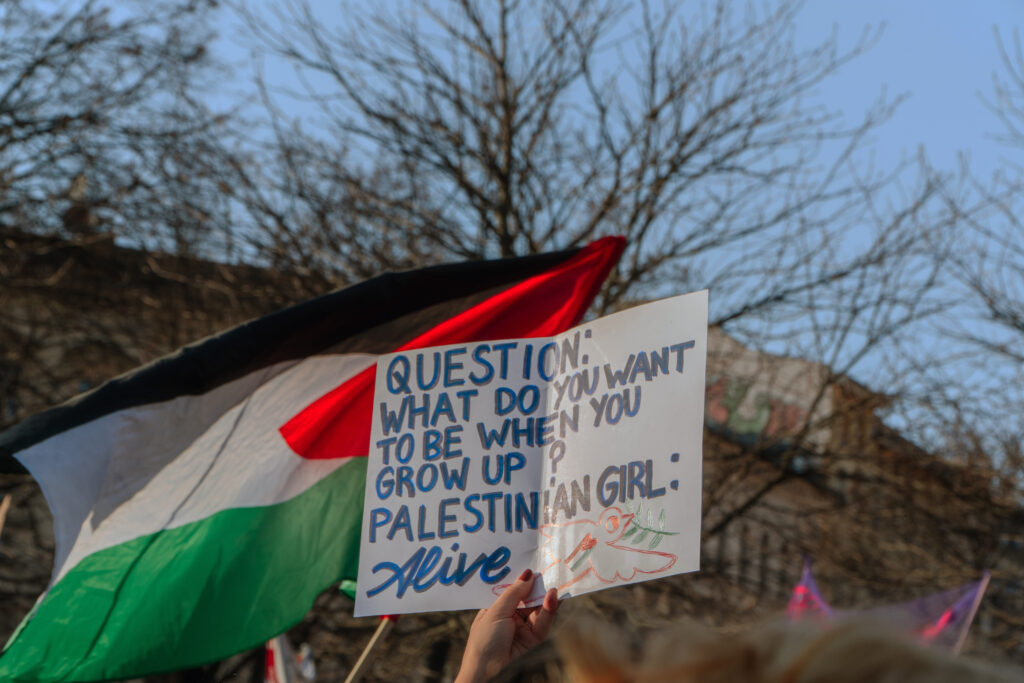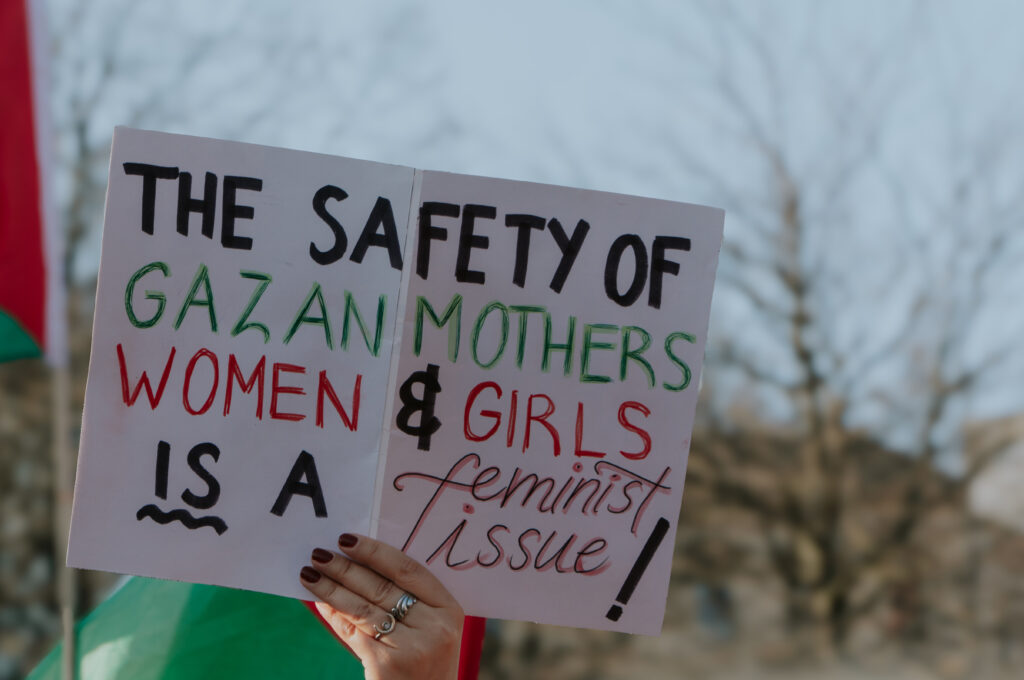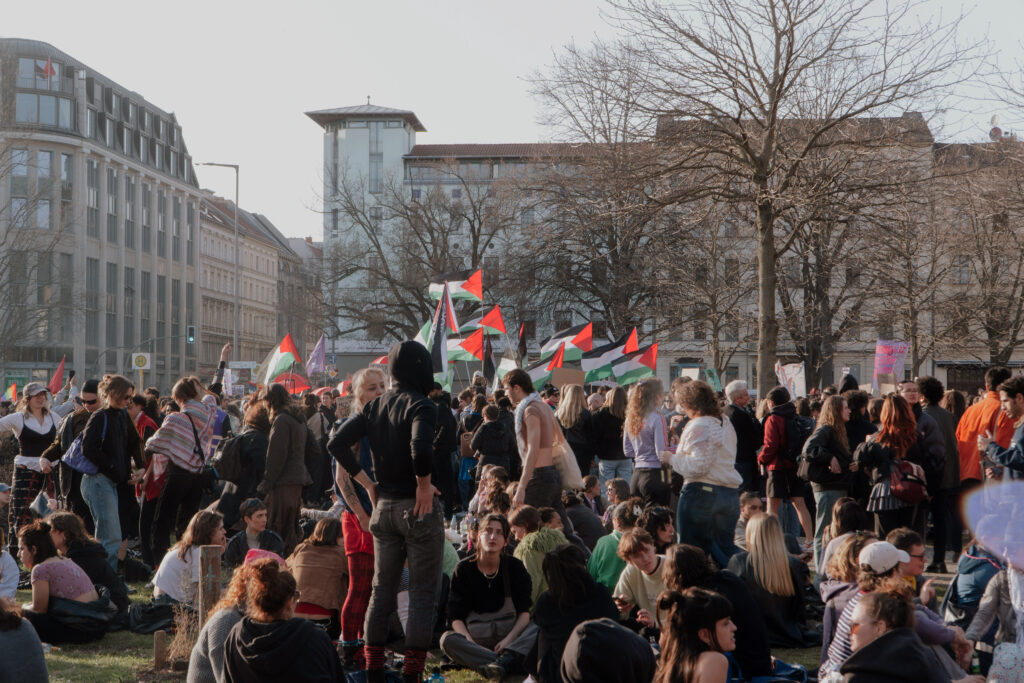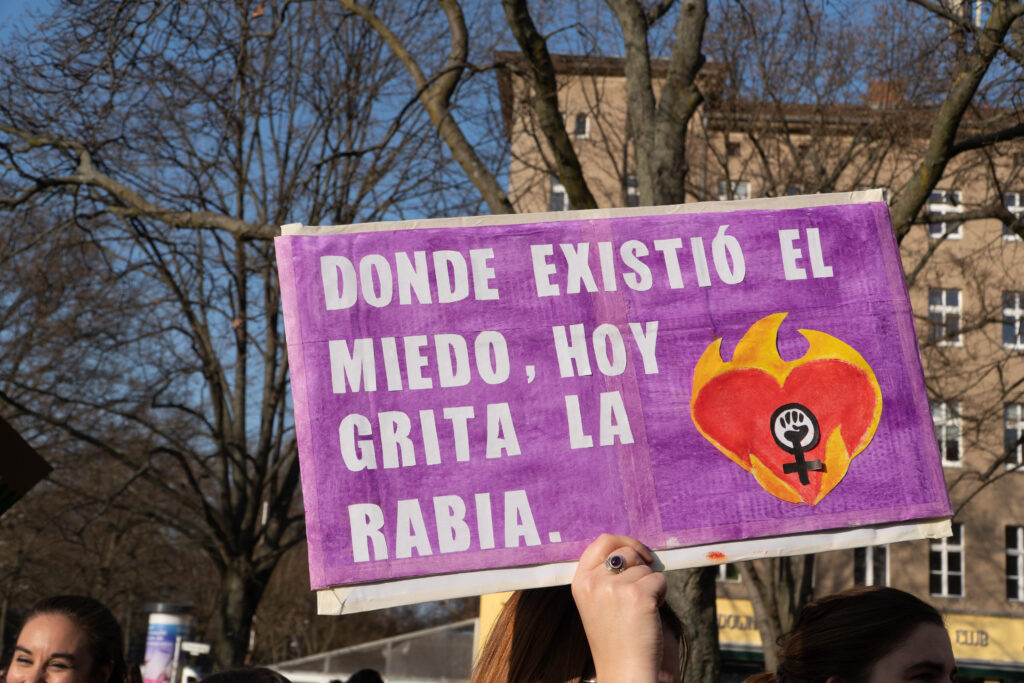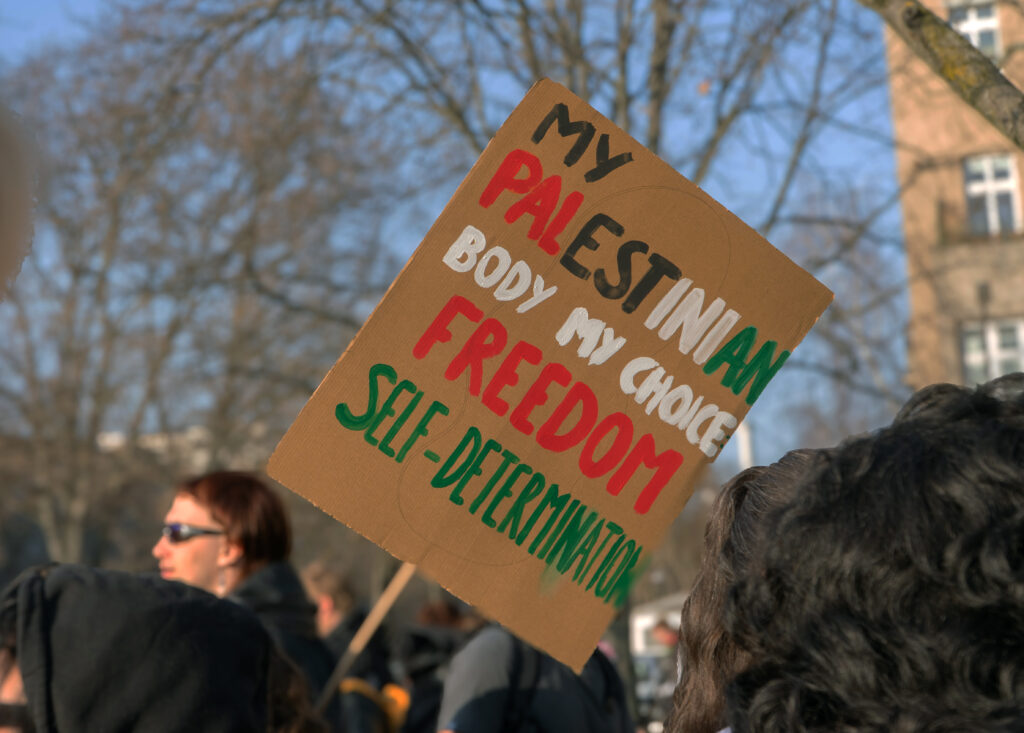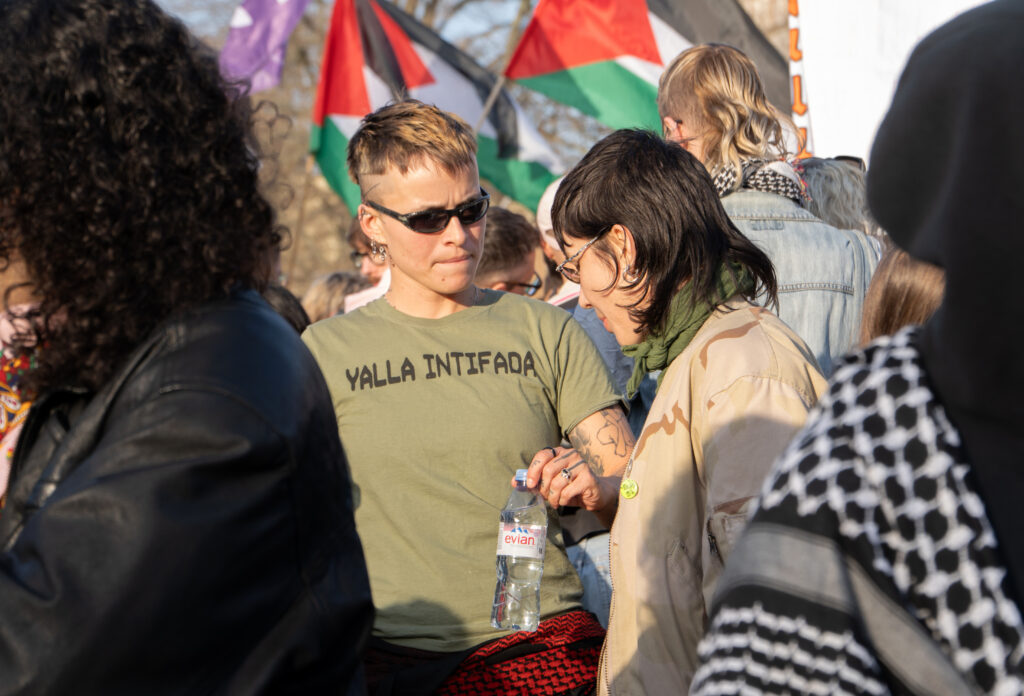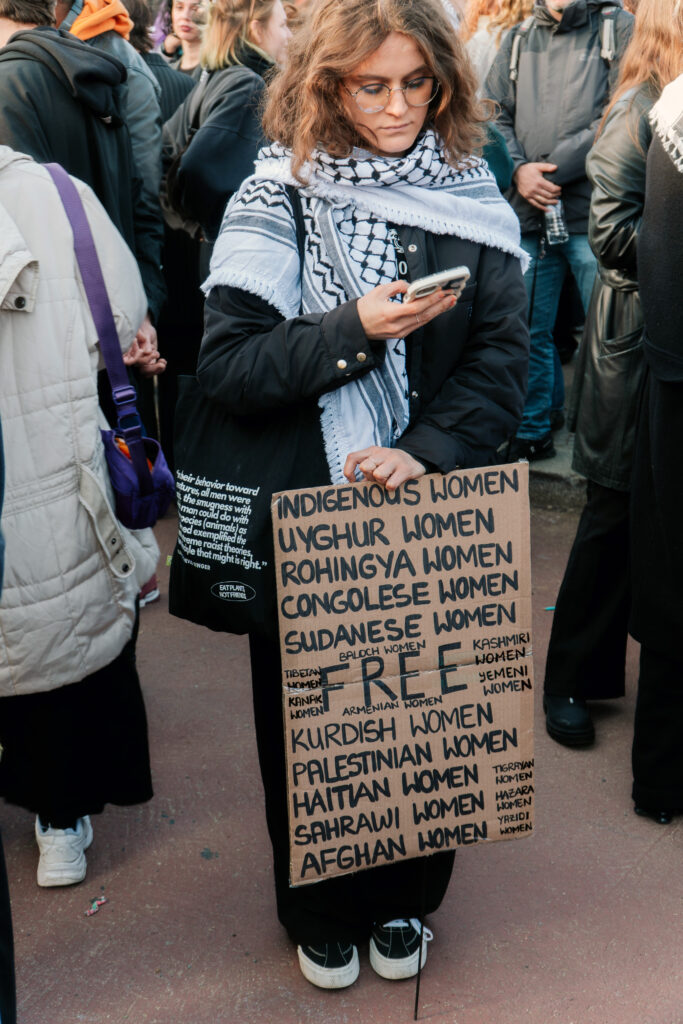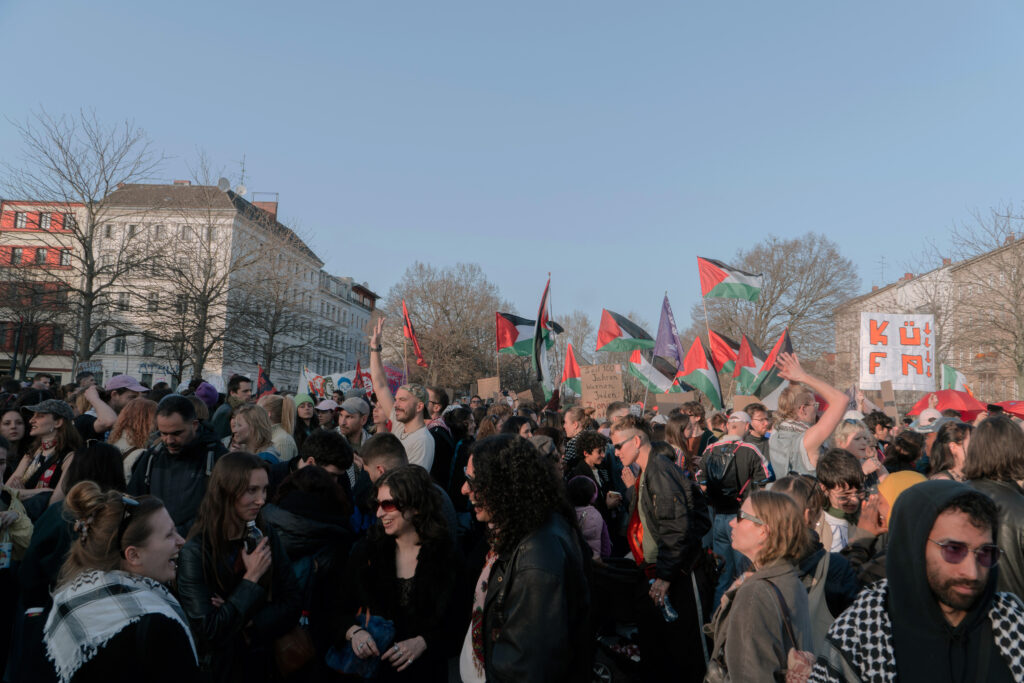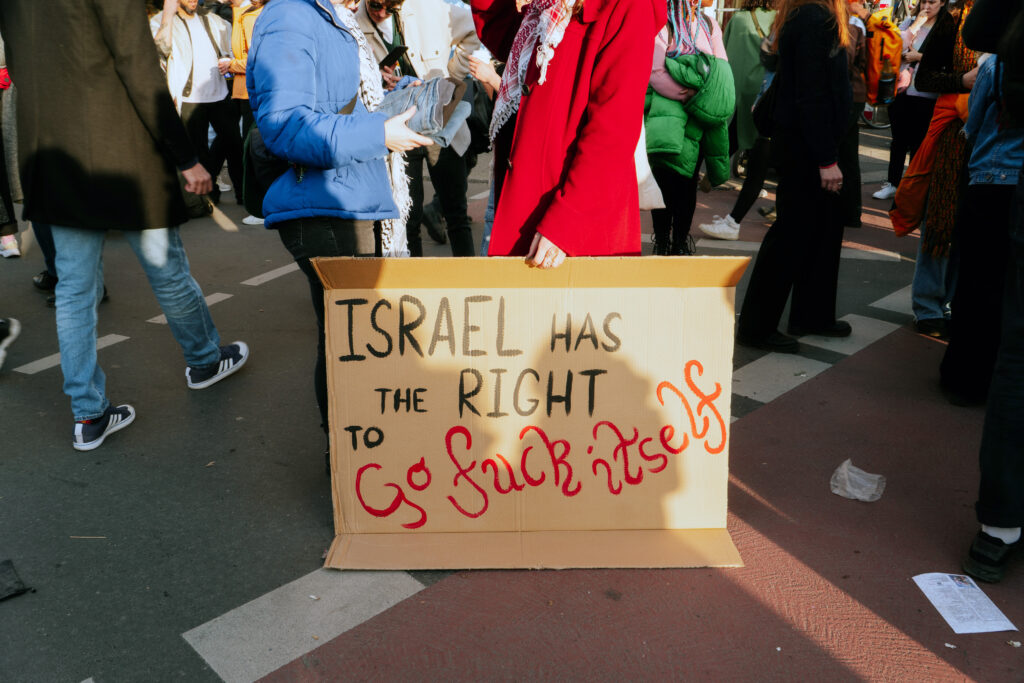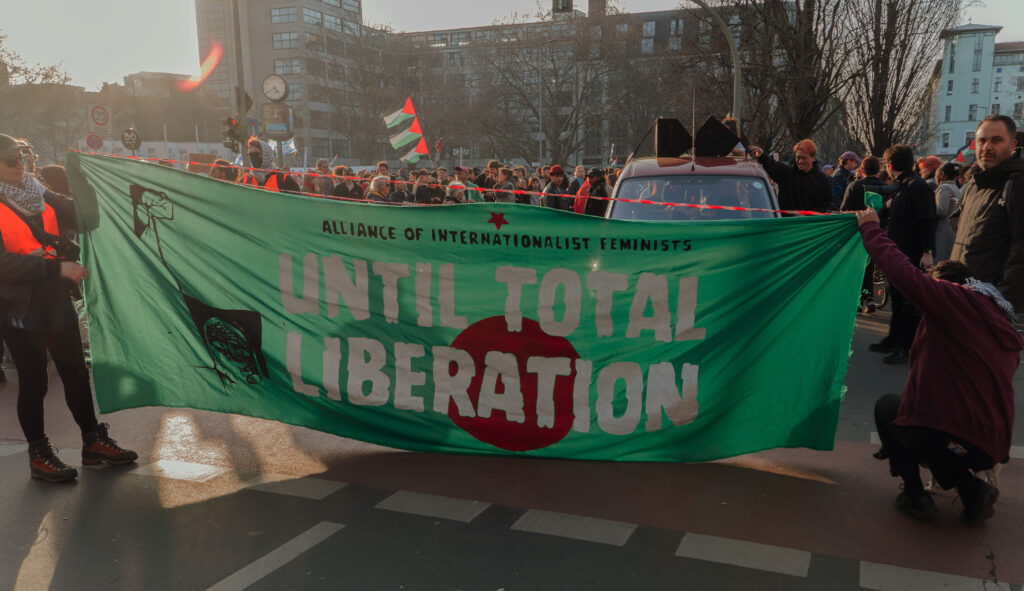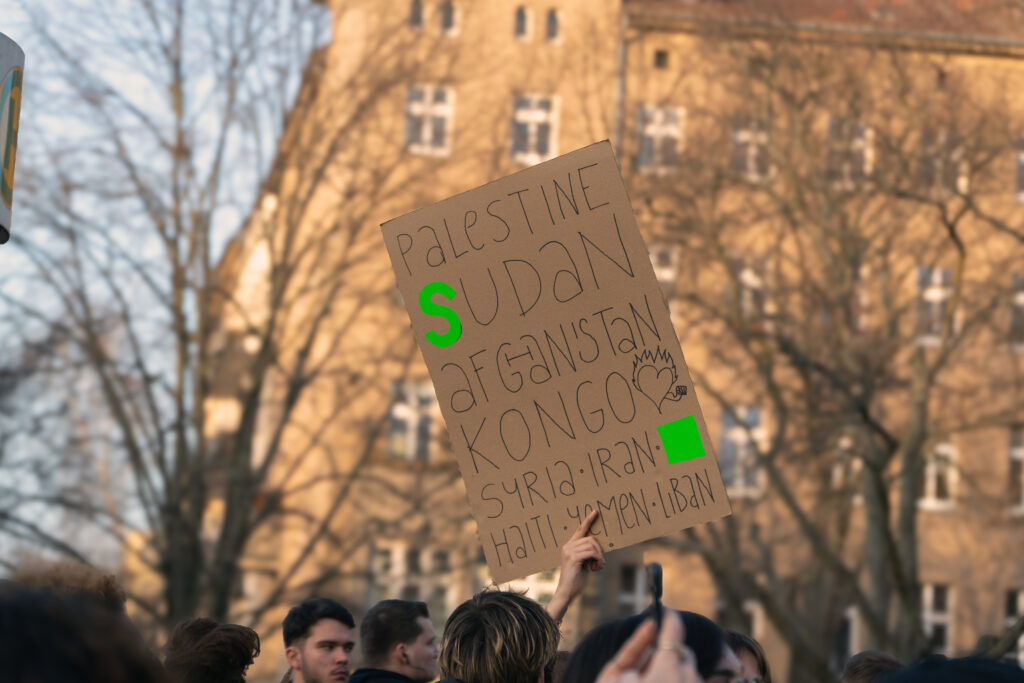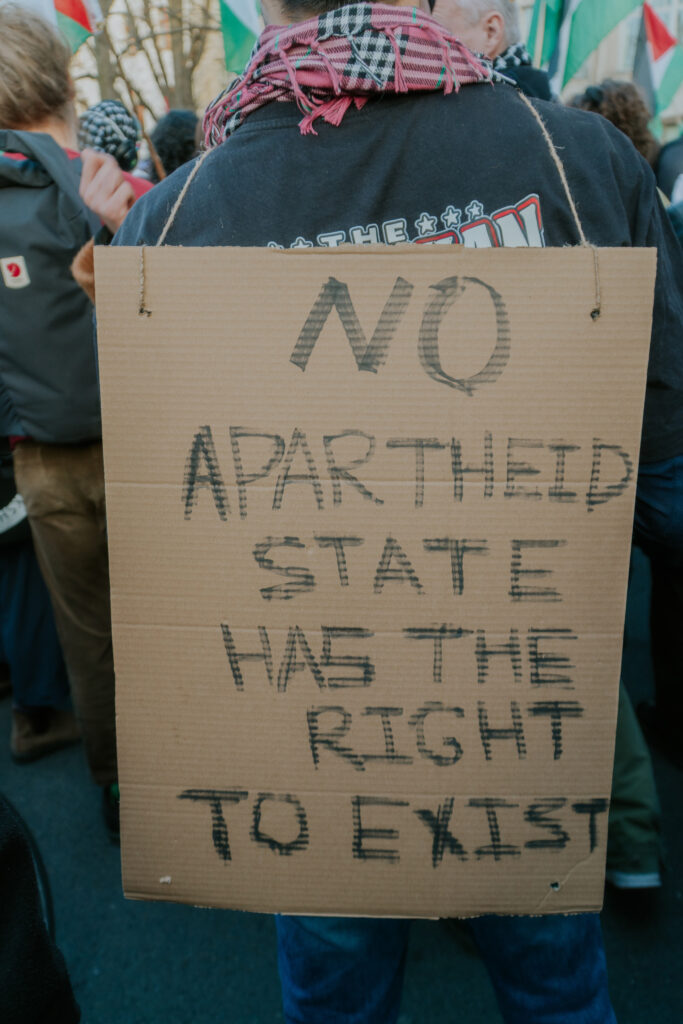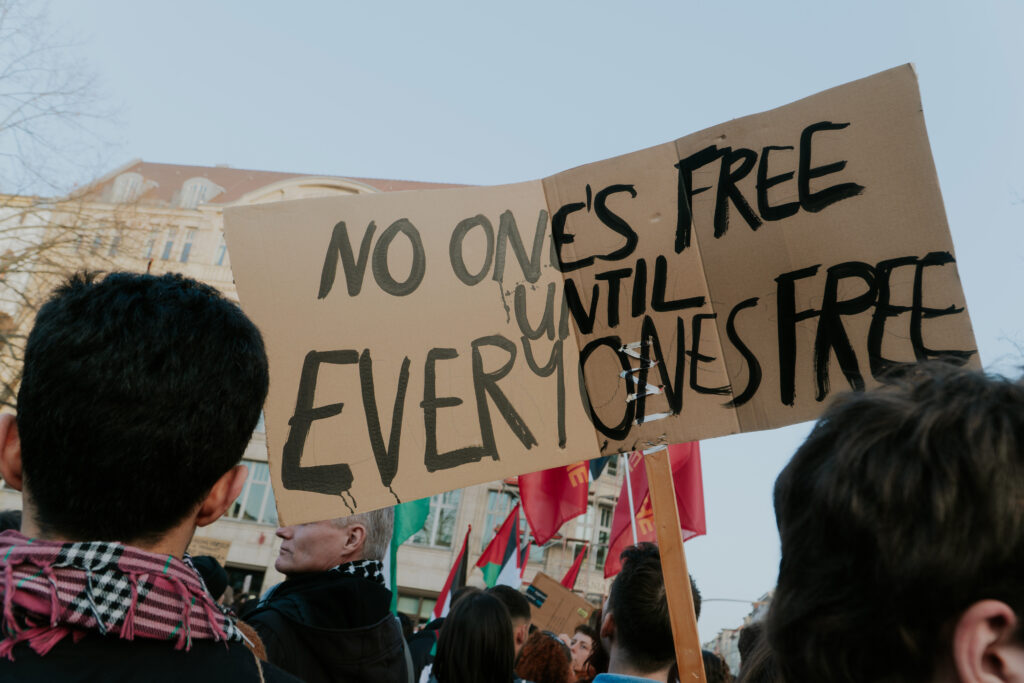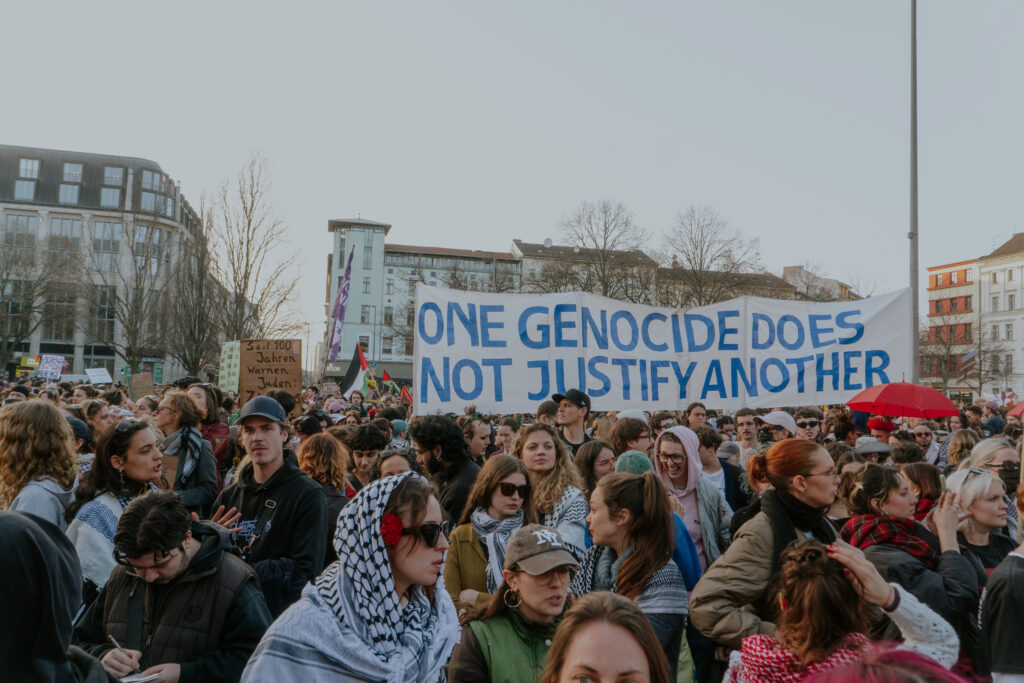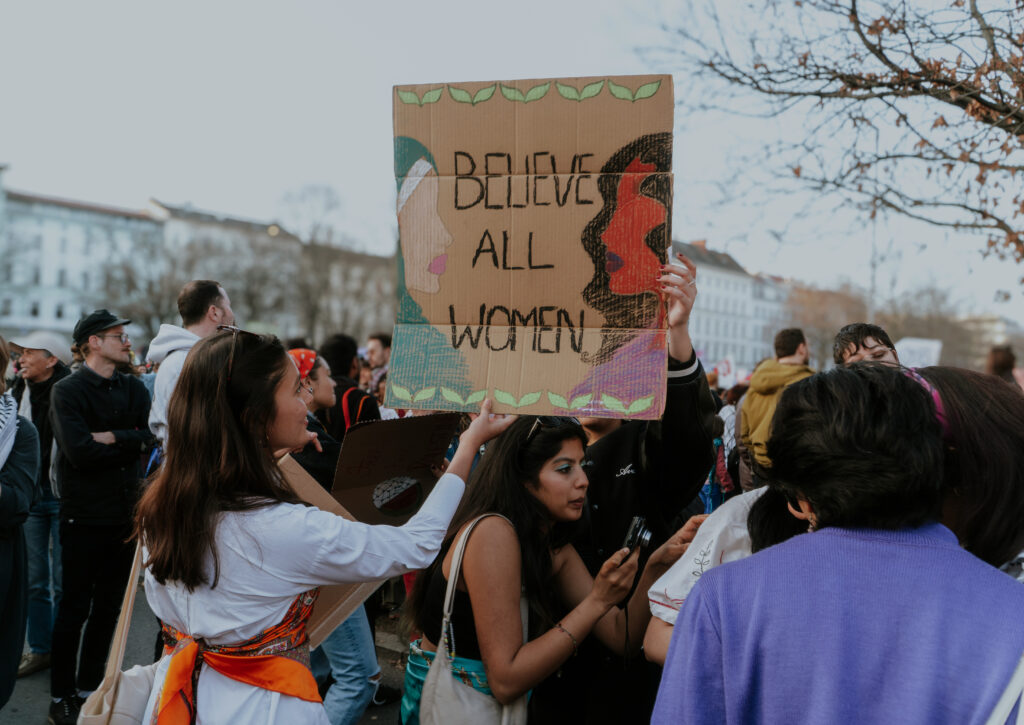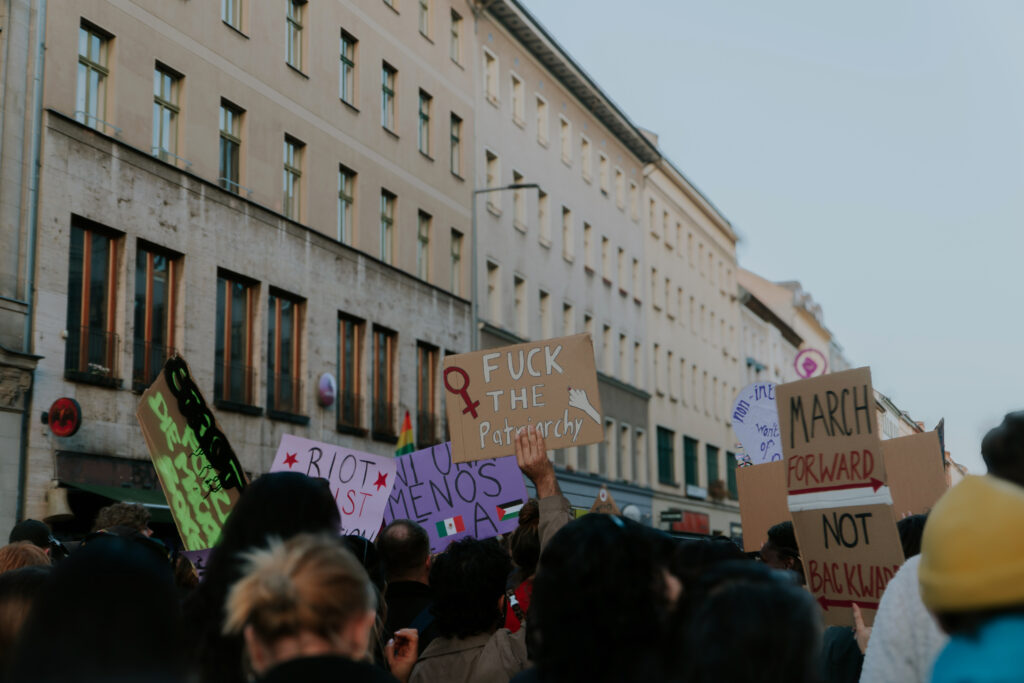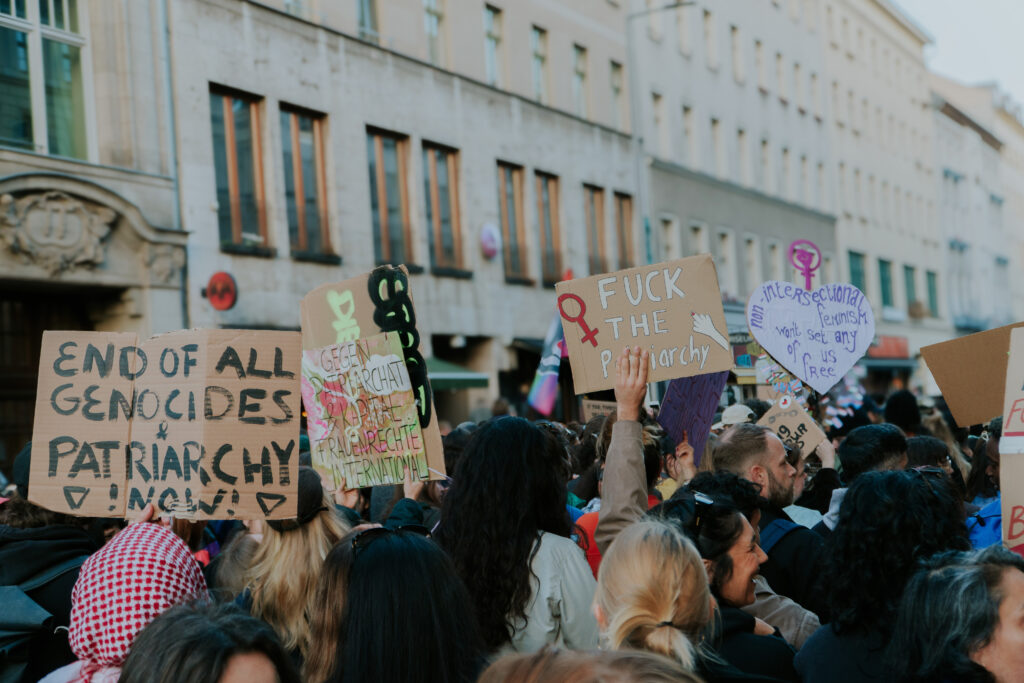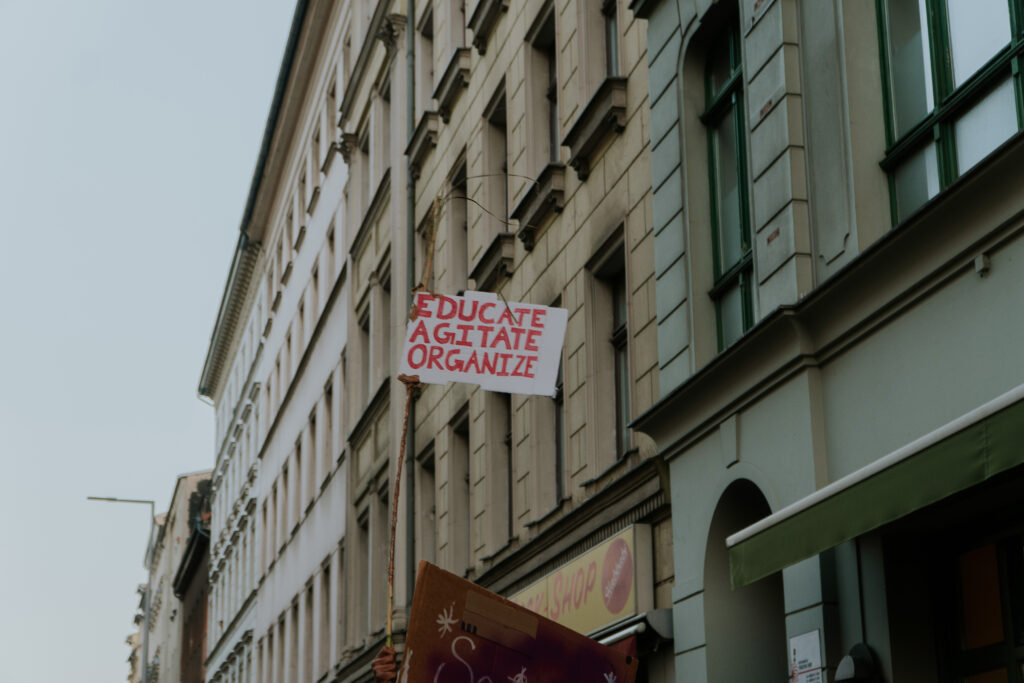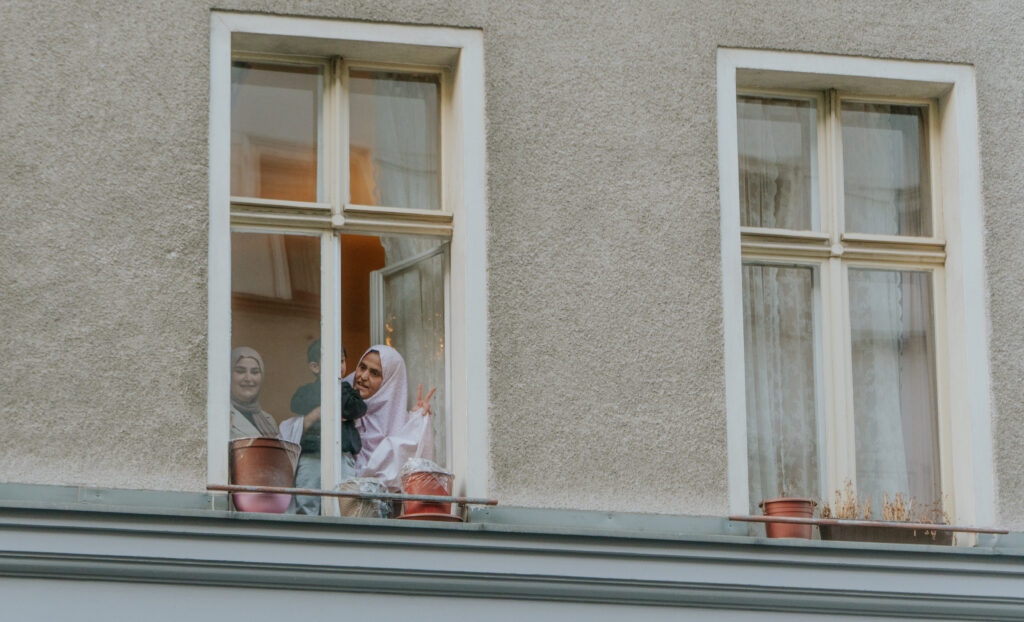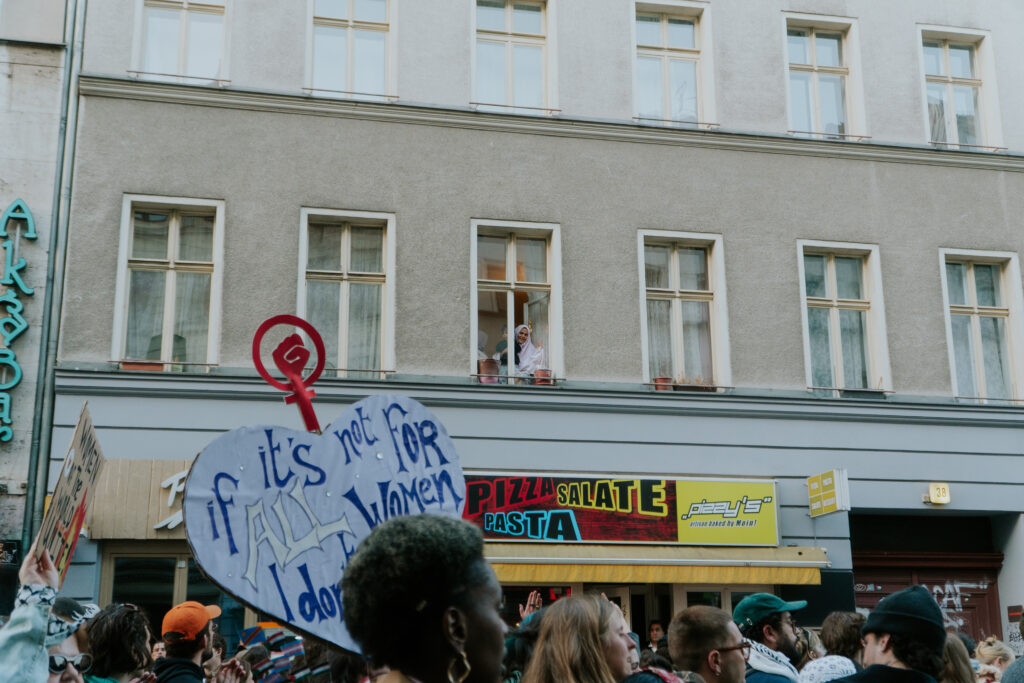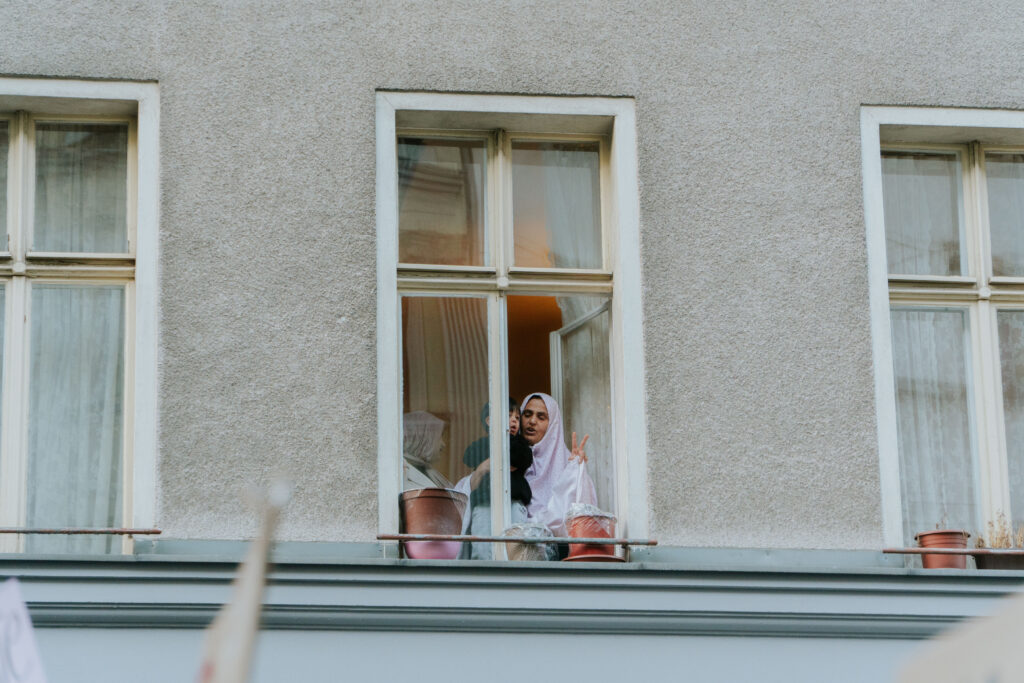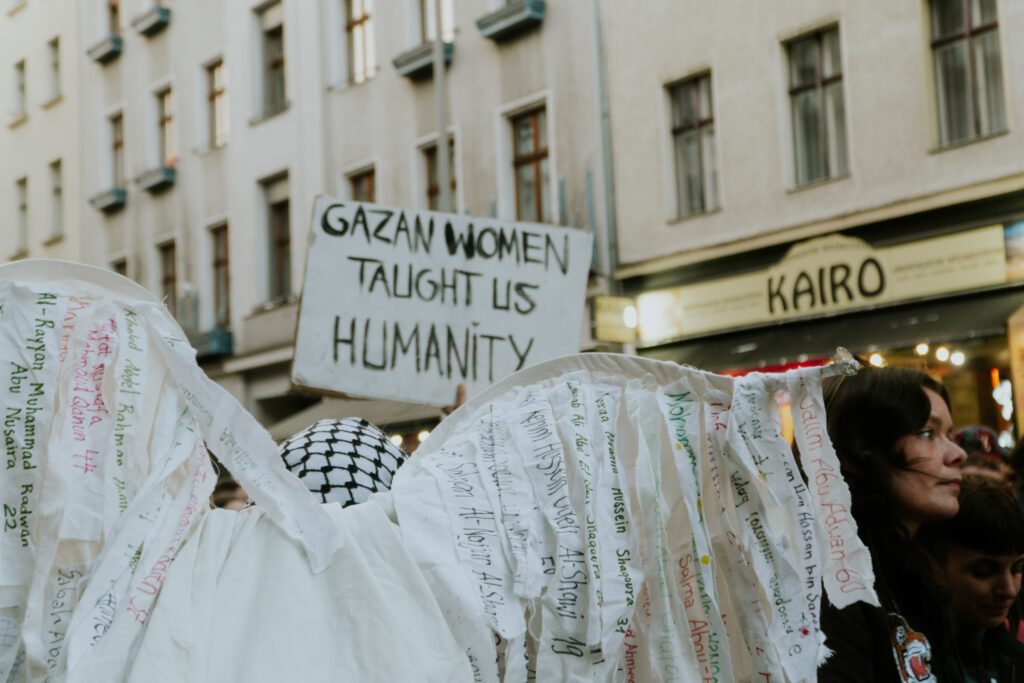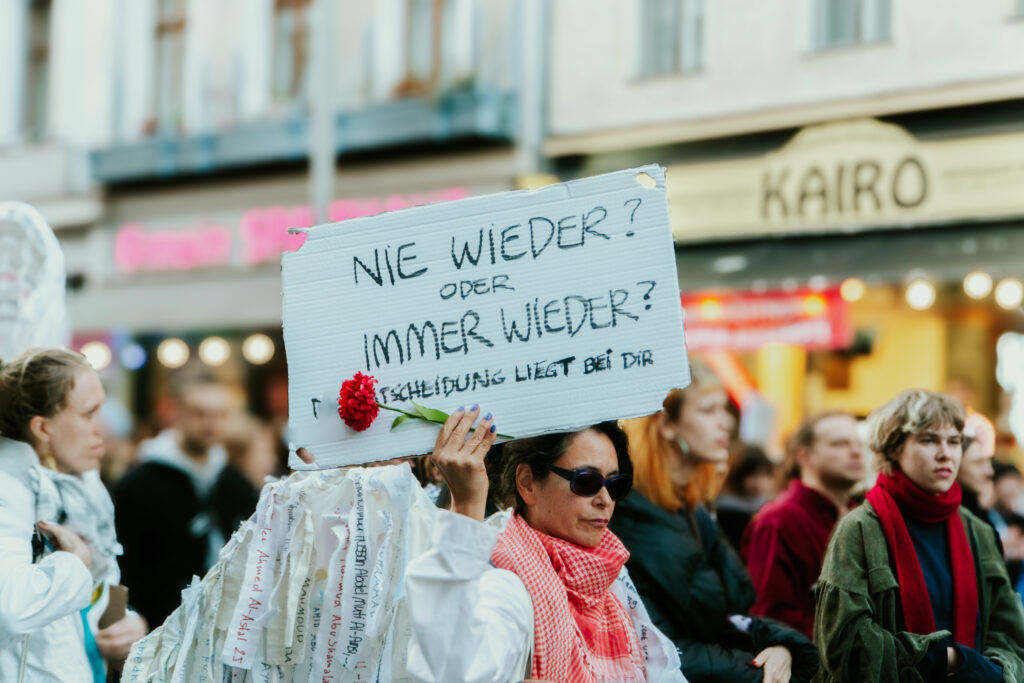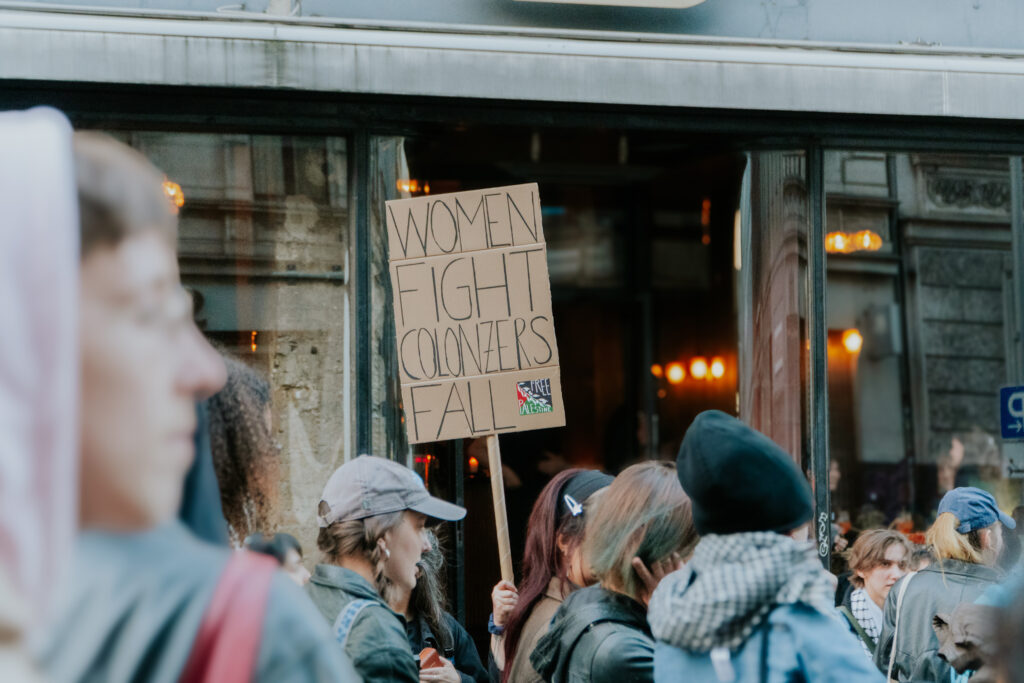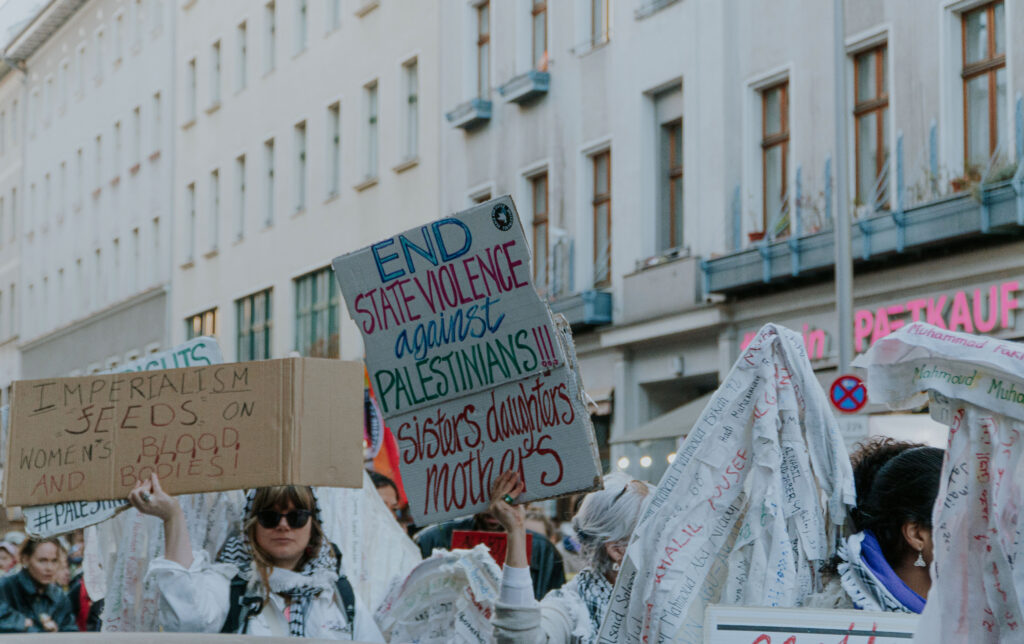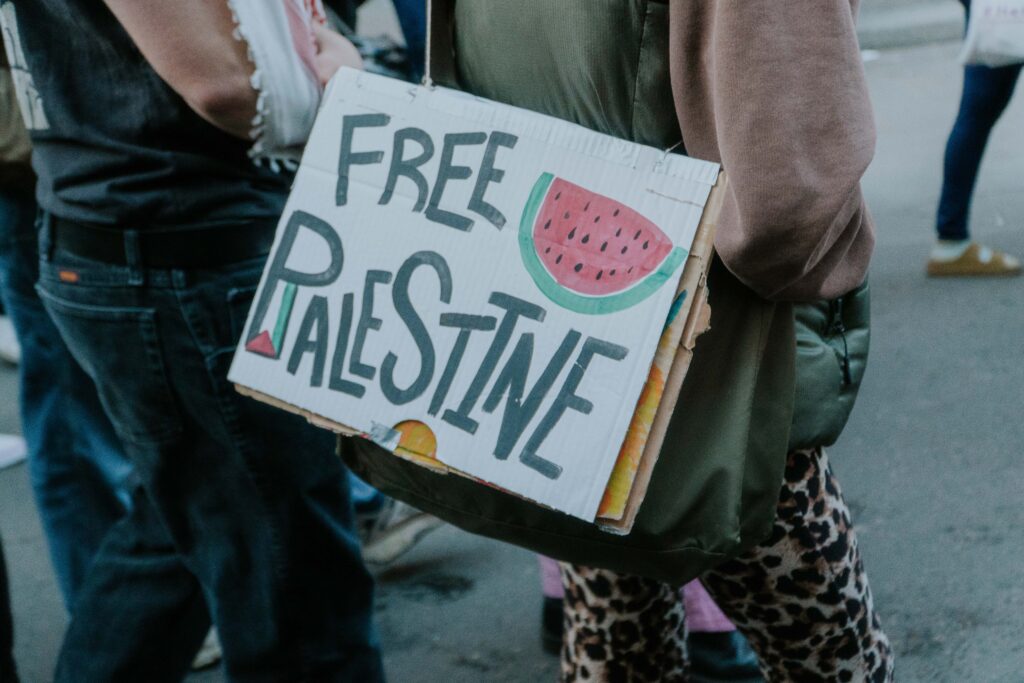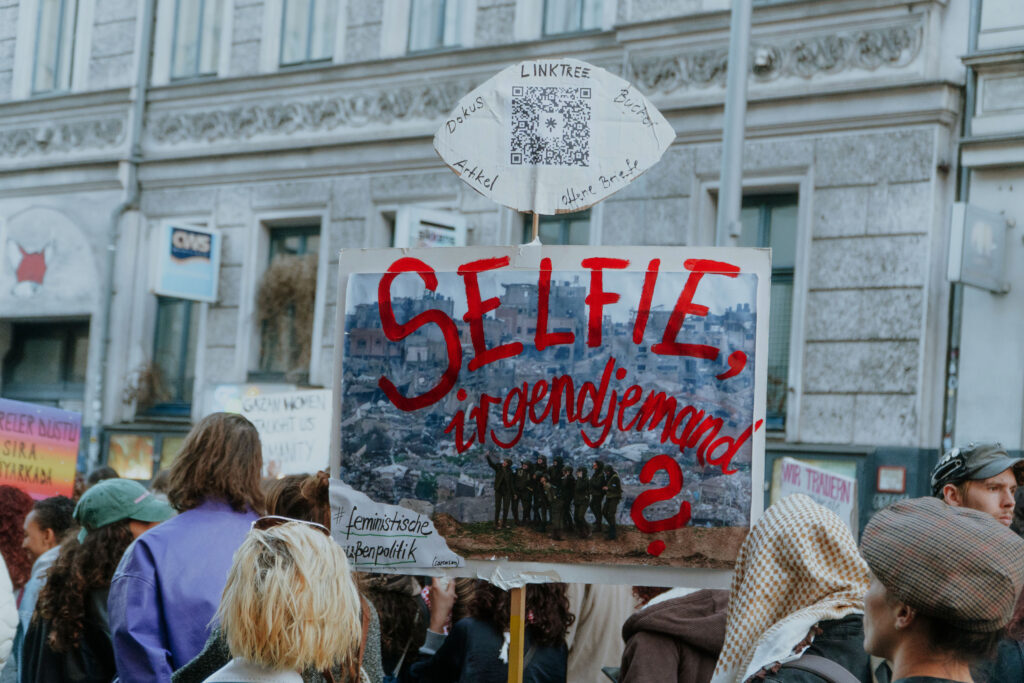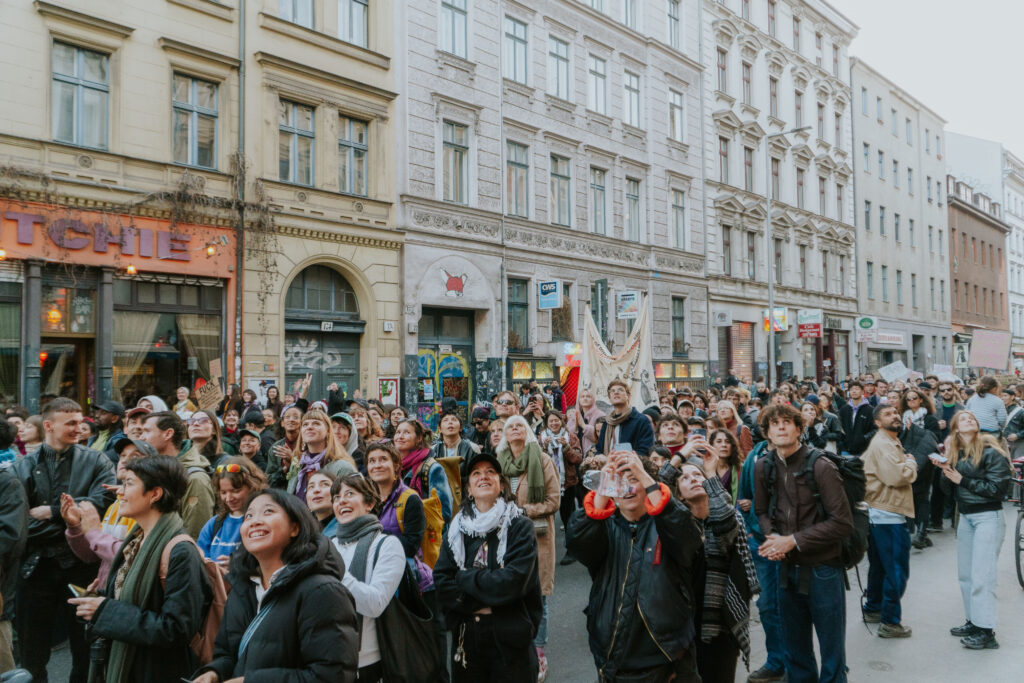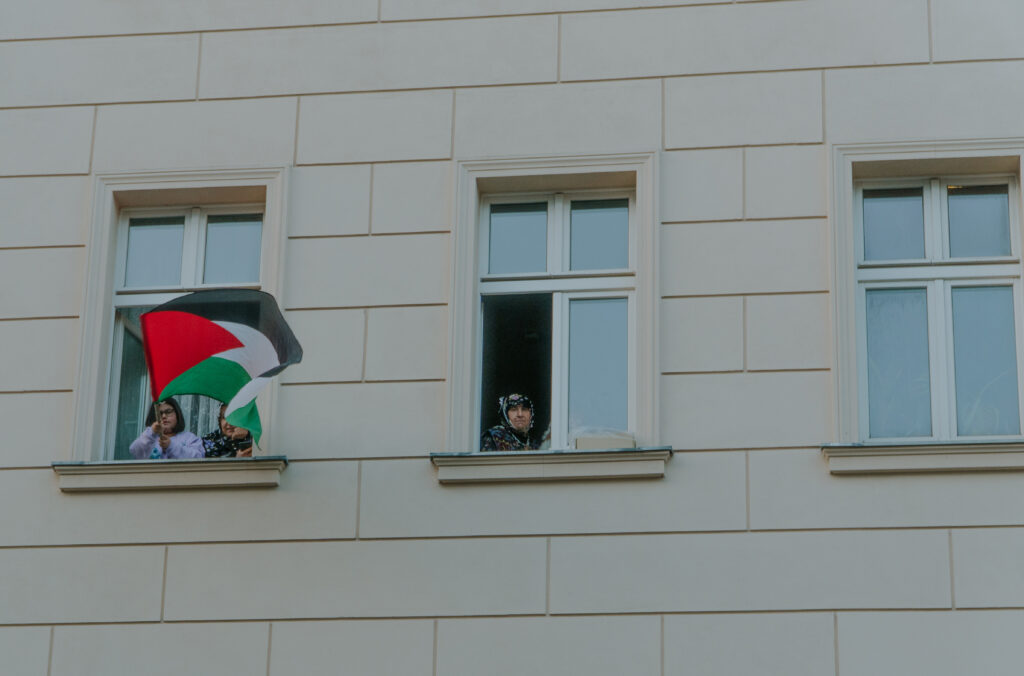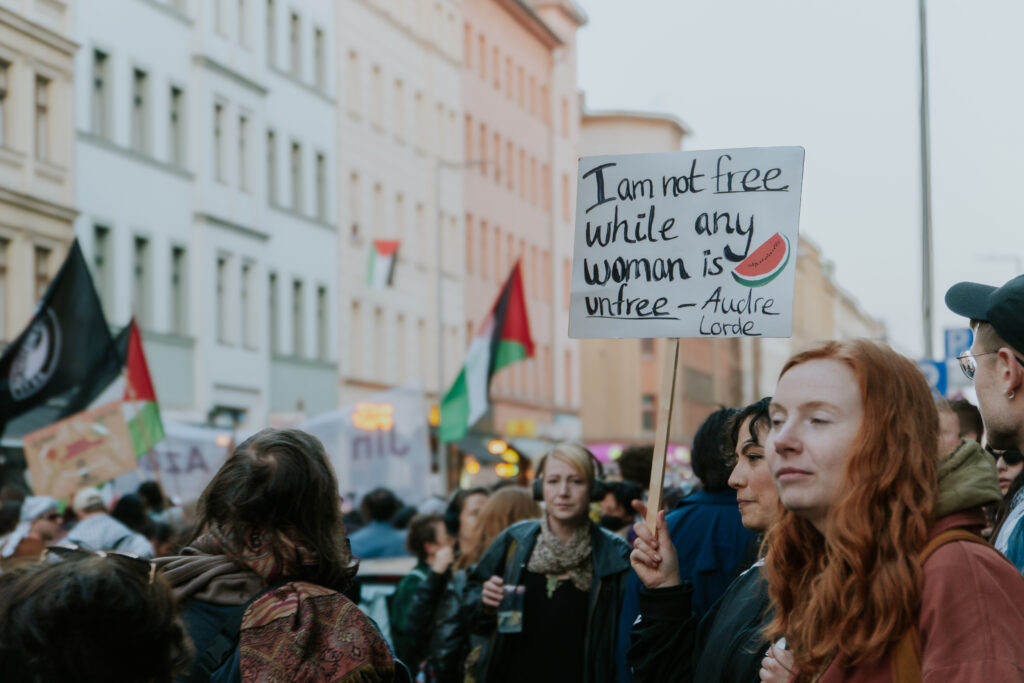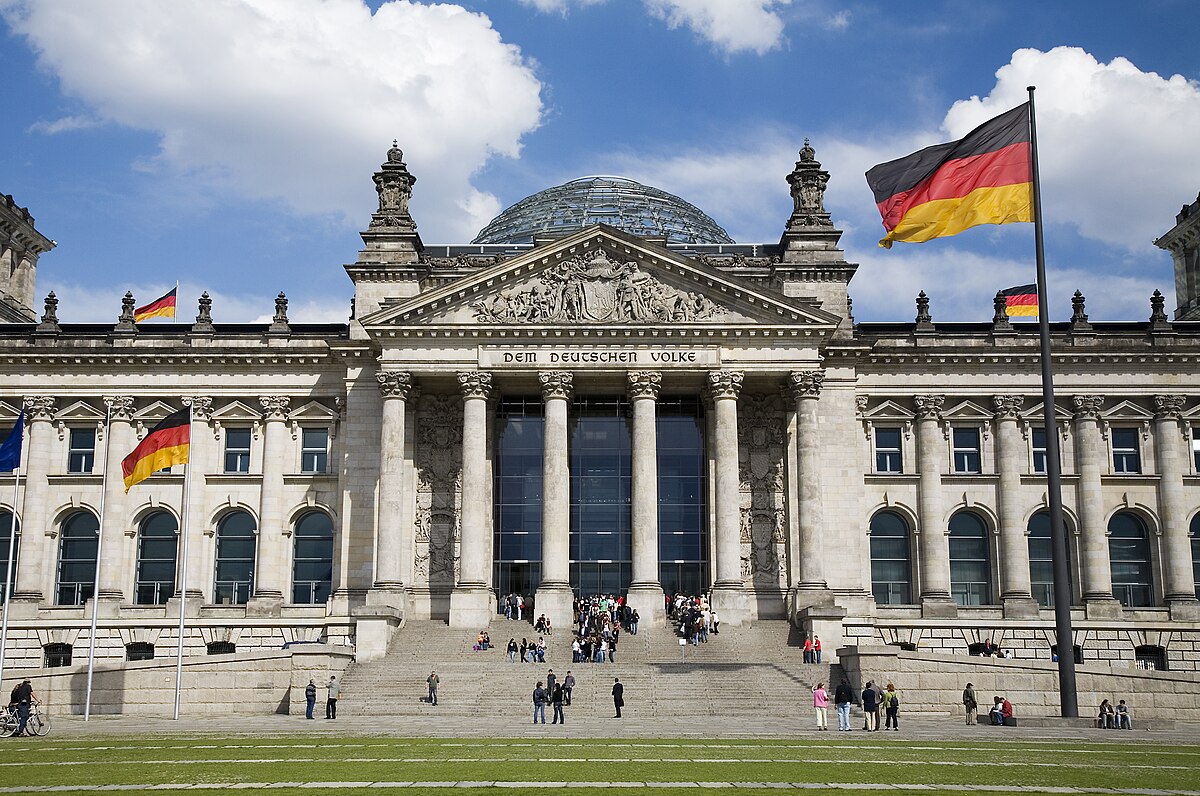How is it that Germany doesn’t have a Ministry of Gender Equality, and that the Schutzgesetz (Protection from Violence Law) has still not fully been implemented after three years?
It is indeed astonishing and regrettable that there is no Ministry of Gender Equality in a country like Germany, which has taken up the cause of promoting gender equality. The current organisations in which gender equality issues are often embedded — namely the ministries of Family, Senior Citizens, Women and Youth — reflect a traditionalist perspective. Women are often seen in the context of family and care work, rather than gender equality being treated on its own terms as a comprehensive social goal.
Of course, this contradicts the Constitution. Article 3 clearly stipulates the active promotion of gender equality between men and women, and the eradication of discrimination. The lack of focus on gender equality highlights how deeply embedded patriarchal structures and traditional gender roles are in society.
An independent Ministry of Gender Equality would be an important signal, showing how gender equality is no longer a fringe issue, but rather a central social goal. Gender equality does not only affect women but also men, children, LGBTQIA+ people, and of course marginalised groups as well. The creation of such a ministry would show that policymakers are ready to firmly tackle structural or institutional discrimination and inequality.
The hesitation in implementing the Gewalthilfegesetz — the law for providing help to domestic violence survivors — illustrates this issue clearly, namely how the lack of focus on gender equality has a direct effect on the security and rights of women. The Istanbul Convention, which Germany ratified in 2018, urges clear measures to be taken to protect people from gendered violence. That such a law has still not been passed, three years after it was announced, shows a level of political inertia that is unacceptable.
What do you think of the potential removal of Article 218 (abortion) from the German Penal Code? How do you see the implementation of the promised Gewaltschutzgesetz within the framework of the Istanbul Convention?
We welcome the initiative to remove abortion from the penal code as a necessary and long overdue step towards decriminalisation. The current law criminalises women and creates legal, social and psychological hurdles. The abolition of the law would set a clear example for recognising the bodily autonomy of women as a fundamental right.
However, we are sceptical if this proposal can still be implemented during the current legislative period. There have been multi-partisan initiatives from certain members of Parliament, but it’s too late, and the political will doesn’t seem to be sufficient. Unfortunately, it will likely take years until a similar momentum comes into being once again — one in which organisations and initiatives can work towards such a reform.
Yet what is often overlooked in this discussion is the access to safe, free and accessible abortions for all women. Decriminalisation by itself is not enough when structural barriers such as cost, insufficient care and treatment, or regional inequalities are not addressed. Access to abortion is difficult (or even impossible) for migrant or refugee women. Immigration laws, residence status or restricted access to the healthcare system create additional obstacles.
By all proposed legislations or reform initiatives, we must keep in mind that all women must be accounted for equally — irrespective of their background or status. Abortions cannot merely be legally decriminalised, but must also be made practically possible in order to ensure equality and justice.
The Federal Ministry of the Interior’s recently published report shows that “crimes against women are increasing in every sphere”
The increase in crimes against women, as they are pointed out in the federal report, are alarming for all of us. Not only does it point to the urgency of finally taking gendered violence seriously, but also to policymakers’ and institutions’ continued failure to protect women. Violence against women is not an individual but rather a structural problem, deeply rooted in the power structures of society.
The numbers are harrowing: 360 femicides in 2023, a woman murdered almost every day. Since we still don’t have a consistent definition of femicide in Germany, the police registered 938 female victims of homicide last year — but the estimated number of unrecorded cases is much higher.
That means almost three women per day! 360 women and girls murdered. A large portion of these murders (68.6%) were committed in the context of domestic violence.
Additionally, more than 140 women and girls are victims of sexual offences every day. It is especially concerning that politically motivated digital violence and misogynistic hate crimes are increasing massively. This development shows that violence against women is ever more present in every aspect of life — from physical assault to online attacks.
The situation is often worse for migrant and refugee women. Not only do they face violence from perpetrators, but also from a system which doesn’t protect them. Refugee accommodation centres are dangerous places; there is no personal privacy, and there is no public outrage about this. This shows that Germany is far away from a comprehensive and intersectional protection mechanism.
The consequence is clear: we urgently need political measures to implement the Istanbul Convention and write a law for protection from violence which protects all women — irrespective of their background, immigration status or station in life. The increase in violence is a wake up call to take action.
How long have you been active in women’s rights and how have you experienced the developments in the past few years?
I’ve been engaged in women’s rights and human rights for a very long time with a special focus on migrant rights, refugee women or other marginalised groups. My work allows me to observe developments and trends at first hand and the last few years have shown that the challenges are bigger than ever.
On the one hand, we see positive developments: there is a growing sensibility for topics such as gendered violence and femicides. Terms such as ‘femicide’ have now entered into public and political debate. Women’s rights organisations and migrant community organisations such as DaMigra contribute to helping ensure that the voices of those affected are no longer ignored.
On the other hand, the practical progress is worryingly slow. Despite the Istanbul Convention and increasing awareness around gendered violence, there is a lack of effective structures and measures that truly protect women. Migrant women and refugee women are consistently marginalised. There is often a lack of translation support, information and low-barrier access to protective systems. Additionally, we are experiencing how political conditions such as deportations and mandatory place-of-residence rules put these women in dangerous situations.
The increase in violence across the board illustrates how the measures that have been introduced up until now have not been sufficient. It is our responsibility to continue to apply pressure, to act on our political responsibility and to fight for a change in the way that we think, as a society. Because every woman’s life matters — and every form of violence against women is one too many.
How do conditions for migrant and refugee women differ from others, in this context?
The situation for migrant and refugee women is in many ways more precarious than for women who belong to the dominant group in society. Not only are they subject to violence by perpetrators, but also by structural and institutional conditions, which hinders their protection or makes it altogether impossible. Women who live in refugee accommodation — where there is a lack of personal privacy and the danger of assault is high — are especially affected by this. Often, they lack access to protective services for linguistic, cultural or legal reasons. The mandatory requirement to have a place of residence is often a barrier for refugee women trying to find protection and support.
A central problem is the implementation of the Istanbul Convention in Germany.
The provision of Article 59 has indeed expired, yet the law itself was nothing more than symbolic until now. The necessary reform of Article 31 of the Aufenthaltsgesetz (Residence Law) — which would grant migrant women a residence permit that is not tied to their marital status — has still not been undertaken. Article 59 of the Istanbul Convention urges clearly that women must receive independent residence permits irrespective of their marital status. However, German policymakers have wasted this opportunity.
What we see now is just a sham. The provision was simply not extended, and the government showcases this as progress. But there has actually been no change that protects migrant women better. This shows how far away Germany is from human-rights oriented policymaking that truly includes migrant and refugee women. Such reforms would mean that women would no longer be forced to stay in violent relationships just because they were afraid of losing their residence permits. But these reforms were considered to be politically risky.
The consequence of this for many women who come to Germany on a family reunification visa is that they still remain dependent on their partner and are thus especially vulnerable to violence.
Until the immigration law is reformed, the Istanbul Convention cannot be fully implemented in this regard. It is imperative that Germany assume responsibility here and show that legal protection cannot be dependent on personal background, or on immigration status.
How do you regard the portrayal of immigration and gendered violence in the media and by other public representatives?
The portrayal of migration and migrants in the media and by public representatives is often problematic and riddled with negative stereotypes. Topics which are reported in relation to migrants or non-Germans often revolve around crime, such as the so-called gang wars or knife fights. Even the language used around these topics — terms like “illegal” or “irregular” migration — is discriminatory and dehumanising.
How should people who are fleeing from war, violence or prosecution come to Germany or Europe “regularly”? There are no regular escape routes. It brings up that historical question: what regular ways did those who had to flee from the Nazi regime have? Did they just go to embassies totally regularly to get a visa before they could flee to a safe country? Of course not. These double standards and the lack of safe escape routes for people who seek refuge are unacceptable.
Another big problem is the instrumentalisation of gendered violence by far-right parties. Femicides or violence against women are often used to stigmatise migrants or refugees. These depictions obfuscate the fact that gendered violence is a structural problem which affects all parts of society, irrespective of personal or cultural background. This instrumentalisation prevents us from taking an expansive perspective regarding the causes of violence and the scale of gendered violence in Germany.
Gendered violence is, unfortunately, not taken seriously in Germany, and it is often instrumentalised with regards to migration instead of protecting the women that are affected.
A nuanced and humane media portrayal and political discussion — which strives for structural solutions instead of seeking to blame certain groups — is desperately needed. The media and society must acknowledge that all women, regardless of their background or immigration status, must be protected.
How can we combat these depictions and stereotypes?
Several steps are necessary to combat stereotypes and simplistic depictions.
First of all, we must change public debates by speaking about the causes of migration, why people seek refuge, and gendered violence, in a nuanced way. Of course, better educational programs, public campaigns and dialogue between a multitude of groups can also be helpful in breaking down prejudices and fostering empathy.
But media portrayals are of primary importance.
The media has an enormous responsibility. They are the ones who help create the images that come into being in our minds, and they are also the ones who can correct these images. They can publish nuanced stories which show the complexity of such topics and the viewpoints of those affected, instead of simplistic and sensationalist stories. Journalists should be encouraged to avoid discriminatory language and depictions. The media must reflect the diversity of society. This applies to both the media employees and broadcasting corporations themselves, as well as the choice of topics and type of reporting. Migrants and women should not only be depicted as criminals or victims, but also as active agents which contribute to, strengthen, and innovate society. Both economic and social progress would be impossible without immigration and the influence of these groups.
It is incredibly important to combat populist narratives — whether in political discussions, media or in society. Only through countering discriminatory narratives can we achieve a change in society.
Migration and female-focused organisations such as DaMigra play an important role here as well, because they shed light on the perspectives of those affected and provide substantiated information on these topics. As such, their financial security must be ensured, and they must be integrated more prominently into public debate and political processes.
We can only combat these stereotypical depictions if we change narratives, systemically shed light on issues, bolster migrant voices and display diversity. This is a task for the whole of society, which requires courage, engagement and lots of perseverance.
